 Sign in
Sign in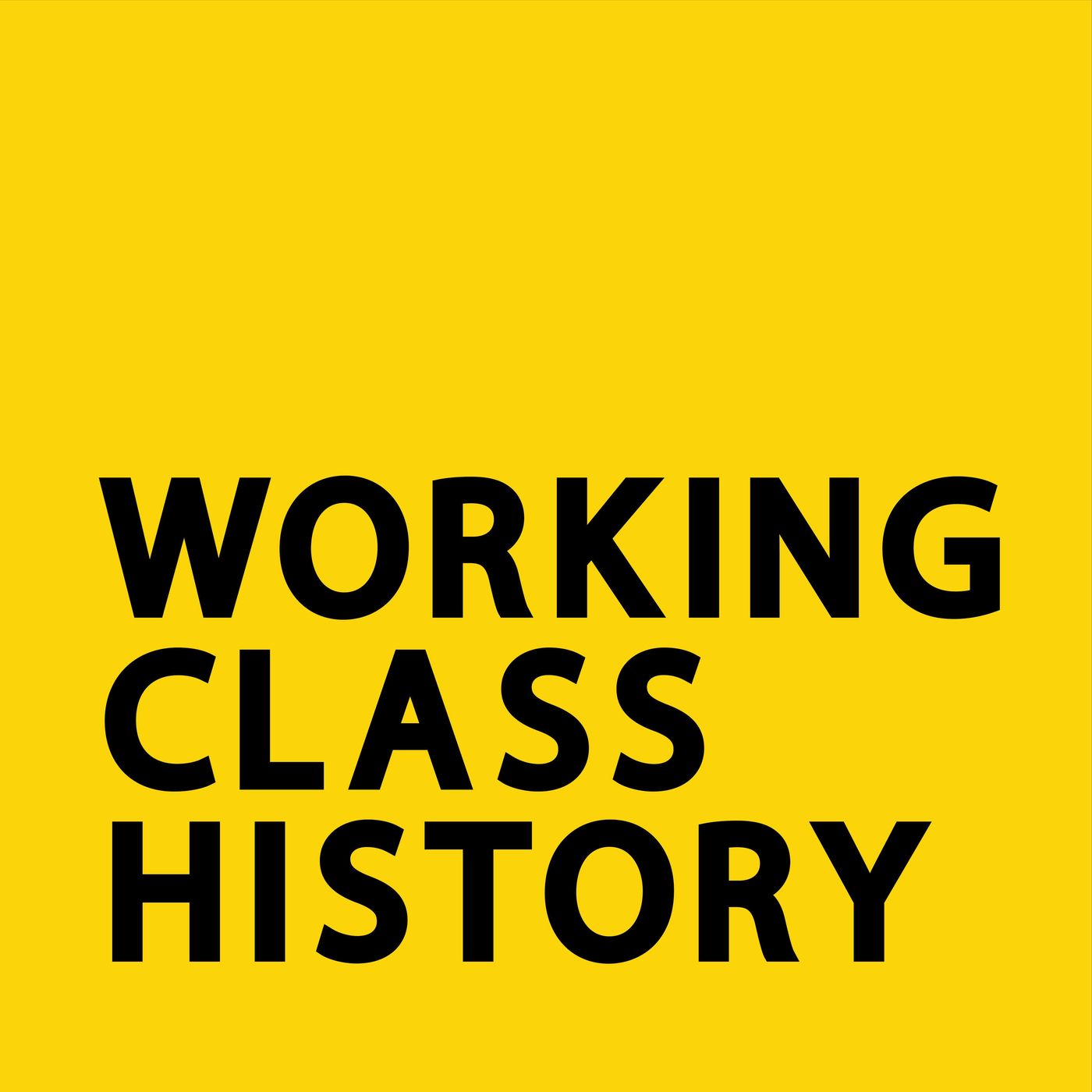
Education
History
Working Class History
History isn't made by kings and politicians, it's made by all of us. This podcast is about how we, together, have fought for a better world.Become a paid subscriber, support our work and listen ad-free with early access and exclusive bonus episodes at patreon.com/workingclasshistory.Become a supporter of this podcast: https://www.spreaker.com/podcast/working-class-history--5711490/support.
![E94: [TEASER] E94: Radical Reads w/ Jasper Bernes – ‘If We Burn’ E94: [TEASER] E94: Radical Reads w/ Jasper Bernes – ‘If We Burn’](https://d3wo5wojvuv7l.cloudfront.net/t_rss_itunes_square_1400/images.spreaker.com/original/fb620be55f2d348400f10b2e0b0397b8.jpg)
E94: [TEASER] E94: Radical Reads w/ Jasper Bernes – ‘If We Burn’
This is a teaser preview of our first Radical Read, made exclusively for our supporters on patreon. You can listen to the full 68-minute episode without ads and support our work at https://www.patreon.com/posts/e94-radical-w-if-113750155First of our new series, Radical Reads, in which we team up with Jasper Bernes to discuss Vincent Bevins’ 2023 book, If We Burn: The Mass Protest Decade and the Missing Revolution.Welcome to ‘Radical Reads’, the second of our two new series of Patreon-only content.In Radical Reads, we hope to discuss political texts – both old and new – that have either influenced us here at WCH, or texts that we generally think that people involved in radical and working-class movements should be engaging with, discussing, and using to inform their activism.Our Radical Read for this episode is Vincent Bevins’ If We Burn: The Mass Protest Decade and the Missing Revolution, which we discuss with Jasper Bernes, author of an excellent article in the Brooklyn Rail, ‘What Was To Be Done? Protest and Revolution in the 2010s’. It’s a review and critique book and when we read Jasper’s article we felt that it really put into words some of the thoughts we had about Bevins’ work.In our conversation with Jasper, we covered not only what we see as some of the main issues with Bevins’ book, but also broader questions around social movements, revolution, the threat of cooptation, and what it means to win. And as Jasper says, understanding what we can learn from the movements of the 2010s is one of the most important questions we can be thinking about right now. In that sense, then, If We Burn is a valuable contribution in starting that conversation, even if we have some disagreements with its conclusions.Listen to the full episode here:E94: Radical Reads w/ Jasper Bernes – ‘If We Burn’ – Available exclusively for our Patreon supportersMore informationRead Jasper’s article: ‘What Was To Be Done? Protest and Revolution in the 2010s’Buy Vincent Bevins’ book: If We Burn: The Mass Protest Decade and the Missing RevolutionAcknowledgementsThanks to our patreon supporters for making this podcast possible. Special thanks to Jazz Hands, Jamison D. Saltsman, Fernando López Ojeda and Jeremy Cusimano.Edited by Tyler HillOur theme tune is Montaigne’s version of the classic labour movement anthem, ‘Bread and Roses’, performed by Montaigne and Nick Harriott, and mixed by Wave Racer. Download the song here, with all proceeds going to Medical Aid for Palestinians. More from Montaigne: website, Instagram, YouTube.Full information and show notes at https://www.patreon.com/posts/e94-radical-w-if-113750155Become a supporter of this podcast: https://www.spreaker.com/podcast/working-class-history--5711490/support.
16:3713/11/2024
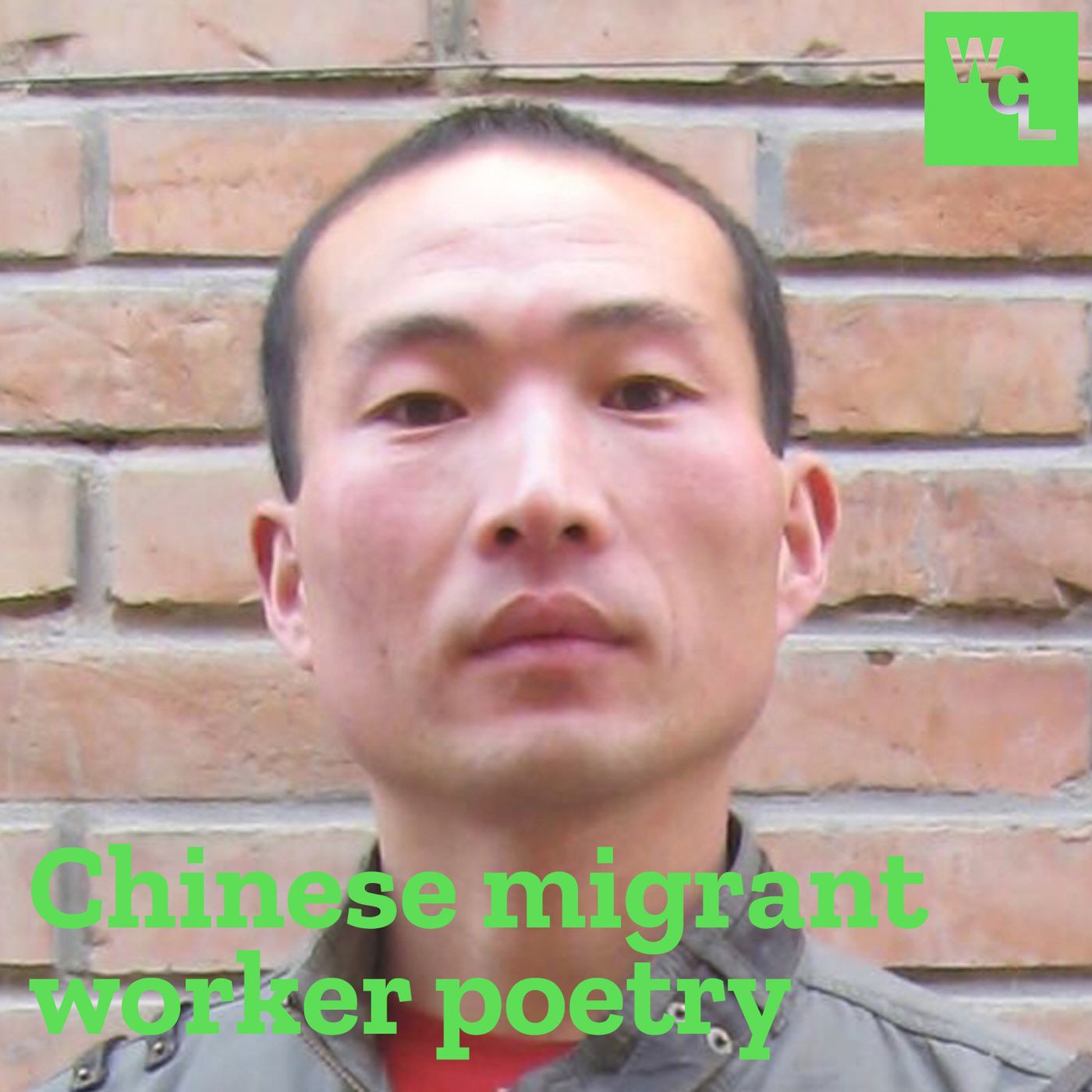
WCL9: Chinese migrant worker poetry, part 3
The final episode of our three-part series about migrant worker poetry in China. We speak to Maghiel van Crevel, Professor of Chinese Language and Literature at Leiden University. Maghiel has travelled extensively in China, meeting with and writing about the work of Chinese migrant worker poets.In this episode, we look at questions of censorship in China and the importance of unofficial publications for the spread of migrant worker poetry (not to mention the wider Chinese poetry scene as well). We also discuss how some working-class writers come to be left out of what is considered 'working-class writing' with a specific look at the work of gay migrant worker poet, Mu Cao.Full show notes including sources, further reading, photos, films and eventually a transcript are here on our website: https://workingclasshistory.com/podcast/wcl-7-9-chinese-migrant-worker-poetry/AcknowledgementsAs always, huge thanks to our patreon supporters who make this podcast possible. A special thanks to Jamison D. Saltsman, Jazz Hands, Fernando Lopez Ojeda and Jeremy Cusimano.Our theme tune for these episodes is ‘A Young Man from the Village’ by the New Labour Art Troupe, from the Migrant Worker Home. Stream it here.This episode was produced by Jack Franco and edited by Jesse French.Become a supporter of this podcast: https://www.spreaker.com/podcast/working-class-history--5711490/support.
36:0024/10/2024
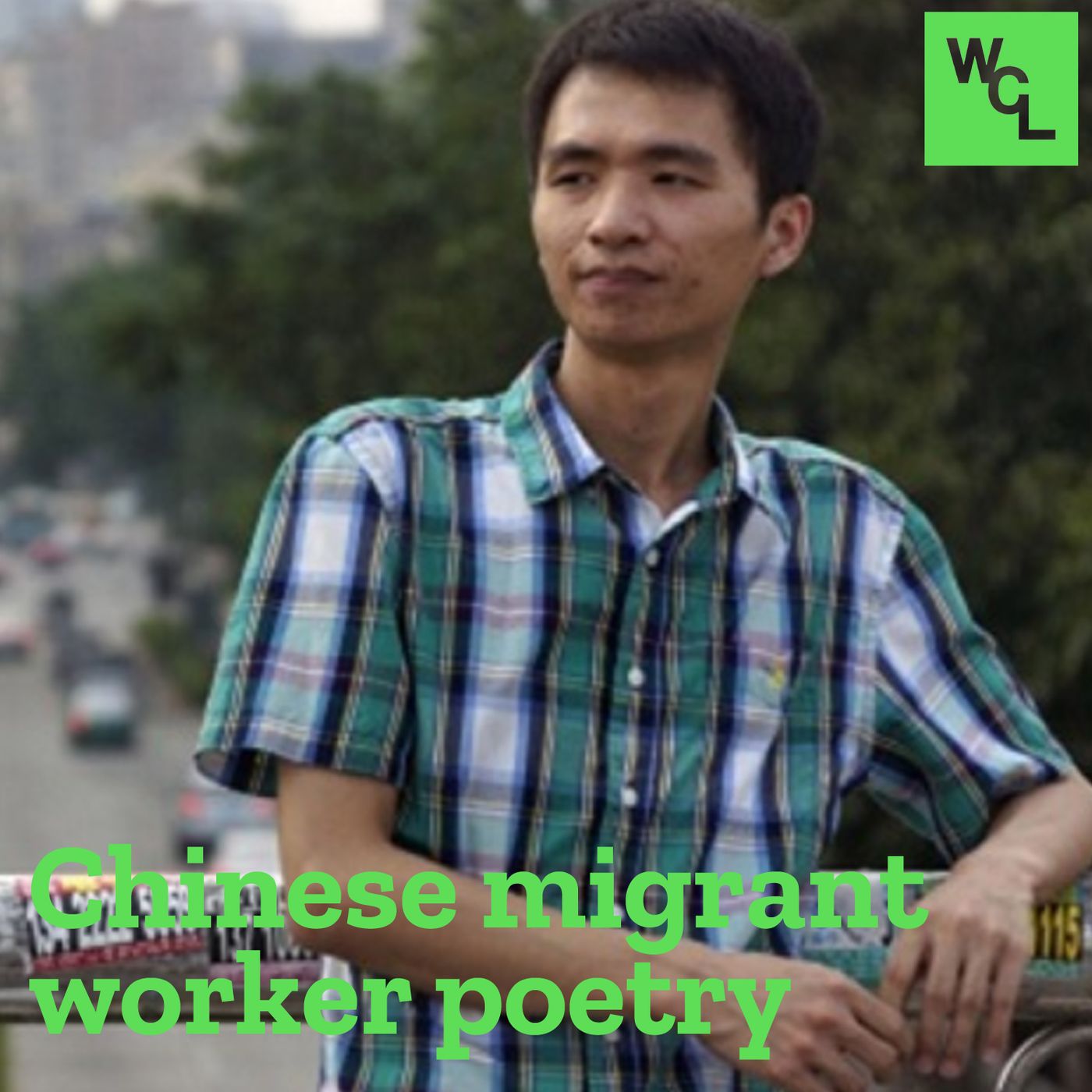
WCL8: Chinese migrant worker poetry, part 2
Part 2 of our three-part series about migrant worker poetry in China. We speak to Maghiel van Crevel, Professor of Chinese Language and Literature at Leiden University. Maghiel has travelled extensively in China, meeting with and writing about the work of Chinese migrant worker poets.In this episode, we look at the work of the Migrant Worker Home, a self-organised space run by and for migrant workers on the outskirts of Beijing, which taught migrant workers about their rights, hosted a museum, and ran literary and cultural groups, until they were evicted last year. We also look at two more migrant worker poets, including Xu Lizhi, whose suicide in 2014 propelled him to global fame.Full show notes including sources, further reading, photos, films and eventually a transcript are here on our website: https://workingclasshistory.com/podcast/wcl-7-9-chinese-migrant-worker-poetry/AcknowledgementsAs always, huge thanks to our patreon supporters who make this podcast possible. A special thanks to Jamison D. Saltsman, Jazz Hands, Fernando Lopez Ojeda and Jeremy Cusimano.Our theme tune for these episodes is ‘A Young Man from the Village’ by the New Labour Art Troupe, from the Migrant Worker Home. Stream it here.This episode was produced by Jack Franco and edited by Jesse French.Become a supporter of this podcast: https://www.spreaker.com/podcast/working-class-history--5711490/support.
35:0817/10/2024
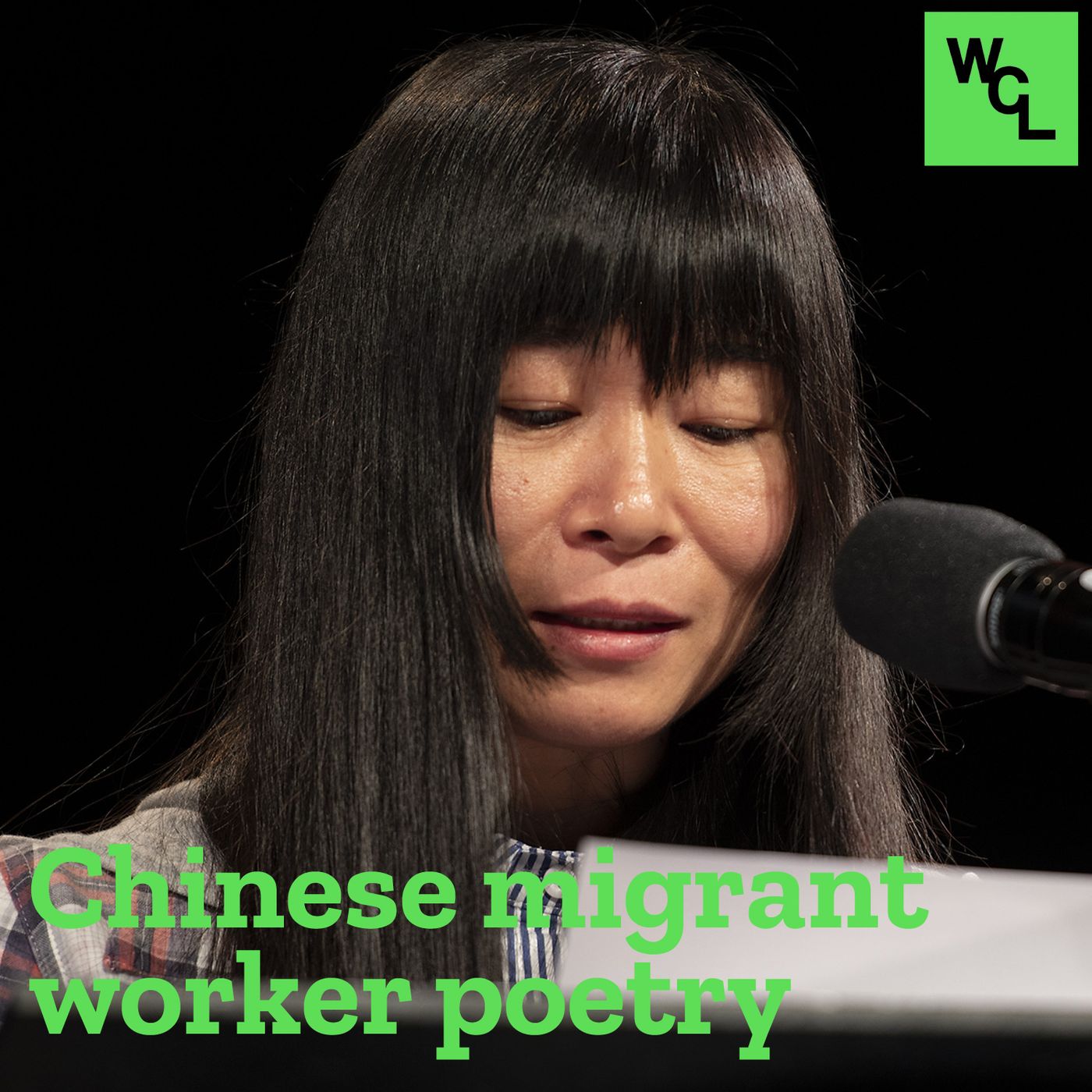
WCL7: Chinese migrant worker poetry, part 1
First of the three-part series on migrant worker poetry in China. In these episodes, we speak to Maghiel van Crevel, Professor of Chinese Language and Literature at Leiden University. Maghiel has travelled extensively in China meeting with and writing about the work of Chinese migrant worker poets.In this episode, we discuss the concept of the 'migrant worker' in China, and how it relates to the internal hukou system and China's relationship to global capitalism. We also discuss what we mean by 'migrant worker/migrant worker poetry' in relation to the Chinese words dagong and dagong shige. We also look at two migrant worker poets, Wu Xia and Zheng Xiaoqiong.Full show notes including sources, further reading, photos, films and eventually a transcript are here on our website: https://workingclasshistory.com/podcast/wcl-7-9-chinese-migrant-worker-poetry/AcknowledgementsAs always, huge thanks to our patreon supporters who make this podcast possible. A special thanks to Jamison D. Saltsman, Jazz Hands, Fernando Lopez Ojeda and Jeremy Cusimano.Our theme tune for these episodes is ‘A Young Man from the Village’ by the New Labour Art Troupe, from the Migrant Worker Home. Stream it here.This episode was produced by Jack Franco and edited by Jesse French.Become a supporter of this podcast: https://www.spreaker.com/podcast/working-class-history--5711490/support.
45:3310/10/2024
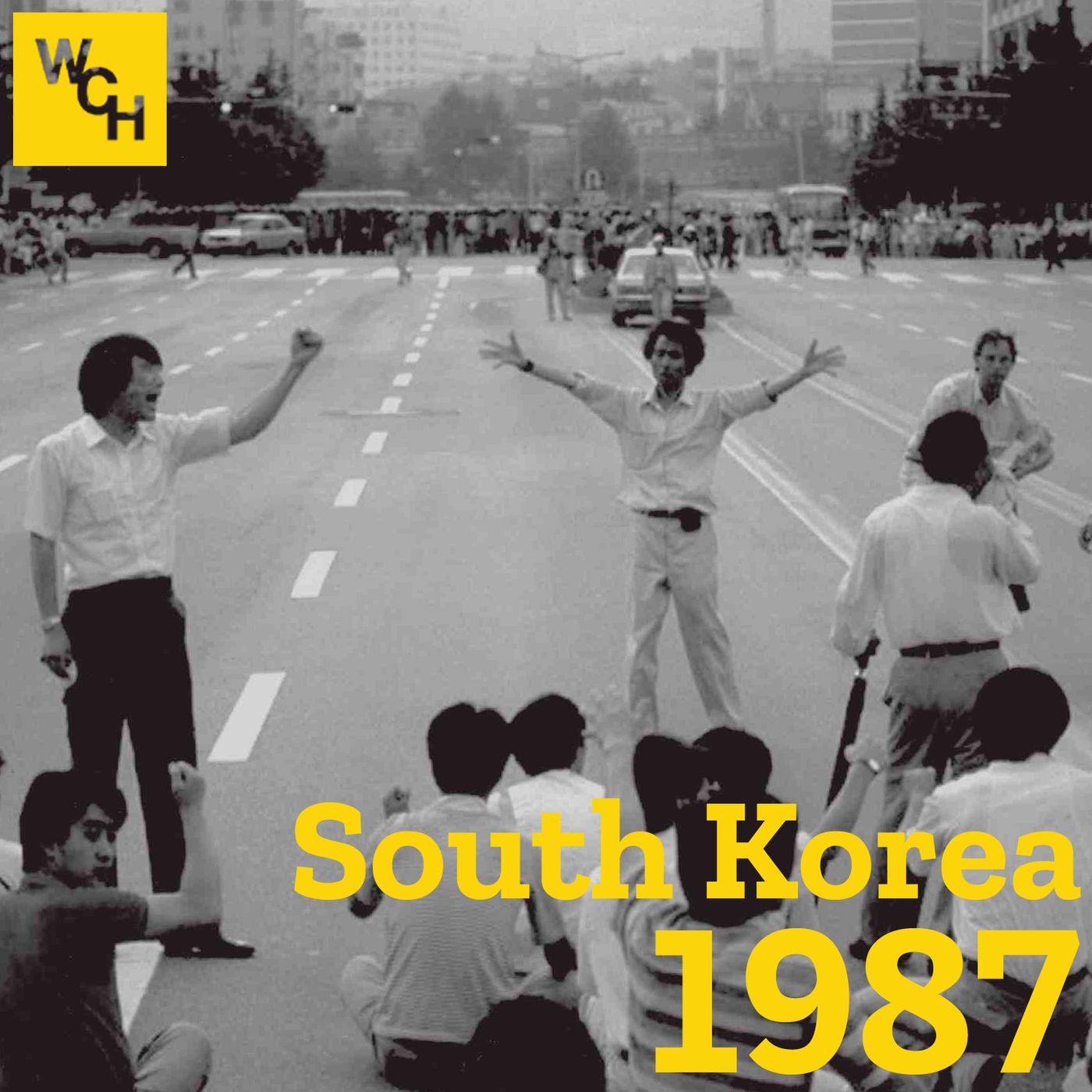
E92: South Korea 1987, part 2
Second of a double podcast episode about the South Korean movements of 1987 which overthrew the US-backed military dictatorship and won big improvements for workers. In these episodes we speak with Kim Jin-sook and Hong Seung Ha about their experiences of the June Democratic Struggle, and the Great Workers’ Struggle which immediately followed it.Our podcast is brought to you by our patreon supporters. Our supporters fund our work, and in return get exclusive early access to podcast episodes, ad-free episodes, bonus episodes, free and discounted merchandise and other content. Join us or find out more at patreon.com/workingclasshistoryPart 2 covers the Great Workers’ Struggle, the massive strike wave, the first elections after the fall of the dictatorship, and its legacy today.More informationE53-56: The Gwangju uprising – WCH podcast about the 1980 uprising in Gwangju which preceded these movements.E51: Jeon Tae-il and Lee So-sun – WCH podcast about the organising of textile workers and the general historical background to South Korean history in the 20th-century.Timeline of South Korean history.Webpage for this episode with sources, full show notes, and transcripts.AcknowledgementsThanks to our patreon supporters for making this podcast possible. Special thanks to Jazz Hands, Jamison D. Saltsman, Fernando López Ojeda and Jeremy Cusimano.Thanks also to the following people and groups for additional assistance with these episodes: Hwang Jeongeun and Steven, of the International Strategy Centre, Kwon Beomchul, Angela Lee, Kap Su Seol, Hwang Yi-ra, and Loren Goldner.Learn more about the International Strategy Centre at https://www.goisc.org/homePhotograph used in episode graphic courtesy 『세계는 서울로, 서울은 세계로: 1984-1988』(2019) (The World to Seoul, Seoul to the World: 1984-1988) by 서울역사아카이브 (Seoul History Archive)/Wikimedia CommonsMusic used in this episode under fair use was “Marching For the Beloved” by Baek Ki-wan, Hwang Seok-young and Kim Jong-ryul.This episode was edited by Jesse French.Become a supporter of this podcast: https://www.spreaker.com/podcast/working-class-history--5711490/support.
44:2024/09/2024
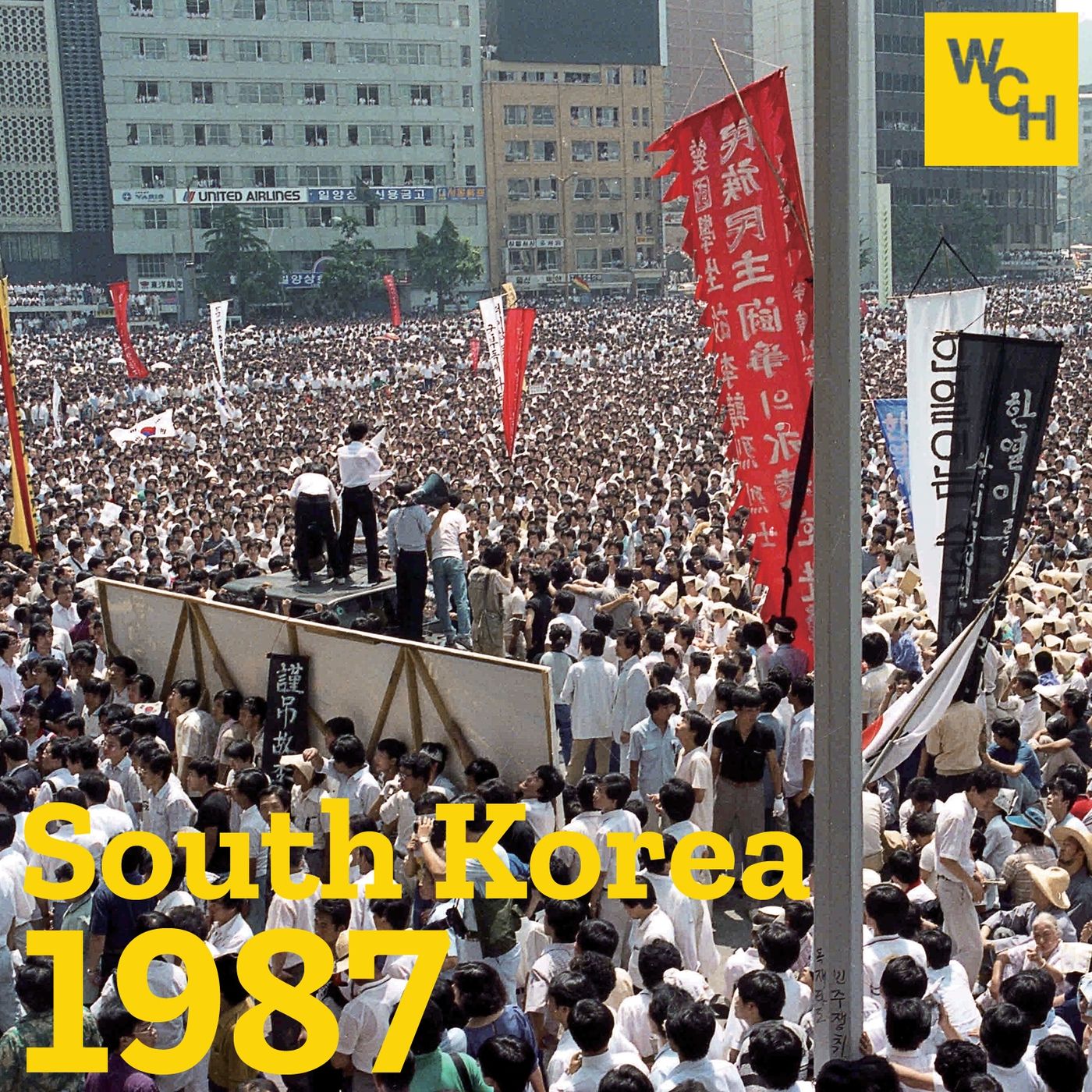
E91: South Korea 1987, part 1
First of a double podcast episode about the South Korean movements of 1987 which overthrew the US-backed military dictatorship and won big improvements for workers. In these episodes we speak with Kim Jin-sook and Hong Seung Ha about their experiences of the June Democratic Struggle, and the Great Workers’ Struggle which immediately followed it.Our podcast is brought to you by our patreon supporters. Our supporters fund our work, and in return get exclusive early access to podcast episodes, ad-free episodes, bonus episodes, free and discounted merchandise and other content. Join us or find out more at patreon.com/workingclasshistoryPart 1 covers the June Democratic Struggle, the historical background, and how the movement began. Listen to part 2 now by joining us on patreon: https://www.patreon.com/posts/e92-south-korea-110947071More informationE53-56: The Gwangju uprising – WCH podcast about the 1980 uprising in Gwangju which preceded these movements.E51: Jeon Tae-il and Lee So-sun – WCH podcast about the organising of textile workers and the general historical background to South Korean history in the 20th-century.Timeline of South Korean history.Webpage for this episode with sources, full show notes, and transcripts.AcknowledgementsThanks to our patreon supporters for making this podcast possible. Special thanks to Jazz Hands, Jamison D. Saltsman, Fernando López Ojeda and Jeremy Cusimano.Thanks also to the following people and groups for additional assistance with these episodes: Hwang Jeongeun and Steven, of the International Strategy Centre, Kwon Beomchul, Angela Lee, Kap Su Seol, Hwang Yi-ra, and Loren Goldner.Learn more about the International Strategy Centre at https://www.goisc.org/homePhotograph used in episode graphic courtesy 『세계는 서울로, 서울은 세계로: 1984-1988』(2019) (The World to Seoul, Seoul to the World: 1984-1988) by 서울역사아카이브 (Seoul History Archive)/Wikimedia CommonsMusic used in this episode under fair use was “Marching For the Beloved” by Baek Ki-wan, Hwang Seok-young and Kim Jong-ryul.This episode was edited by Jesse French.Become a supporter of this podcast: https://www.spreaker.com/podcast/working-class-history--5711490/support.
38:5513/09/2024
![E90: [TEASER] Fireside Chat - Q&A E90: [TEASER] Fireside Chat - Q&A](https://d3wo5wojvuv7l.cloudfront.net/t_rss_itunes_square_1400/images.spreaker.com/original/184dce7469ca882e1a0dea9f5a75db72.jpg)
E90: [TEASER] Fireside Chat - Q&A
Preview of our first Fireside chat. To celebrate our 10th birthday on 30 July 2024, we launched a new series of discussion podcast episodes exclusively for our supporters on patreon. For the time being, as a trial, we are going to be releasing at least one bonus episode for patreon supporters every month.By doing this, we hope to be able to grow our base of supporters on patreon. If we manage to grow our base of supporters, and increase the amount of support we get each month, then we will be able to devote more resources into producing and releasing more regular free podcast episodes.To start off with, we will have a series of discussion episodes called Fireside chats. Our first Fireside chat is one where two of our hosts, John and Matt, answer questions from patreon supporters, listeners and readers, about the WCH project, and us.To listen to the full episode, and help us make more regular podcast episodes freely available for everyone, join us on patreon at https://patreon.com/workingclasshistoryThis episode is at https://www.patreon.com/posts/e90-fireside-q-109107564AcknowledgementsThanks to our patreon supporters for making this podcast possible. Special thanks to Jazz Hands, Jamison D. Saltsman, Fernando López Ojeda and Jeremy Cusimano.Edited by Tyler HillEpisode graphic: General strike street scene, Madrid, 2012, courtesy Montecruz/Wikimedia Commons CC SA 2.0. Flame graphic from Vecteezy.Our theme tune is Montaigne’s version of the classic labour movement anthem, ‘Bread and Roses’, performed by Montaigne and Nick Harriott, and mixed by Wave Racer. More from Montaigne: website, Instagram, YouTubeBecome a supporter of this podcast: https://www.spreaker.com/podcast/working-class-history--5711490/support.
13:2630/08/2024

E89: Indigenous resistance since 1992, part 2
Following on from his excellent book, 500 Years of Indigenous Resistance, Gord Hill of the Kwakwaka’wakw nation gives us an overview of over three decades of Indigenous resistance in the Americas since 1992. A podcast in two parts.Our podcast is brought to you by our patreon supporters. Our supporters fund our work, and in return get exclusive early access to podcast episodes, ad-free episodes, bonus episodes, free and discounted merchandise and other content. Join us or find out more at patreon.com/workingclasshistoryThis part covers Indigenous land defenders in Ecuador, Venezuela and elsewhere in Latin America, Mi’kmaq fishing rights, fossil fuel resistance, cultural resistance including language revitalisation, land acknowledgements and more. More informationGord Hill, 500 Years Of Indigenous Resistance – get hold of Gord’s book here in our online store.WCH timeline of people’s history stories about Indigenous resistanceE88-89: Indigenous resistance episode webpage with full show notesAcknowledgementsThanks to our patreon supporters for making this podcast possible. Special thanks to Jazz Hands, Jamison D. Saltsman, Fernando López Ojeda and Jeremy Cusimano.Produced and edited by Tyler Hill. Tyler also hosts Congratulations FM.Episode graphic courtesy Wikimedia Commons CC SA 4.0Our theme tune is Bella Ciao, thanks for permission to use it from Dischi del Sole. You can purchase it here or stream it here.Become a supporter of this podcast: https://www.spreaker.com/podcast/working-class-history--5711490/support.
45:5721/08/2024

E88: Indigenous resistance since 1992, part 1
Following on from his excellent book, 500 Years of Indigenous Resistance, Gord Hill of the Kwakwaka’wakw nation gives us an overview of over three decades of Indigenous resistance in the Americas since 1992. A podcast in two parts.Our podcast is brought to you by our patreon supporters. Our supporters fund our work, and in return get exclusive early access to podcast episodes, ad-free episodes, bonus episodes, free and discounted merchandise and other content. Join us or find out more at patreon.com/workingclasshistoryThis part covers protests against the 500th anniversary of the European invasion of the Americas by Christopher Columbus, the Zapatista uprising, the Gustafsen Lake stand-off, the Ipperwash Park occupation, Enbridge and Keystone XL pipeline resistance, Missing and Murdered Indigenous Women and more. More informationGord Hill, 500 Years Of Indigenous Resistance – get hold of Gord’s book here in our online store.WCH timeline of people’s history stories about Indigenous resistanceE88-89: Indigenous resistance episode webpage with full show notesAcknowledgementsThanks to our patreon supporters for making this podcast possible. Special thanks to Jazz Hands, Jamison D. Saltsman, Fernando López Ojeda and Jeremy Cusimano.Produced and edited by Tyler Hill. Tyler also hosts Congratulations FM.Episode graphic: Dakota access protest 2016. Courtesy Rob87438/Wikimedia Commons CC SA 4.0Our theme tune is Bella Ciao, thanks for permission to use it from Dischi del Sole. You can purchase it here or stream it here.Become a supporter of this podcast: https://www.spreaker.com/podcast/working-class-history--5711490/support.
53:2807/08/2024
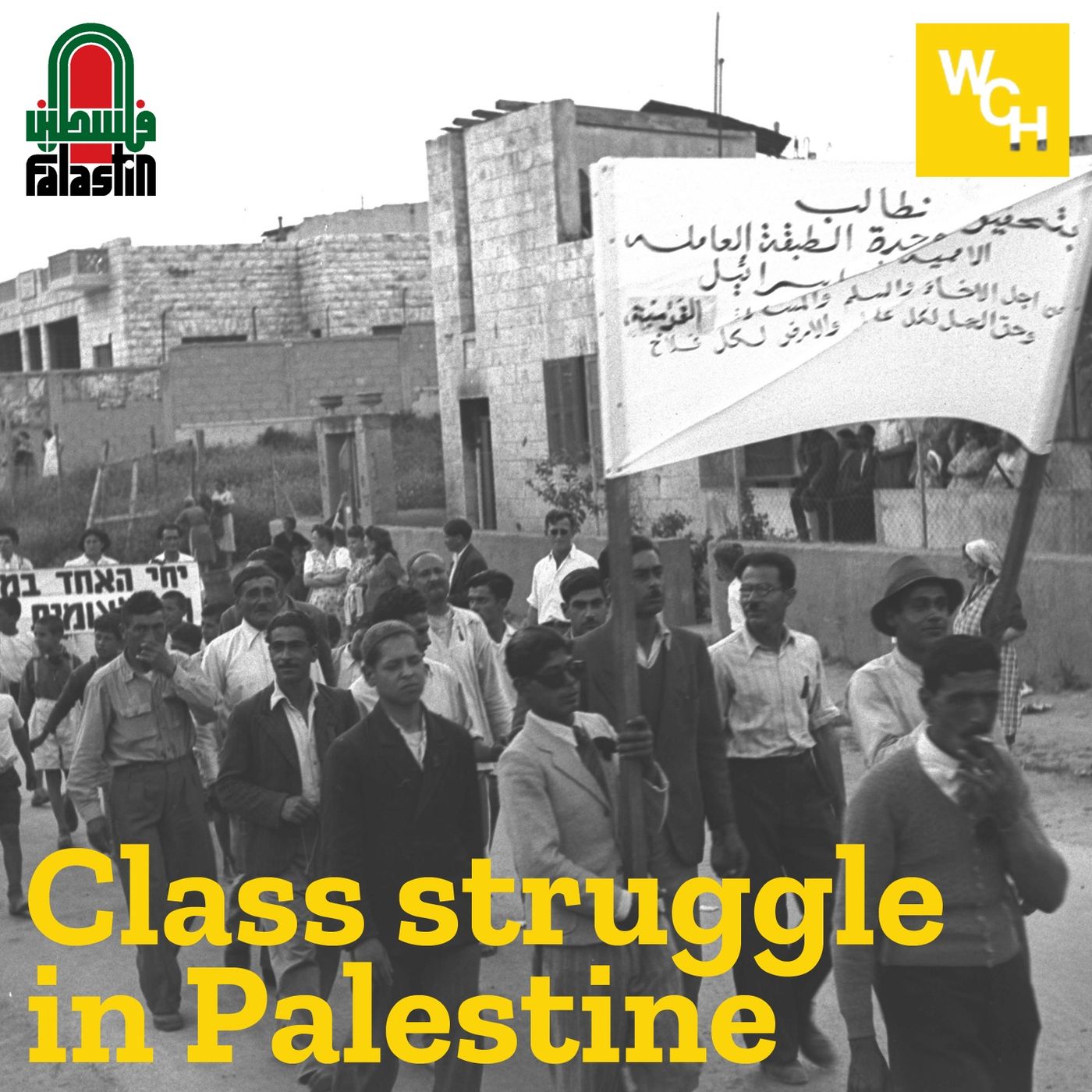
E87: Class struggle in Palestine, part 2
Part 2 of our double-episode podcast about workers' struggles in Palestine during the British Mandate (1920-48). In this episode, we cover the Palestinian labour movement during World War II, new Palestinian workers’ organisations, the split (along national lines) in the Palestine Communist Party, joint struggles by Arab and Jewish workers, war and the Nakba.Our podcast is brought to you by our patreon supporters. Our supporters fund our work, and in return get exclusive early access to podcast episodes, ad-free episodes, bonus episodes, free and discounted merchandise and other content. Join us or find out more at patreon.com/workingclasshistory.In this episode, we spoke to Palestinian scholar and activist, Leena Dallasheh. Her research focuses on the history of Palestine/Israel, with a particular interest in Palestinians who became citizens of Israel in 1948. For more info on Leena and her research, you can check her website.Be sure to also check out 'Falastin: A Digital Monument' by Collecteurs, of which these episodes are a part.More information, including sources, further reading, images and eventually a transcript are on the webpage for this episode: https://workingclasshistory.com/podcast/e86-87-class-struggle-in-palestine/AcknowledgementsThanks to our patreon supporters for making this podcast possible. Special thanks to Jazz Hands, Jamison D. Saltsman, Fernando López Ojeda and Jeremy Cusimano.Edited by Tyler HillEpisode graphic: public domain/Library of Congress.Our theme tune is Bella Ciao, thanks for permission to use it from Dischi del Sole. You can purchase it here or stream it hereBecome a supporter of this podcast: https://www.spreaker.com/podcast/working-class-history--5711490/support.
48:1412/06/2024
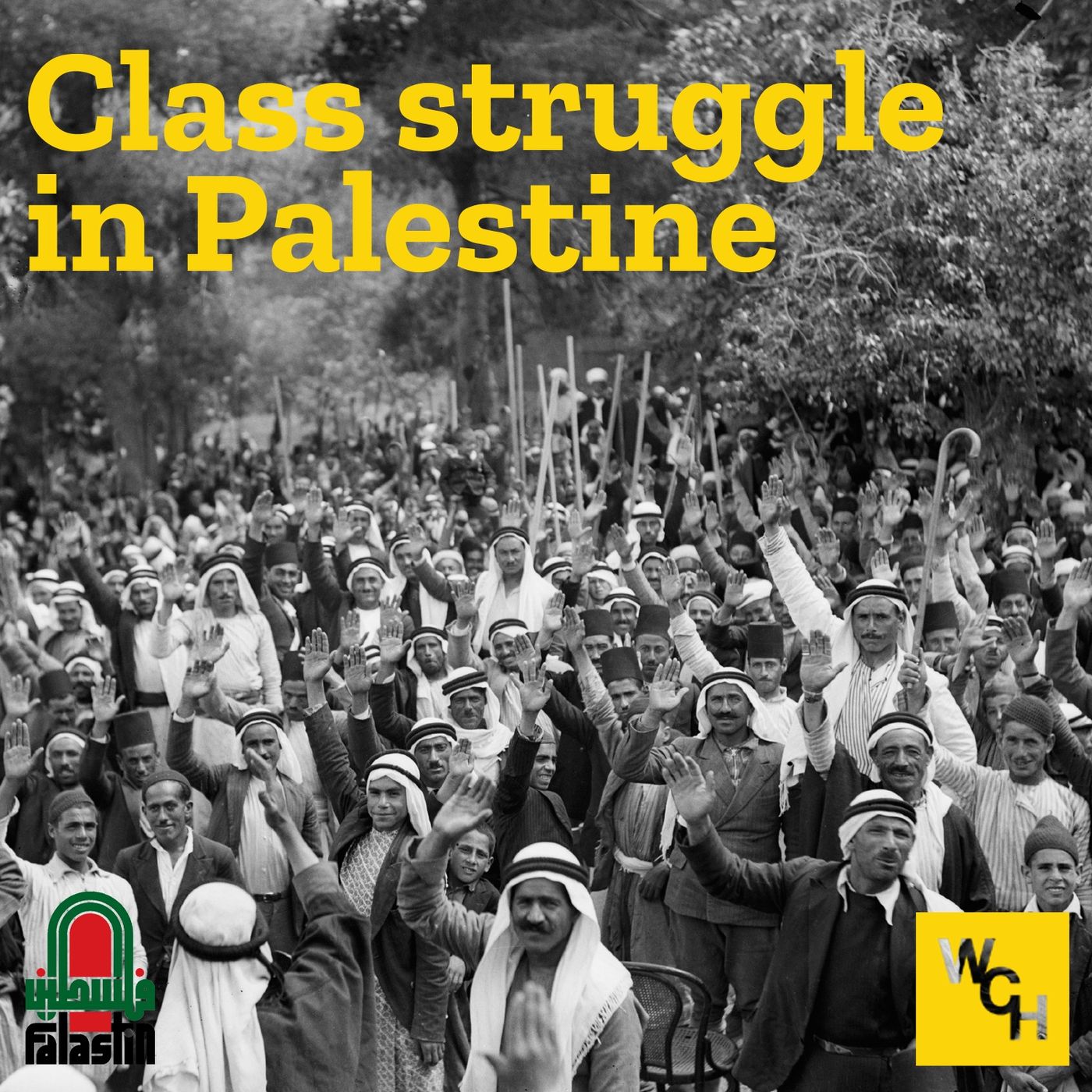
E86: Class struggle in Palestine, part 1
First of a double podcast about workers' struggles in Palestine during the British Mandate (1920-48). In this episode we cover the Balfour Declaration and establishment of the British Mandate, the campaign for 'Hebrew Labour', a number of workers' organisations like the Palestinian Arab Workers' Society (PAWS) and the Palestine Labour League (PLL), as well as the 1936-39 Great Palestinian Revolt.Our podcast is brought to you by our patreon supporters. Our supporters fund our work, and in return get exclusive early access to podcast episodes, ad-free episodes, bonus episodes, free and discounted merchandise and other content. Join us or find out more at patreon.com/workingclasshistoryIn this episode, we spoke to Palestinian scholar and activist, Leena Dallasheh. Her research focuses on the history of Palestine/Israel, with a particular interest in Palestinians who became citizens of Israel in 1948. For more info on Leena and her research, you can check her website.Be sure to also check out 'Falastin: A Digital Monument' by Collecteurs, of which these episodes are a part.More information, photos, suggested reading, sources, and eventually a transcript are on the webpage for this episode: https://workingclasshistory.com/podcast/e86-87-class-struggle-in-palestine/AcknowledgementsThanks to our patreon supporters for making this podcast possible. Special thanks to Jazz Hands, Jamison D. Saltsman, Fernando López Ojeda and Jeremy Cusimano.Edited by Tyler HillEpisode graphic: public domain/Library of Congress.Our theme tune is Bella Ciao, thanks for permission to use it from Dischi del Sole. You can purchase it here or stream it here.Become a supporter of this podcast: https://www.spreaker.com/podcast/working-class-history--5711490/support.
51:5330/05/2024
![E85: [TEASER] May Day with Upstream E85: [TEASER] May Day with Upstream](https://d3wo5wojvuv7l.cloudfront.net/t_rss_itunes_square_1400/images.spreaker.com/original/51b5010b6f90cd5dbd1ede1ac06a9937.jpg)
E85: [TEASER] May Day with Upstream
Teaser extract from an episode exclusively for our patreon supporters. Episode produced by Upstream in conversation with John from Working Class History talking about the history of May Day, International Workers’ Day, from its modern origins in Chicago in 1886, to its mediaeval roots, and its relevance today.Our podcast is brought to you by our patreon supporters. Our supporters fund our work, and in return get exclusive early access to podcast episodes, ad-free episodes, bonus episodes, free and discounted merchandise and other content. Join us or find out more at patreon.com/workingclasshistoryMade exclusively for Upstream’s patreon supporters, we are happy to be able to share it with our patreon supporters as well. Listen to the full episode without adverts here:E85: May Day with Upstream on patreon More informationCheck out Upstream at upstreampodcast.orgSupport Upstream on patreon at patreon.com/upstreampodcast.Learn more about the history of May Day in this book in our online store: The Incomplete, True, Authentic, And Wonderful History Of May Day by Peter LinebaughLearn more about the 1886 strike and other mass strikes in US history in this book: Strike! by Jeremy Brecher.Check out our May Day posters and merch here in our online store: https://shop.workingclasshistory.com/collections/all/may-dayEpisode webpage for show notes here on our website: https://workingclasshistory.com/podcast/e85-may-day-with-upstream/Become a supporter of this podcast: https://www.spreaker.com/podcast/working-class-history--5711490/support.
14:4902/05/2024
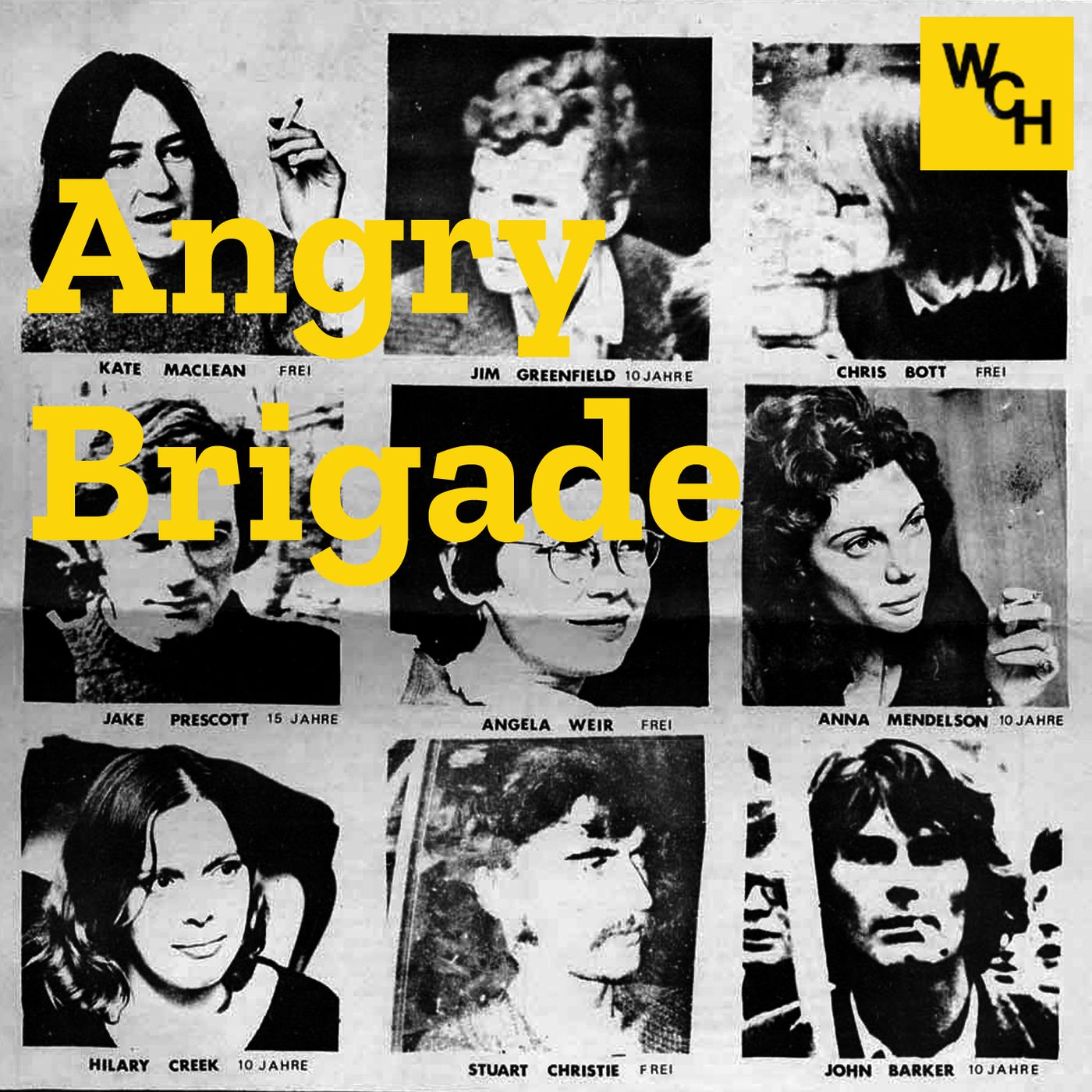
E84: Angry Brigade, part 2
Second in a double podcast about the Angry Brigade, Britain’s first home-grown urban guerrilla group, in the 1960s and 70s, in conversation with John Barker, who was put on trial as part of the group.Our podcast is brought to you by our patreon supporters. Our supporters fund our work, and in return get exclusive early access to podcast episodes, ad-free episodes, bonus episodes, free and discounted merchandise and other content. Join us or find out more at patreon.com/workingclasshistoryContinuing our recent series of episodes about the UK in the 1970s, this is a re-edited, improved and re-released version of our episodes 2-3. It contains numerous additional audio clips, and written narrative to provide context and more information.More informationGordon Carr, The Angry Brigade: A History Of Britain’s First Urban Guerilla Group (PM Press, 2010) – a detailed history of the Angry Brigade.The Angry Brigade 1967-1984: Documents And Chronology (Active Distribution) – a pamphlet containing a detailed chronology of the organisation and the scene of which it was a part, as well as documents produced by the groupThe Angry Brigade: The Spectacular Rise And Fall Of Britain’s First Urban Guerilla Group – a DVD documentary by Gordon Carr on the history of the group.John Barker, Futures (PM Press, 2014) – novel by John Barker set in Thatcher’s Britain.Timeline of Stories about the Angry BrigadeTheHarrier.net – John Barker’s website including his other books and writings.Anselm Jappe, Guy Debord (PM Press, 2018) – the best biography of Situationist intellectual Guy Debord.Red Army Faction books – a collection of books about the German RAF.John Barker’s radical London playlist – a collection of tracks which Brigaders were listening to at the time.AcknowledgementsThanks to our patreon supporters for making this podcast possible. Special thanks to Jazz Hands, Jamison D. Saltsman and Fernando López Ojeda.Edited by Tyler HillTheme tune is ‘Bella Ciao’, thanks for permission to use it from Dischi del Sole. You can purchase it here or stream it here.More information, sources, and eventually a transcript on the webpage for this episode: https://workingclasshistory.com/podcast/e83-4-angry-brigade/Become a supporter of this podcast: https://www.spreaker.com/podcast/working-class-history--5711490/support.
44:1118/01/2024

E83: Angry Brigade, part 1
Double podcast about the Angry Brigade, Britain’s first home-grown urban guerrilla group, in the 1960s and 70s, in conversation with John Barker, who was put on trial as part of the group.Our podcast is brought to you by our patreon supporters. Our supporters fund our work, and in return get exclusive early access to podcast episodes, ad-free episodes, bonus episodes, free and discounted merchandise and other content. Join us or find out more at patreon.com/workingclasshistoryContinuing our recent series of episodes about the UK in the 1970s, this is a re-edited, improved and re-released version of our episodes 2-3. It contains numerous additional audio clips, and written narrative to provide context and more information.More informationGordon Carr, The Angry Brigade: A History Of Britain’s First Urban Guerilla Group (PM Press, 2010) – a detailed history of the Angry Brigade.The Angry Brigade 1967-1984: Documents And Chronology (Active Distribution) – a pamphlet containing a detailed chronology of the organisation and the scene of which it was a part, as well as documents produced by the groupThe Angry Brigade: The Spectacular Rise And Fall Of Britain’s First Urban Guerilla Group – a DVD documentary by Gordon Carr on the history of the group.John Barker, Futures (PM Press, 2014) – novel by John Barker set in Thatcher’s Britain.Timeline of Stories about the Angry BrigadeTheHarrier.net – John Barker’s website including his other books and writings.Anselm Jappe, Guy Debord (PM Press, 2018) – the best biography of Situationist intellectual Guy Debord.Red Army Faction books – a collection of books about the German RAF.John Barker’s radical London playlist – a collection of tracks which Brigaders were listening to at the time.AcknowledgementsThanks to our patreon supporters for making this podcast possible. Special thanks to Jazz Hands, Jamison D. Saltsman and Fernando López Ojeda.Edited by Tyler HillTheme tune is ‘Bella Ciao’, thanks for permission to use it from Dischi del Sole. You can purchase it here or stream it here.More information, sources, and eventually a transcript on the webpage for this episode: https://workingclasshistory.com/podcast/e83-4-angry-brigade/Become a supporter of this podcast: https://www.spreaker.com/podcast/working-class-history--5711490/support.
44:2610/01/2024
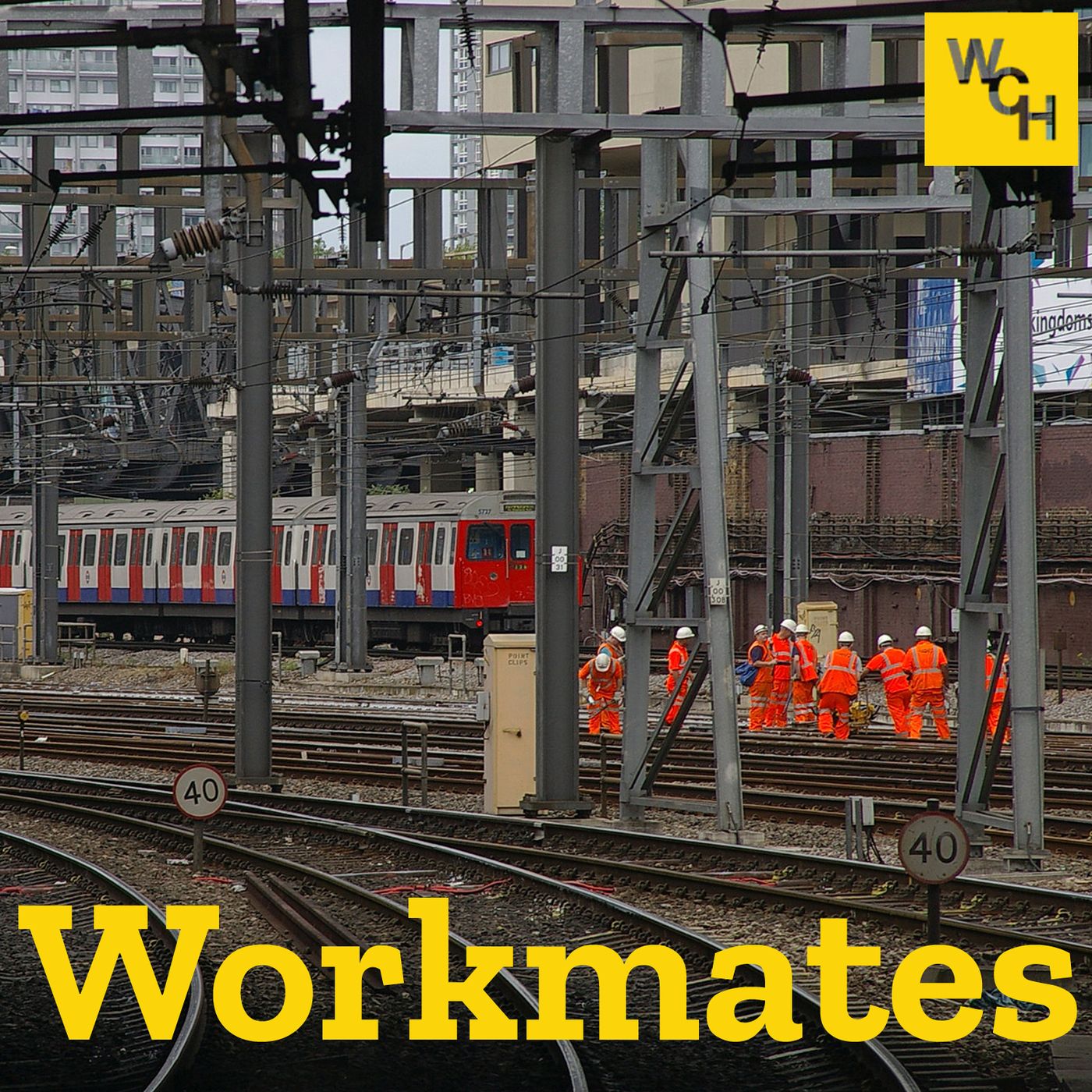
E82: Workmates collective
Podcast episode about the Workmates collective, a rank-and-file initiative on the London Underground using unofficial direct action and workplace assemblies to fight privatisation in the late-1990s/early 2000s.Our supporters fund our work, and in return get exclusive early access to podcast episodes, ad-free episodes, bonus episodes, free and discounted merchandise and other content. Sign up and get access to exclusive content and benefits at patreon.com/workingclasshistoryIn this episode, we speak to Andy Littlechild, a former London Underground worker and activist with the Rail, Maritime and Transport Workers (RMT) union. He explains how the Labour government introduced privatisation to the Underground, how the Workmates mass meetings began, the start of the Workmates delegate council, the 'Job-and-Knock' dispute, and the eventual demise of the 'Public Private Partnership'.E82.1 bonus episode: Andy discusses the politics of anarcho-syndicalism and their influence on his organising. He also tells us about a failed attempt by London Underground management to sack him for his workplace activismMore information about this episode, including sources, images, links, and eventually a transcript on the webpage for this episode: https://workingclasshistory.com/podcast/e82-workmates-collective/Learn more in our exclusive bonus episode, coming soon for our patreon supporters.AcknowledgementsThanks to our patreon supporters for making this podcast possible. Special thanks to Jazz Hands, Jamison D. Saltsman and Fernando López Ojeda.Episode graphic: reworked image originally by Matt Buck (CC BY-SA 2.0 Deed)Edited by Jesse FrenchTheme tune is 'Bella Ciao', thanks for permission to use it from Dischi del Sole. You can purchase it here or stream it here.Become a supporter of this podcast: https://www.spreaker.com/podcast/working-class-history--5711490/support.
49:2802/11/2023
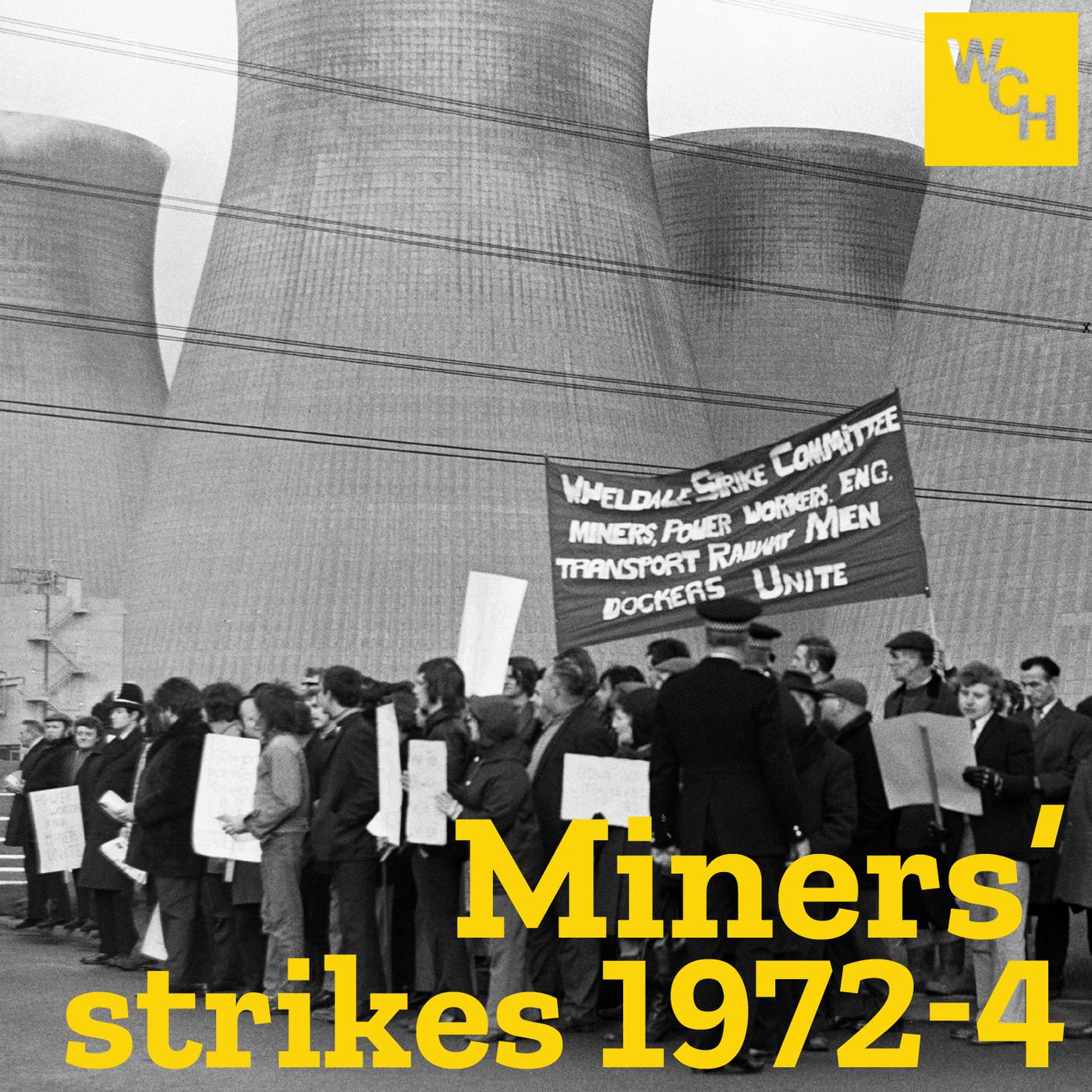
E81: Miners' strikes 1972-4
Podcast episode about strikes by miners in Britain in 1972 and 1974, in conversation with Dave Douglass.Our podcast is brought to you by our patreon supporters. Our supporters fund our work, and in return get exclusive early access to podcast episodes, ad-free episodes, bonus episodes, free and discounted merchandise and other content. Sign up and get access to exclusive content and benefits at patreon.com/workingclasshistoryContinuing our intermittent series of podcast episodes about the great strike of UK miners from 1984-5, we tell the story of what came beforehand. In this episode, we look at the historical background, and learn about the national wildcat strike in 1969, as well as the huge, nationwide official strikes of 1972 and 1974, which both defeated the Conservative government and eventually brought it down.E81.1 bonus episode: more about Dave’s revolutionary politics, day-to-day work in the mines, and discussion of popular images of the 1970s in the UK today. Available exclusively for our patreon supporters.More information about this episode, including sources, photographs, links, and eventually a transcript on the webpage for this episode: https://workingclasshistory.com/blog/e81-miners-strikes-1972-4/AcknowledgementsThanks to our patreon supporters for making this podcast possible. Special thanks to Jazz Hands, Jamison D. Saltsman and Fernando López Ojeda.Episode graphic: © NLA/reportdigital.co.uk.Edited by Louise BarryTheme tune courtesy of the Easington Colliery Brass Band.Become a supporter of this podcast: https://www.spreaker.com/podcast/working-class-history--5711490/support.
46:0817/10/2023
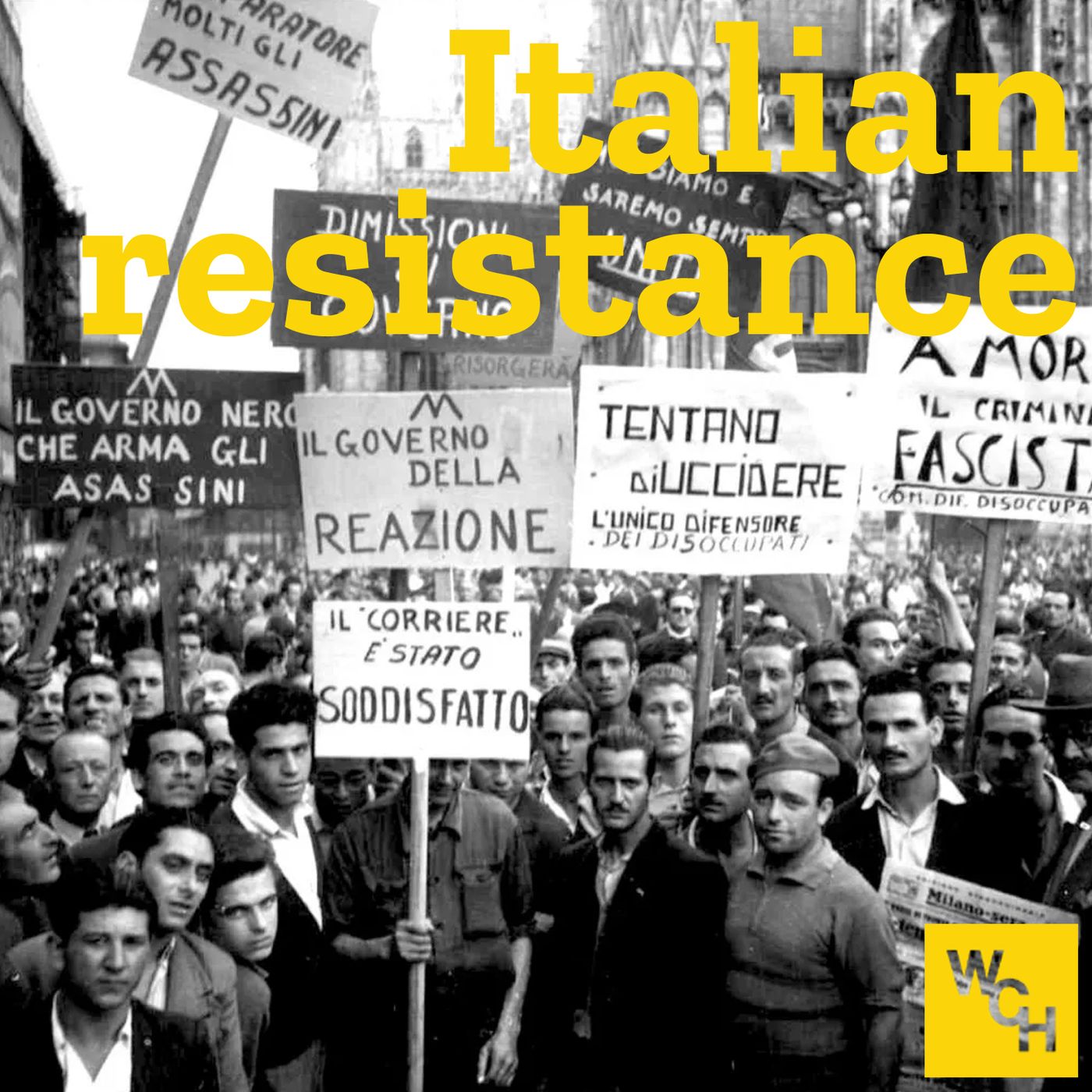
E80: Italian resistance, part 4
The fourth and final episode of our podcast series on the Italian resistance to fascism in conversation with anti-fascist partisans themselves.In this episode, we look at the postwar anti-fascist resistance: from armed partisan rebellions and the so-called ‘Triangle of Death’ to the 1960 anti-Tambroni riots in Genoa, as well as how the resistance is (mis)remembered today.Our podcast is brought to you by our patreon supporters. Our supporters fund our work, and in return get exclusive early access to podcast episodes, ad-free episodes, bonus episodes, free and discounted merchandise and other content. Join us or find out more at patreon.com/workingclasshistoryGet Italian resistance merchAcknowledgementsThanks to our patreon supporters for making this podcast possible. Special thanks to Jazz Hands, Jamison D. Saltsman and Fernando López Ojeda.Edited by Tyler HillEpisode graphic: public domain.Our theme tune is Bella Ciao, thanks for permission to use it from Dischi del Sole. You can purchase it here or stream it here.Show notes, along with sources, photos, further reading, and a transcript on the webpage for this episode: https://workingclasshistory.com/podcast/e77-80-italian-resistance/Become a supporter of this podcast: https://www.spreaker.com/podcast/working-class-history--5711490/support.
36:4504/10/2023
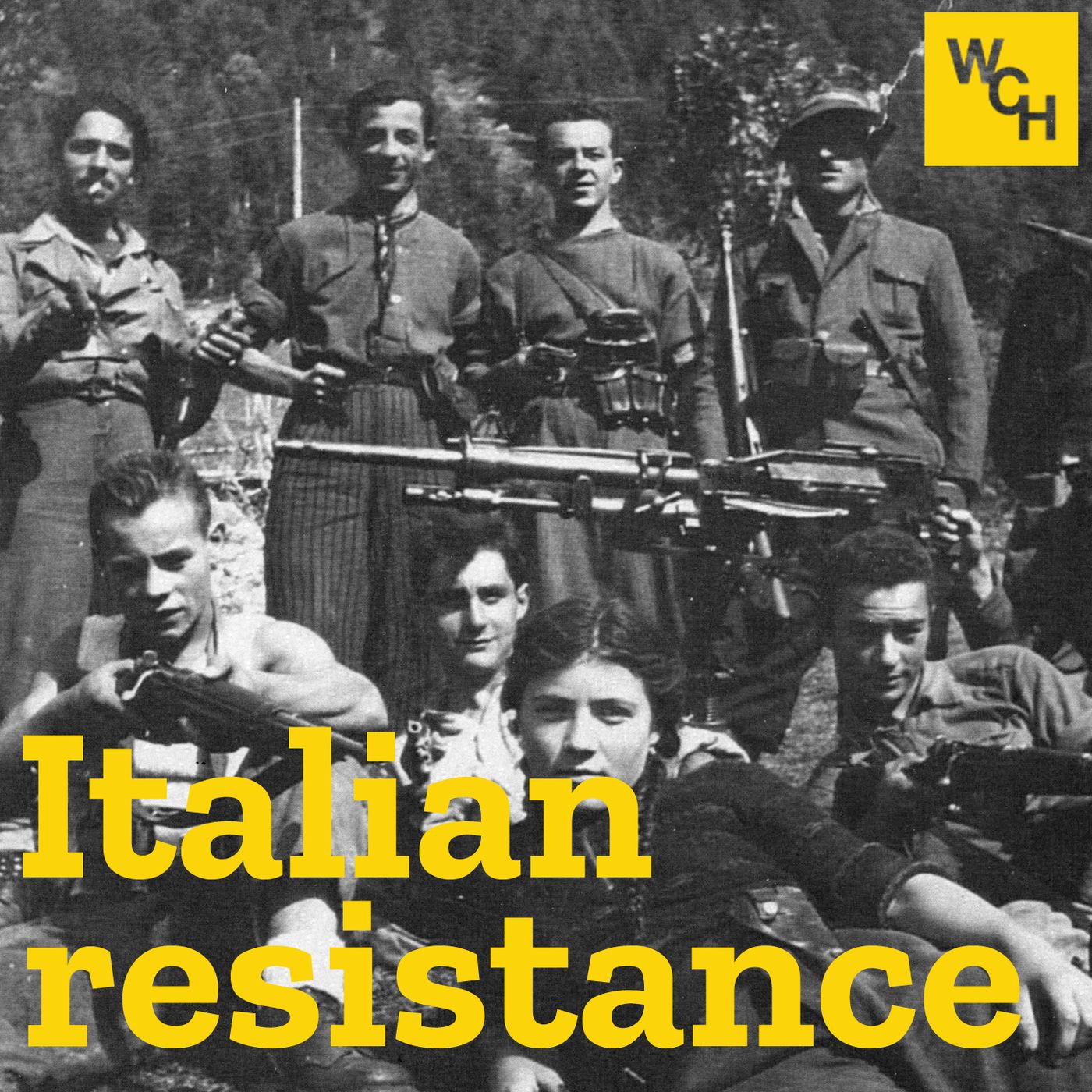
E79: Italian resistance, part 3
Part 3 of our four-part podcast series on the Italian resistance to fascism in conversation with anti-fascist partisans themselves.In this episode, we look at the question of 'the resistance betrayed': the Togliatti amnesty, what happened to fascists and anti-fascists immediately after the war, and how Italy's fascist movement was allowed to rebuild itself.Our podcast is brought to you by our patreon supporters. Our supporters fund our work, and in return get exclusive early access to podcast episodes, ad-free episodes, bonus episodes, free and discounted merchandise and other content. Join us or find out more at patreon.com/workingclasshistoryGet Italian resistance merchAcknowledgementsThanks to our patreon supporters for making this podcast possible. Special thanks to Jazz Hands, Jamison D. Saltsman and Fernando López Ojeda.Edited by Tyler HillEpisode graphic: public domain.Our theme tune is Bella Ciao, thanks for permission to use it from Dischi del Sole. You can purchase it here or stream it here.Show notes, along with sources, photos, further reading, and a transcript on the webpage for this episode: https://workingclasshistory.com/podcast/e77-80-italian-resistance/Become a supporter of this podcast: https://www.spreaker.com/podcast/working-class-history--5711490/support.
32:0227/09/2023
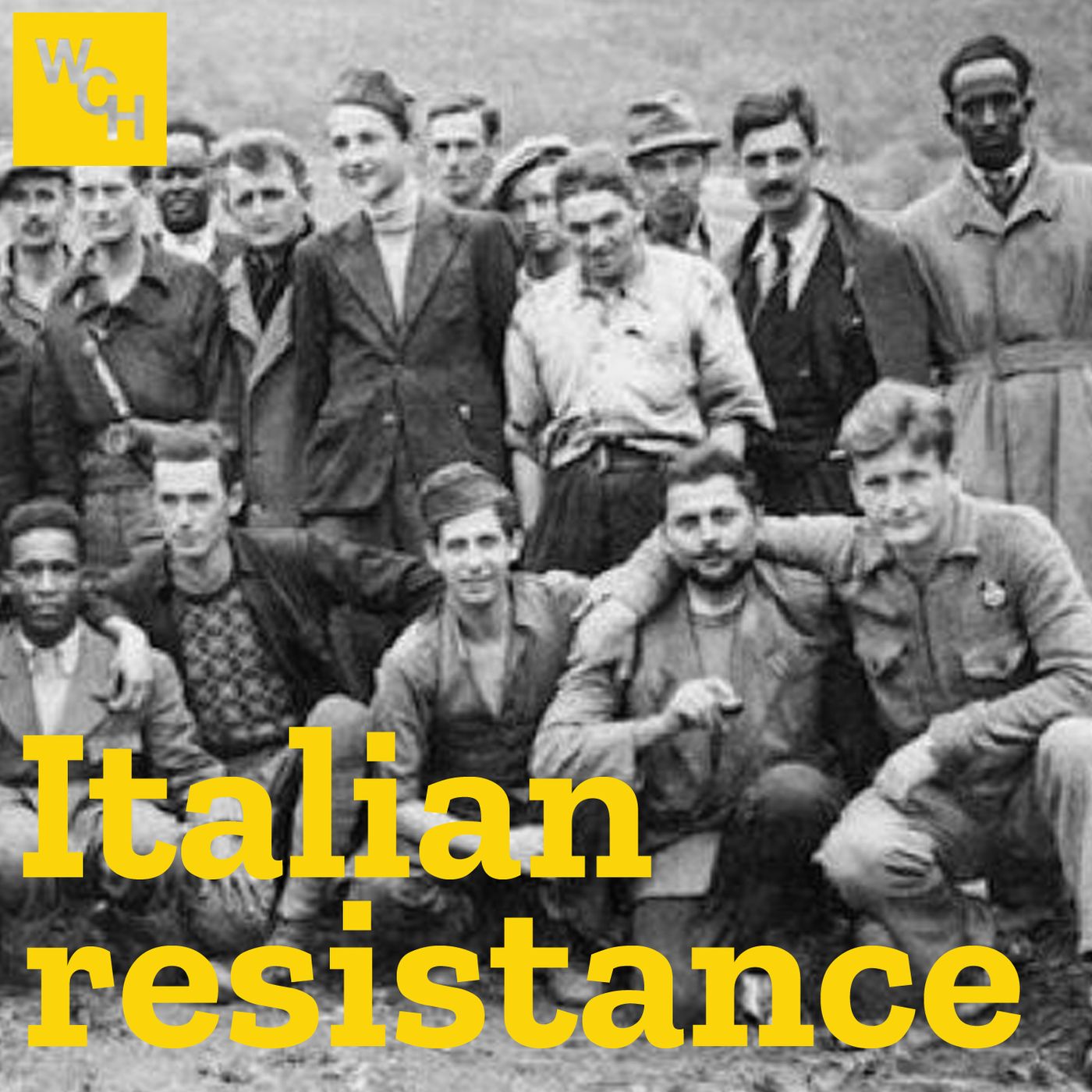
E78: Italian resistance, part 2
Part 2 of our four-part podcast series on the Italian resistance to fascism in conversation with anti-fascist partisans themselves.In this episode, we discuss the participation of migrant partisans in the resistance, what the resistance looked like in the cities, the raid of the Jewish ghetto in Rome and, finally, liberation and the execution of Mussolini.Our podcast is brought to you by our patreon supporters. Our supporters fund our work, and in return get exclusive early access to podcast episodes, ad-free episodes, bonus episodes, free and discounted merchandise and other content. Join us or find out more at patreon.com/workingclasshistoryGet Italian resistance merchAcknowledgementsThanks to our patreon supporters for making this podcast possible. Special thanks to Jazz Hands, Jamison D. Saltsman and Fernando López Ojeda.Edited by Tyler HillEpisode graphic: public domain.Our theme tune is Bella Ciao, thanks for permission to use it from Dischi del Sole. You can purchase it here or stream it here.Show notes, along with sources, photos, further reading, and eventually a transcript on the webpage for this episode: https://workingclasshistory.com/podcast/e77-80-italian-resistance/Become a supporter of this podcast: https://www.spreaker.com/podcast/working-class-history--5711490/support.
36:1920/09/2023
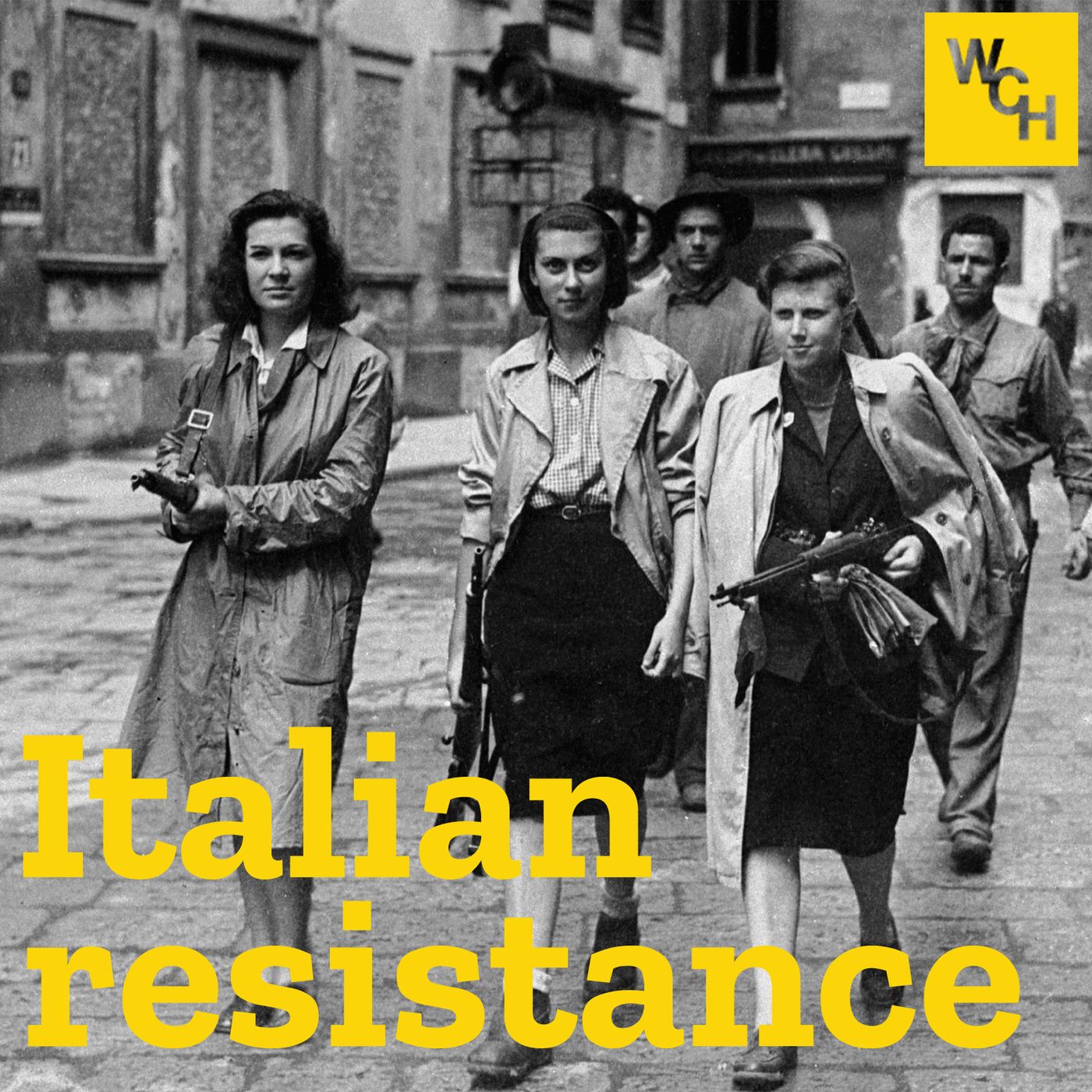
E77: Italian resistance, part 1
The first of a four-part podcast series on the Italian resistance to fascism, both during World War Two and immediately after, in conversation with anti-fascist partisans themselves.In this episode, we look at the rise of fascism, the start of the resistance during World War Two, the partisan formations of the mountains and the participation of women in the resistance.Our podcast is brought to you by our patreon supporters. Our supporters fund our work, and in return get exclusive early access to podcast episodes, ad-free episodes, bonus episodes, free and discounted merchandise and other content. Join us or find out more at patreon.com/workingclasshistoryGet Italian resistance merchAcknowledgementsThanks to our patreon supporters for making this podcast possible. Special thanks to Jazz Hands, Jamison D. Saltsman and Fernando López Ojeda.Edited by Tyler HillEpisode graphic: public domain.Our theme tune is Bella Ciao, thanks for permission to use it from Dischi del Sole. You can purchase it here or stream it here.Show notes, along with sources, photos, further reading, and eventually a transcript on the webpage for this episode: https://workingclasshistory.com/podcast/e77-80-italian-resistance/Become a supporter of this podcast: https://www.spreaker.com/podcast/working-class-history--5711490/support.
38:0713/09/2023
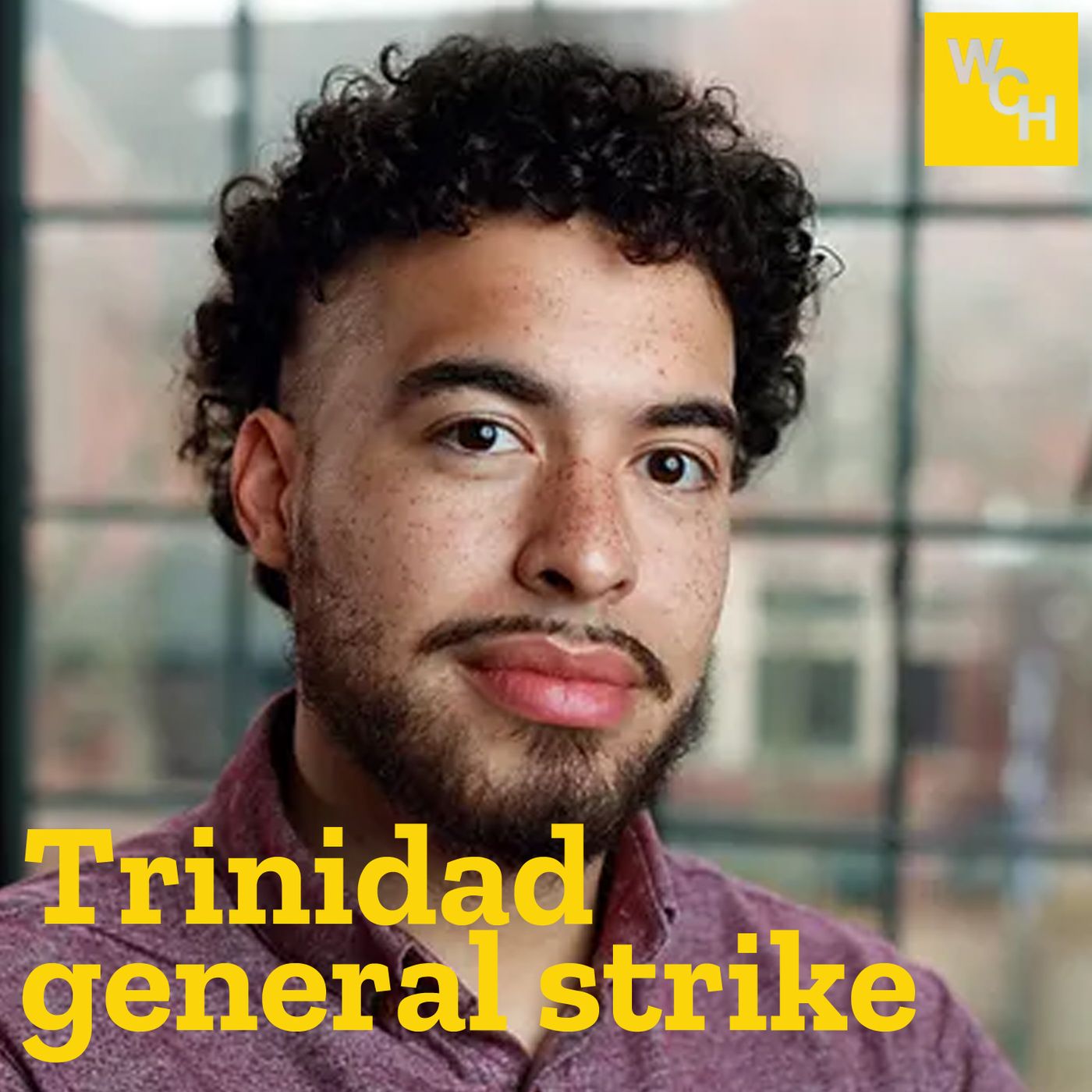
E76: Trinidad general strike, part 2
Second of a double podcast episode about the Trinidad general strike of 1937, in conversation with Ryan Cecil Jobson.Our podcast is brought to you by our patreon supporters. Our supporters fund our work, and in return get exclusive early access to podcast episodes, ad-free episodes, bonus episodes, free and discounted merchandise and other content. Join us or find out more at patreon.com/workingclasshistoryPart 2 is about the general strike itself, the repression, the aftermath, its consequences and lessons for us today.Get books by CLR JamesAcknowledgementsThanks to our patreon supporters for making this podcast possible. Special thanks to Jazz Hands, Jamison D. Saltsman and Fernando López Ojeda.Episode graphic: public domain.Edited by Jesse FrenchOur theme tune is Bella Ciao, thanks for permission to use it from Dischi del Sole. You can purchase it here or stream it here.More information, sources, full acknowledgements and a transcript on the web page for this episode: https://workingclasshistory.com/podcast/e75-76-trinidad-general-strike/Become a supporter of this podcast: https://www.spreaker.com/podcast/working-class-history--5711490/support.
34:4306/09/2023
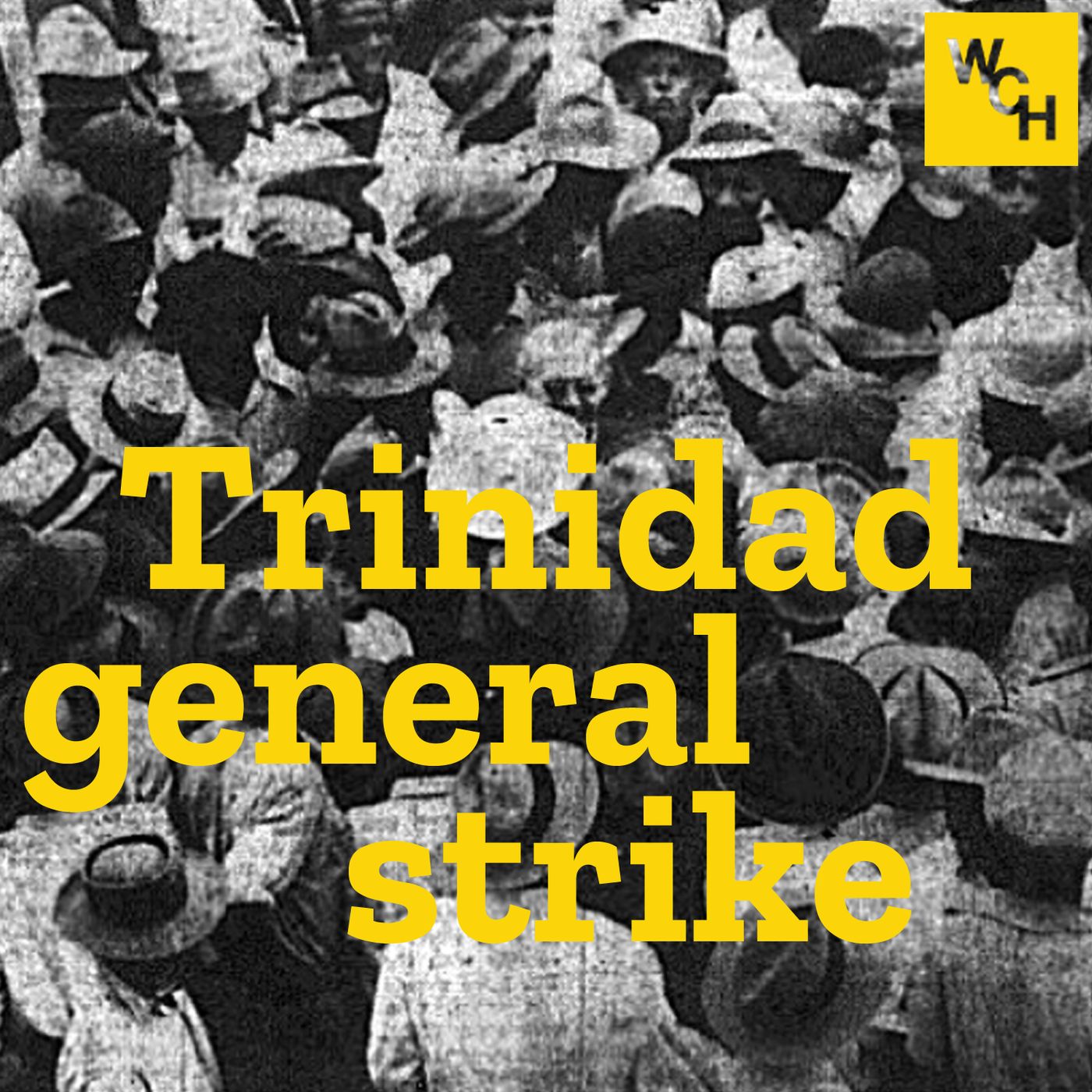
E75: Trinidad general strike, part 1
First in a double podcast episode about the Trinidad general strike of 1937, in conversation with Ryan Cecil Jobson.Our podcast is brought to you by our patreon supporters. Our supporters fund our work, and in return get exclusive early access to podcast episodes, ad-free episodes, bonus episodes, free and discounted merchandise and other content. Join us or find out more at patreon.com/workingclasshistoryPart 1 is about the background of British colonialism on the island, the conditions of the working class and poor, racial divisions, and the beginnings of unemployed and worker agitation in the 1930s.Get books by CLR JamesAcknowledgementsThanks to our patreon supporters for making this podcast possible. Special thanks to Jazz Hands, Jamison D. Saltsman and Fernando López Ojeda.Episode graphic: public domain.Edited by Jesse FrenchOur theme tune is Bella Ciao, thanks for permission to use it from Dischi del Sole. You can purchase it here or stream it here.More information, sources, full acknowledgements and a transcript on the web page for this episode: https://workingclasshistory.com/podcast/e75-76-trinidad-general-strike/Become a supporter of this podcast: https://www.spreaker.com/podcast/working-class-history--5711490/support.
40:3320/07/2023
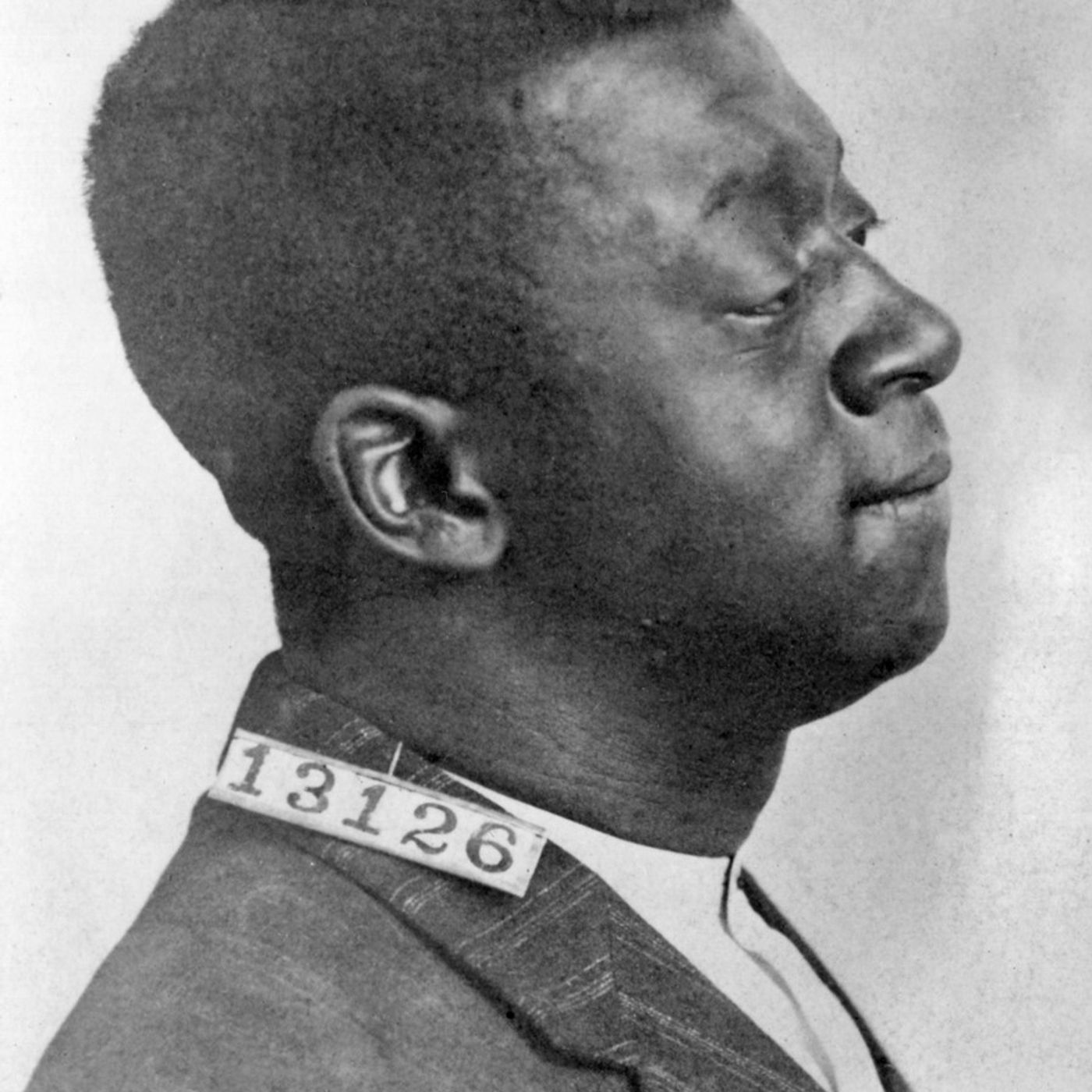
E74: Ben Fletcher, part 2
Concluding part of a double podcast episode about Ben Fletcher, a very important but little-known dock worker and labour organiser in the US with the Industrial Workers of the World union.In these episodes, we speak with historian Peter Cole, author and editor of Ben Fletcher: The Life And Times Of A Black Wobbly. We also hear words written by Fletcher, voiced by fellow Wobbly, Alki.In part 2 we learn about Fletcher’s imprisonment, later life, and the demise of Local 8. Our podcast is brought to you by our patreon supporters. Our supporters fund our work, and in return get exclusive early access to podcast episodes, ad-free episodes, bonus episodes, free and discounted merchandise and other content. Join us or find out more at patreon.com/workingclasshistoryFull information, acknowledgements, sources and a transcript are on the webpage for this episode: https://workingclasshistory.com/podcast/e73-ben-fletcher/AcknowledgementsThanks to our patreon supporters for making this podcast possible. Special thanks to Jazz Hands, Jamison D. Saltsman and Fernando Lopez Ojeda.Words of Ben Fletcher voiced by Alki. Check out his YouTube channel here, or follow him on Twitter here.Episode graphic: Ben Fletcher in 1918. Courtesy US National Archives and Records Administration/Wikimedia Commons.Theme music: “Solidarity (Forever)”, written by Ralph Chaplin, performed by The Nightwatchman, Tom Morello. Buy or stream it here.Edited by Louise BarryBecome a supporter of this podcast: https://www.spreaker.com/podcast/working-class-history--5711490/support.
52:3620/06/2023
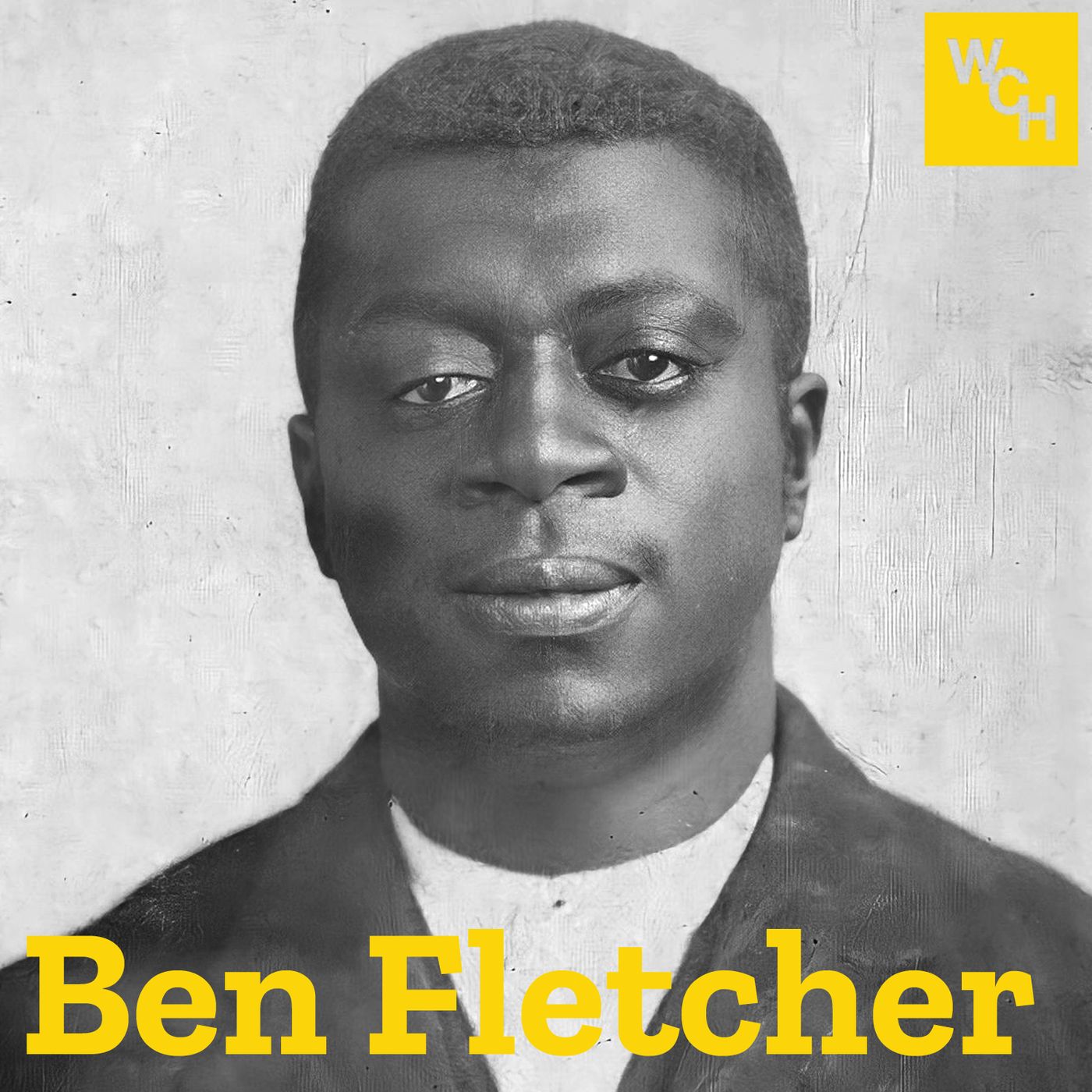
E73: Ben Fletcher, part 1
First in a double podcast episode about Ben Fletcher, a very important but little-known dock worker and labour organiser in the US with the Industrial Workers of the World union.In these episodes, we speak with historian Peter Cole, author and editor of Ben Fletcher: The Life And Times Of A Black Wobbly. We also hear words written by Fletcher, voiced by fellow Wobbly, Alki.In part 1 we learn about his early life, as well as his union branch, Local 8, which in the early 20th-century organised thousands of workers on the Philadelphia docks and was the most powerful multiracial union in the country at the time.Our podcast is brought to you by our patreon supporters. Our supporters fund our work, and in return get exclusive early access to podcast episodes, ad-free episodes, bonus episodes, free and discounted merchandise and other content. Join us or find out more at patreon.com/workingclasshistoryFull information, acknowledgements, sources and a transcript are on the webpage for this episode: https://workingclasshistory.com/podcast/e73-ben-fletcher/AcknowledgementsThanks to our patreon supporters for making this podcast possible. Special thanks to Jazz Hands and Jamison D. Saltsman.Words of Ben Fletcher voiced by Alki. Check out his YouTube channel here, or follow him on Twitter here.Episode graphic: Ben Fletcher in 1918, enhanced by WCH. Courtesy US National Archives and Records Administration/Wikimedia Commons.Theme music: “Solidarity (Forever)”, written by Ralph Chaplin, performed by The Nightwatchman, Tom Morello. Buy or stream it here.Edited by Louise BarryBecome a supporter of this podcast: https://www.spreaker.com/podcast/working-class-history--5711490/support.
39:4605/06/2023
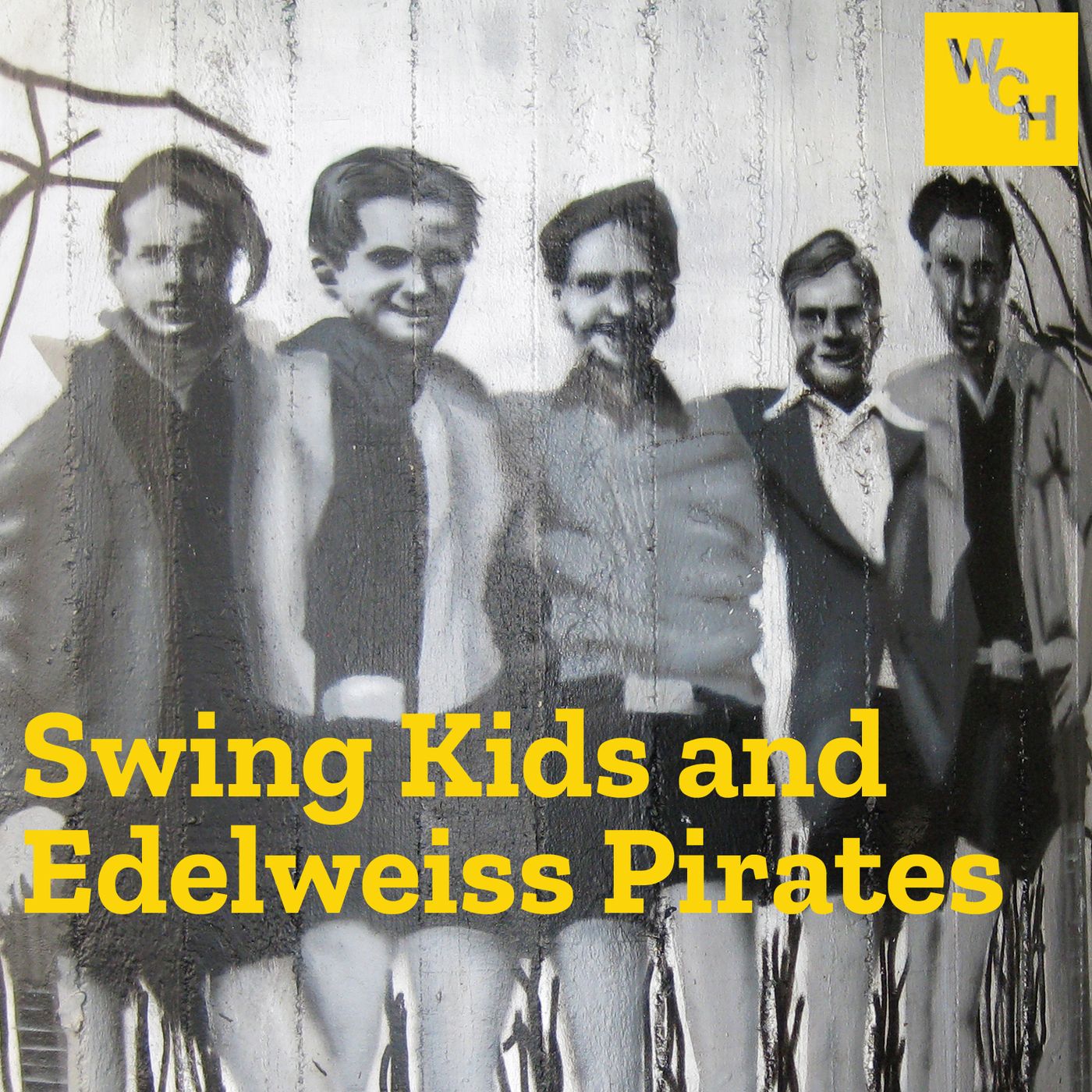
E72: Swing Kids and Edelweiss Pirates
Podcast episode about anti-fascist youth cultural movements in Nazi Germany before and during World War II. In particular we look at the German Edelweiss Pirates and Swing Kids, and in our patreon bonus episode we also speak about the French Zazous and the Austrian Schlurfs.Our podcast is brought to you by our patreon supporters. Our supporters fund our work, and in return get exclusive early access to podcast episodes, bonus episodes, free and discounted merchandise and other content. Join us or find out more at patreon.com/workingclasshistoryDespite years of indoctrination, young people in fascist Europe in the 1930s and 40s resisted the authoritarianism and conformism of Nazi rule. We hear from former Edelweiss Pirate Walter Mayer, and speak with historian Nick Heath about these little-known movements.E72.1: Zazous and Schlurfs, bonus episode – available exclusively for our patreon supportersAnti-fascist books and merchandise – Posters, clothing and merchandise using artwork by or inspired by the Edelweiss Pirates and other 1930s anti-fascists in Germany.See sources, more information and a transcript on the webpage for this episode here: https://workingclasshistory.com/podcast/72-edelweiss-pirates-swing-kids/.AcknowledgementsThanks to our patreon supporters for making this podcast possible. Special thanks to Jazz Hands and Jamison D. Saltsman.Episode graphic, mural of a group of Edelweiss Pirates in Cologne, courtesy wwwuppertal Flickr, CC by 2.0.Edited by Louise BarryThe theme music was Functionizin’, by Fats Waller, courtesy of the Swiss Foundation and Wikimedia Commons.Also featured was Richard Wagner’s Gerechter Gott, performed by Ernestine Schumann-Heink also courtesy of Wikimedia Commons.Become a supporter of this podcast: https://www.spreaker.com/podcast/working-class-history--5711490/support.
31:5103/04/2023
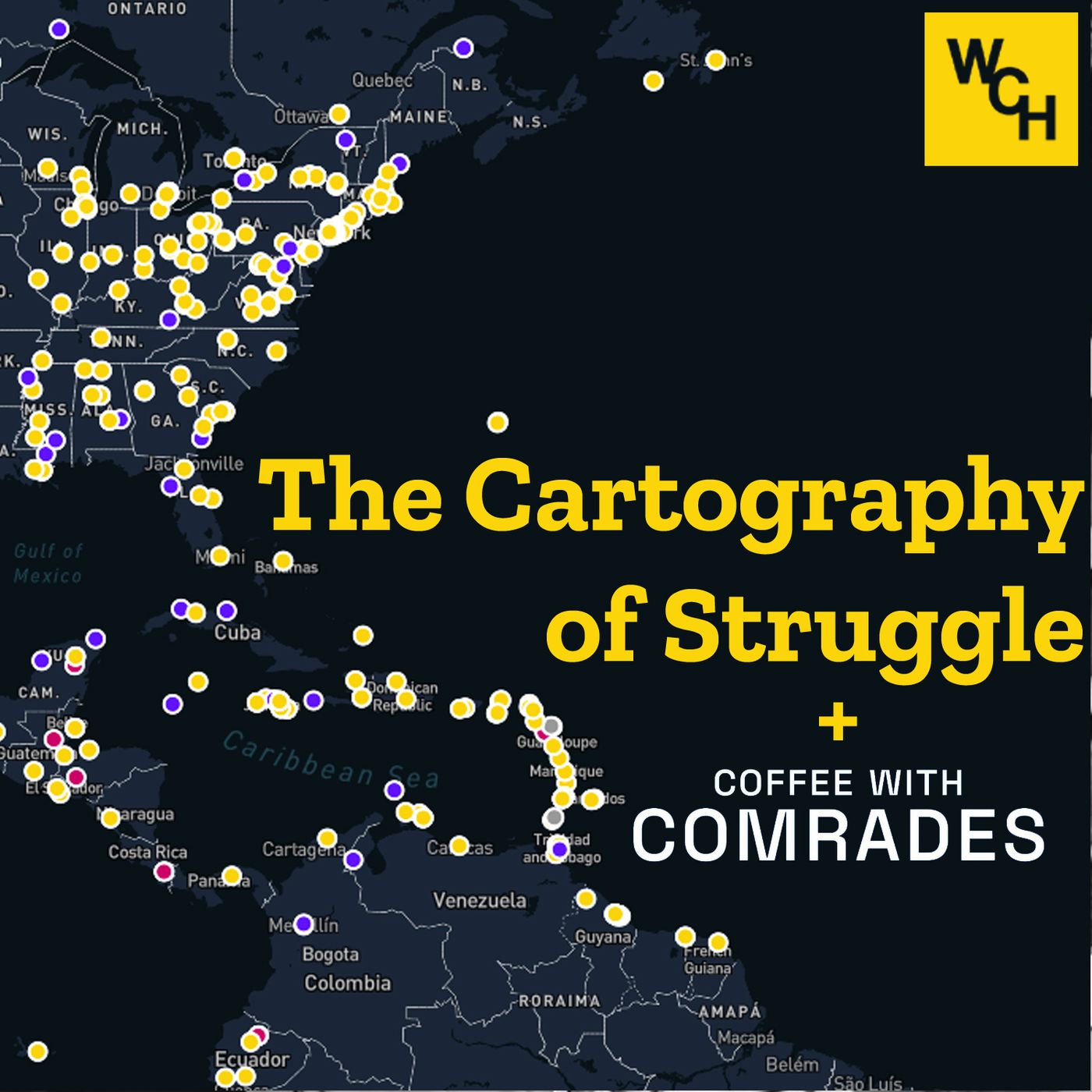
E71: Working Class History Map, with Coffee with Comrades
We chat with Pearson from the Coffee with Comrades podcast about our new web apps: the Working Class History Map and Stories app. This episode has been timed to coincide with the public launch of our web apps on January 31.Our podcast is brought to you by our patreon supporters. Our supporters fund our work, and in return get exclusive early access to podcast episodes, bonus episodes, free and discounted merchandise and other content. Join us or find out more at patreon.com/workingclasshistoryIn this episode, we talk about why we started the mapping project, what it’s about, how people can use it, and about different ways of interacting with people’s history. We also talk about how it differs from any other radical history mapping project.Check out the Map at map.workingclasshistory.comCheck out the Stories app at stories.workingclasshistory.comThere is an additional bonus episode with Pearson speaking about their experiences using the map on a trip to London. Coming later today exclusively for our patreon supporters.If you enjoy it, make sure to check out Coffee with Comrades, who are also supported by patreon. Connect with them here: Web: https://coffeewithcomrades.com/Patreon: http://www.patreon.com/coffeewithcomradesTwitter: http://twitter.com/coffeewcomradesAcknowledgementsThanks to our patreon supporters for making this podcast possible.Episode produced by Coffee with Comrades, additional editingby Jesse FrenchOur theme tune is Bella Ciao, thanks for permission to use it from Dischi del Sole. You can purchase it here or stream it here.Become a supporter of this podcast: https://www.spreaker.com/podcast/working-class-history--5711490/support.
55:0431/01/2023
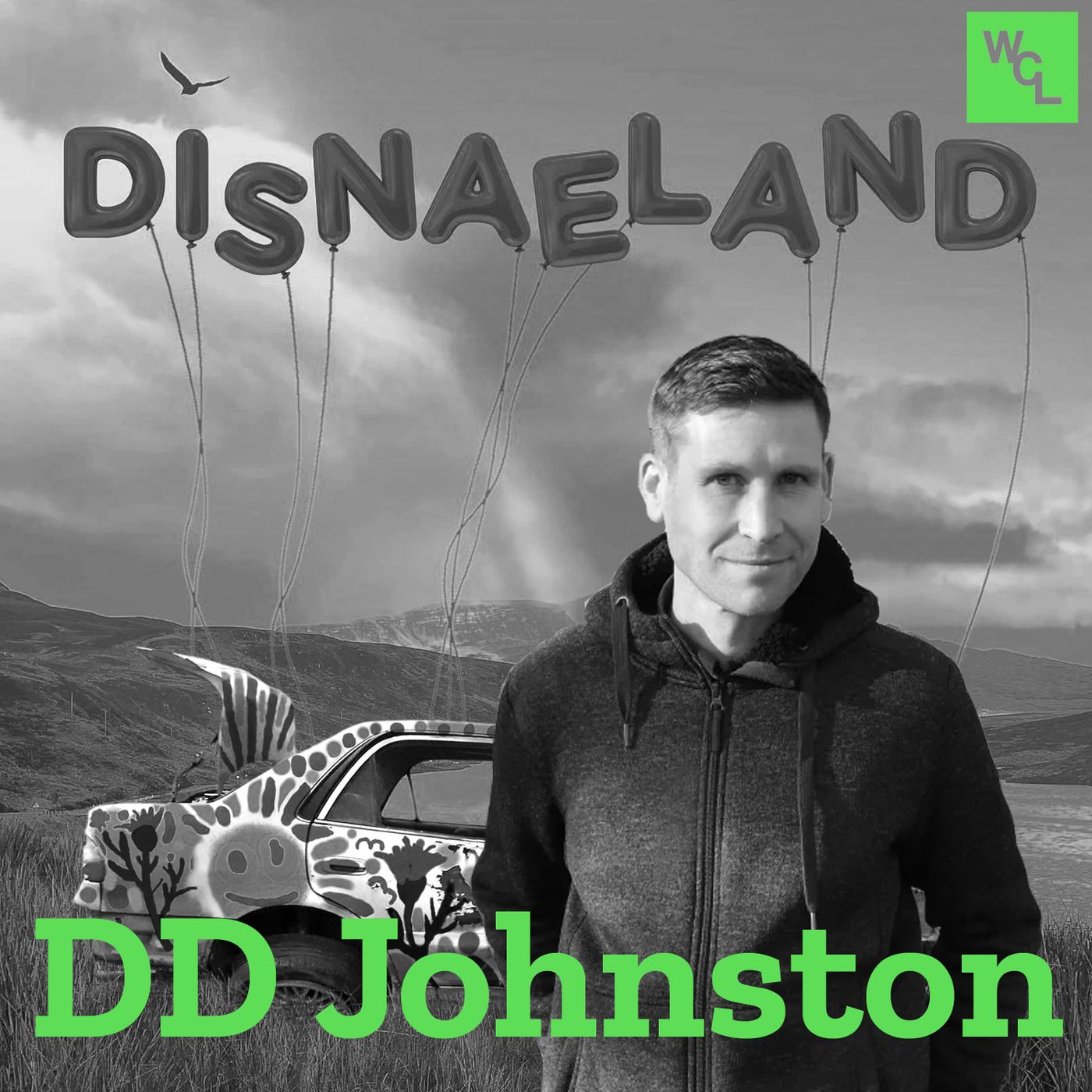
WCL6: DD Johnston's proletarian apocalypse, part 2
Concluding part of our double-episode in conversation with author, DD Johnston, about his new novel, Disnaeland.In this part, Darren discusses the novel’s relationship to the Scots language, the apocalyptic prophecies of radical, pre-Enlightenment Christianity, and his focus on mutual aid as a response to disaster. Darren also performs two further readings from the novel.Full information, sources, further reading, acknowledgements and eventually a transcript on the webpage for this episode: https://workingclasshistory.com/podcast/wcl-5-6-dd-johnstons-proletarian-apocalypse/Get books mentioned in this episodePeace, Love and Petrol Bombs: https://bookshop.org/a/80203/9781849350617Disnaeland: https://uk.bookshop.org/books/disnaeland/9781909954533AcknowledgmentsOur theme tune is Bella Ciao, thanks for permission to use it from Dischi del Sole. You can purchase it here: http://www.alabianca.it/en/store/bravo-records-en/le-canzoni-di-bella-ciao-aa-vv/Become a supporter of this podcast: https://www.spreaker.com/podcast/working-class-history--5711490/support.
32:3613/12/2022

WCL5: DD Johnston's proletarian apocalypse, part 1
The first of a two-part episode, Working Class Literature speak to DD Johnston about his new novel, Disnaeland, about a working-class Scottish community's response to societal collapse. We also discuss his previous novels and his participation in McDonald's Workers' Resistance, a radical collective of angry employees at the world's biggest fast food chain.Darren also reads passages from Disnaeland and his first novel, Peace, Love and Petrol Bombs.Full information, sources, further reading, acknowledgements and eventually a transcript on the webpage for this episode: https://workingclasshistory.com/podcast/wcl-5-6-dd-johnstons-proletarian-apocalypse/Get books mentioned in this episodePeace, Love and Petrol Bombs: https://bookshop.org/a/80203/9781849350617Disnaeland: https://uk.bookshop.org/books/disnaeland/9781909954533AcknowledgmentsOur theme tune is Bella Ciao, thanks for permission to use it from Dischi del Sole. You can purchase it here: http://www.alabianca.it/en/store/bravo-records-en/le-canzoni-di-bella-ciao-aa-vv/Become a supporter of this podcast: https://www.spreaker.com/podcast/working-class-history--5711490/support.
48:2606/12/2022
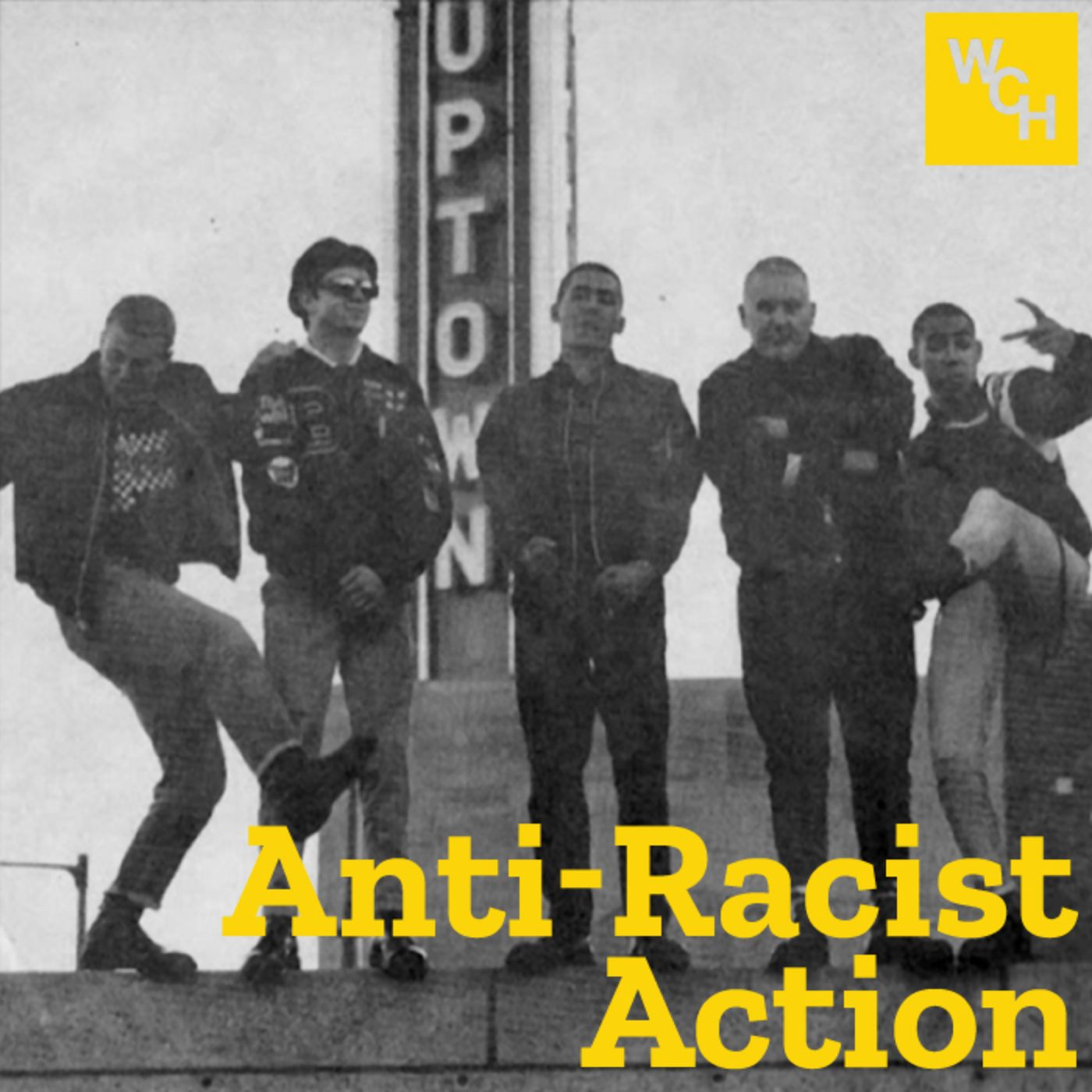
E49: Anti-Racist Action in Minneapolis
Rerelease of our episode 49 about Anti-Racist Action in Minneapolis, because we are currently trying to co-publish a book, We Go Where They Go: The Story of Anti-Racist Action, which is the definitive history of the group across the US. To fund its publication, we are currently running a Kickstarter campaign so please do check it out here, and support it by pre-ordering your copy at a great discount with lots of other great rewards.Our podcast is brought to you by our patreon supporters. Our supporters fund our work, and in return get exclusive early access to podcast episodes, bonus episodes, free and discounted merchandise and other content. Join us or find out more at https://patreon.com/workingclasshistory Anti-Racist Action (ARA) started in Minneapolis and is a predecessor to the crews often now called antifa. ARA started in 1987 with a multiracial group of teenage skinheads who fought the rising white power movement. It grew into a network of groups in at least 120 towns and cities across the US and Canada. ARA’s first principle was: “We go where they go. Never let the Nazis have the streets.” They eventually applied that not only to white power organising, but to homophobic and anti-abortion organizing, and to police violence, which they saw as all connected. Producer and host Anna Stitt tells the story of the group in Minneapolis through vivid first-person accounts, archival audio, and music from the era. It starts under the railroad tracks in Uptown, Minneapolis and traces a movement that continues to shape the US to this day. Learn about the group across the US in the forthcoming book, We Go Where They Go, which you can preorder from our Kickstarter here: https://www.kickstarter.com/projects/wrkclasshistory/we-go-where-they-go-the-story-of-anti-racist-actionMore information about this episode, photos, full acknowledgements and a transcript here on our website: https://workingclasshistory.com/2021/01/11/e49-anti-racist-action-in-minneapolis/ Listen to our exclusive bonus episode, where we discussed the topic further with Anna, and listen to more tape from participants about their early lives, political backgrounds and more on patreon here: https://www.patreon.com/posts/e49-1-anti-bonus-46081746Become a supporter of this podcast: https://www.spreaker.com/podcast/working-class-history--5711490/support.
56:1813/10/2022
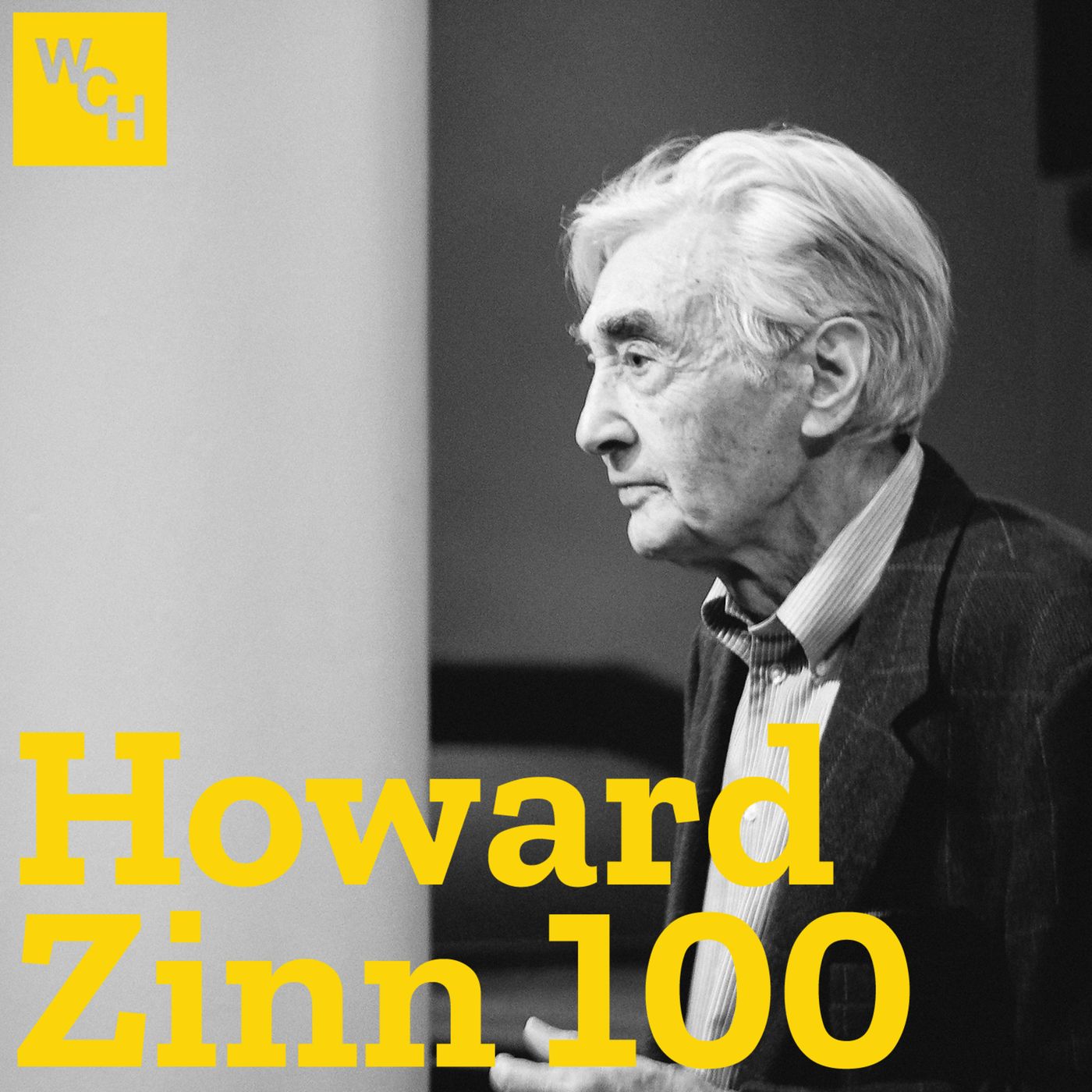
E70: Howard Zinn 100, part 2
Second in a double podcast episode about the life and work of Howard Zinn, historian, World War II veteran and activist, in his own words, 100 years since his birth.Our podcast is brought to you by our patreon supporters. Our supporters fund our work, and in return get exclusive early access to podcast episodes, bonus episodes, free and discounted merchandise and other content. Join us or find out more at patreon.com/workingclasshistoryYou can listen to our podcast on the below links, or on any major podcast app. Links to a few below.Howard Zinn, author of A People’s History of the United States and other texts, was one of the most influential historians in the US in the 20th-century, inspiring a generation to study history from below, including us. Born in New York in August 1922, we are releasing these episodes for the centenary of his birth, as part of a series of Howard Zinn 100 events. In these episodes, Zinn tells the story of his life, his activism, his ideas and his work in his own words, in what was one of his last, if not the last, interview before his sudden death in 2010. This little-known interview was conducted by Sasha Lilley, and excerpts from it are used with permission of Lilley and PM Press.A DVD video of the full interview is available here in our online store: https://shop.workingclasshistory.com/products/theory-and-practice-conversations-with-noam-chomsky-and-howard-zinn-dvdGet A People's History of the United States from an independent bookstore here: https://bookshop.org/a/80203/9780062397348Get the rest of the People's History series here from an independent bookstore: https://bookshop.org/lists/people-s-history-seriesFull show notes, sources acknowledgements and a transcript on the webpage for this episode here: https://workingclasshistory.com/podcast/e69-70-howard-zinn-100/Become a supporter of this podcast: https://www.spreaker.com/podcast/working-class-history--5711490/support.
42:0229/08/2022

E69: Howard Zinn 100, part 1
First in a double podcast episode about the life and work of Howard Zinn, historian, World War II veteran and activist, in his own words, 100 years since his birth.Our podcast is brought to you by our patreon supporters. Our supporters fund our work, and in return get exclusive early access to podcast episodes, bonus episodes, free and discounted merchandise and other content. Join us or find out more at patreon.com/workingclasshistoryYou can listen to our podcast on the below links, or on any major podcast app. Links to a few below.Howard Zinn, author of A People’s History of the United States and other texts, was one of the most influential historians in the US in the 20th-century, inspiring a generation to study history from below, including us. Born in New York in August 1922, we are releasing these episodes for the centenary of his birth, as part of a series of Howard Zinn 100 events. In these episodes, Zinn tells the story of his life, his activism, his ideas and his work in his own words, in what was one of his last, if not the last, interview before his sudden death in 2010. This little-known interview was conducted by Sasha Lilley, and excerpts from it are used with permission of Lilley and PM Press.A DVD video of the full interview is available here in our online store: https://shop.workingclasshistory.com/products/theory-and-practice-conversations-with-noam-chomsky-and-howard-zinn-dvdGet A People's History of the United States from an independent bookstore here: https://bookshop.org/a/80203/9780062397348Get the rest of the People's History series here from an independent bookstore: https://bookshop.org/lists/people-s-history-seriesFull show notes, sources acknowledgements and a transcript on the webpage for this episode here: https://workingclasshistory.com/podcast/e69-70-howard-zinn-100/Become a supporter of this podcast: https://www.spreaker.com/podcast/working-class-history--5711490/support.
39:5617/08/2022
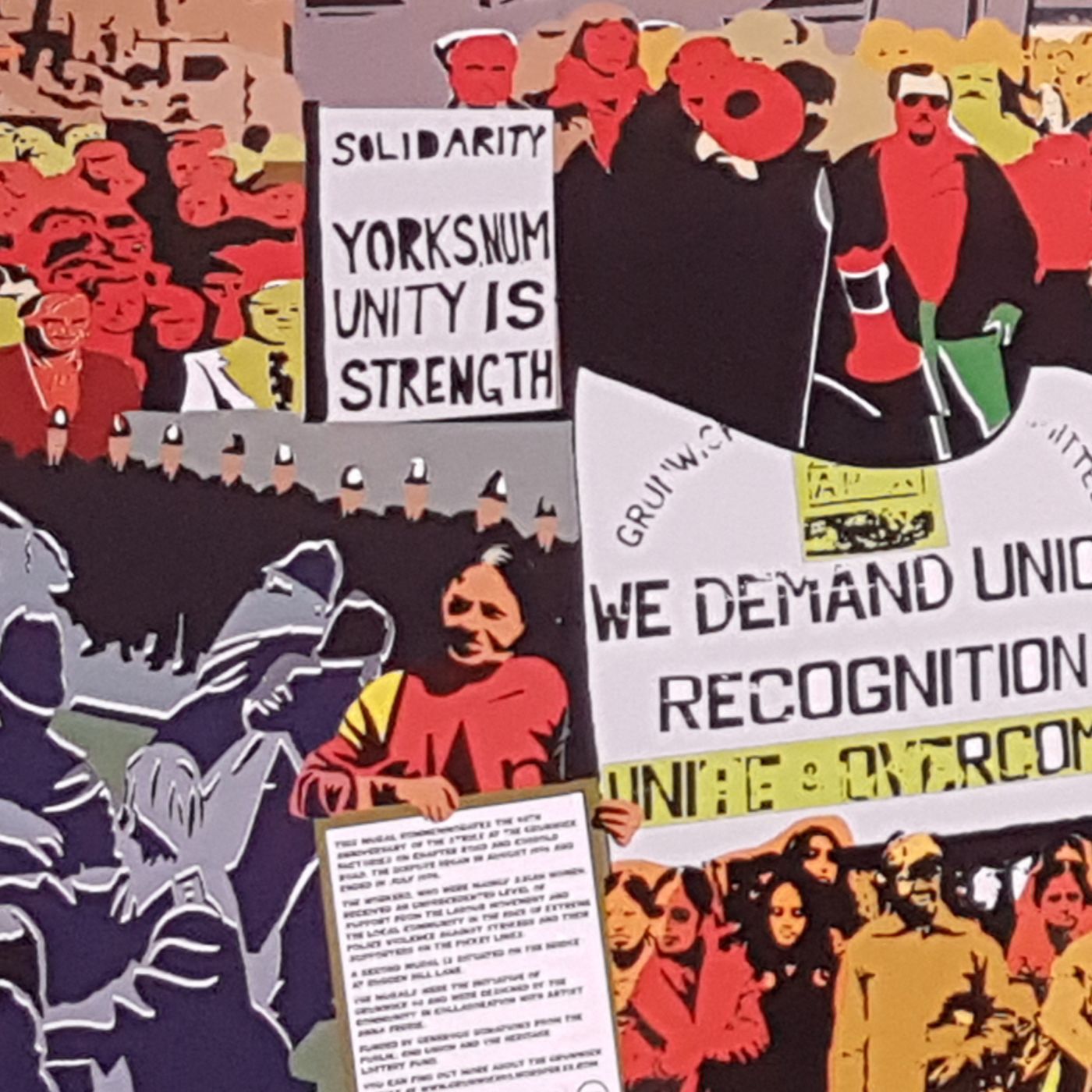
E68: The Grunwick strike, part 2
Concluding part of our double podcast episode about the iconic strike of mostly East African Asian women workers at the Grunwick photo processing plant in London in 1976-8. Featuring Amrit Wilson, Jayaben Desai and Colum Maloney, who took part in the dispute, and Sujata, chair of the Grunwick 40 group.Our podcast is brought to you by our patreon supporters. Our supporters fund our work, and in return get exclusive early access to podcast episodes, bonus episodes, free and discounted merchandise and other content. Join us or find out more at patreon.com/workingclasshistoryYou can listen to our podcast on the below links, or on any major podcast app. Links to a few below.This second part covers scope of the dispute, the role of police, the media and the trade unions, how the dispute concluded and its legacy and lessons for today.Full show notes and acknowledgements, as well as a transcript, on the webpage for this episode: https://workingclasshistory.com/podcast/grunwick-strike-1976/Become a supporter of this podcast: https://www.spreaker.com/podcast/working-class-history--5711490/support.
46:3310/08/2022
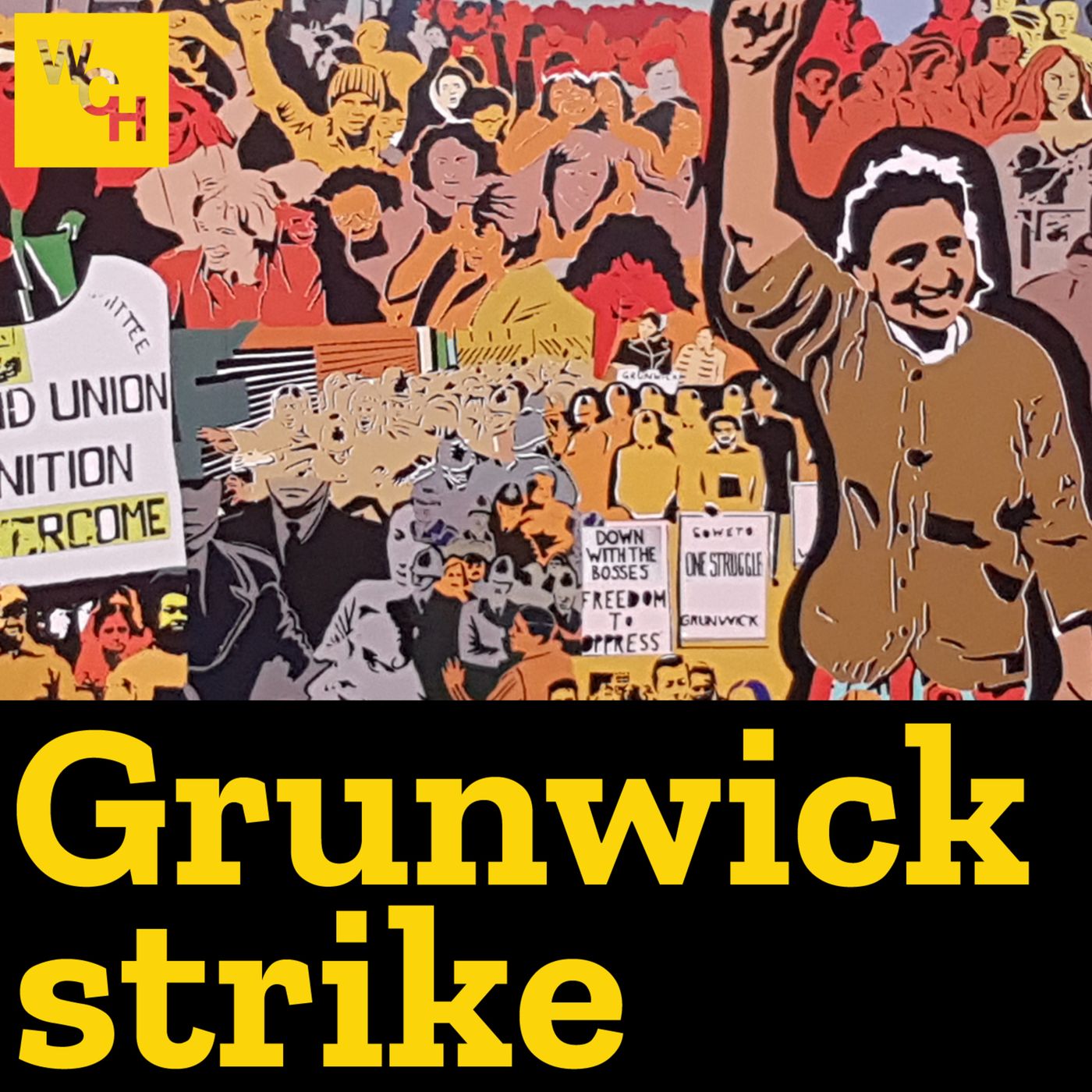
E67: The Grunwick strike, part 1
Double podcast episode about the iconic strike of mostly East African Asian women workers at the Grunwick photo processing plant in London in 1976-8. Featuring Amrit Wilson, Jayaben Desai and Colum Maloney, who took part in the dispute, and Sujata, chair of the Grunwick 40 group.Our podcast is brought to you by our patreon supporters. Our supporters fund our work, and in return get exclusive early access to podcast episodes, bonus episodes, free and discounted merchandise and other content. Join us or find out more at patreon.com/workingclasshistoryYou can listen to our podcast on the below links, or on any major podcast app. Links to a few below.This is an improved, extended and partially re-recorded version of our first ever podcast episode. We have added more audio clips from other participants in the dispute and added narrative for additional detail, context and to tell the story in a more cohesive manner. Whether you listened to the original episode or not, we hope you enjoy itThis first part covers the background to the dispute, how the strike began and developed. Full show notes and acknowledgements, as well as a transcript, on the webpage for this episode: https://workingclasshistory.com/podcast/grunwick-strike-1976/Become a supporter of this podcast: https://www.spreaker.com/podcast/working-class-history--5711490/support.
43:4103/08/2022
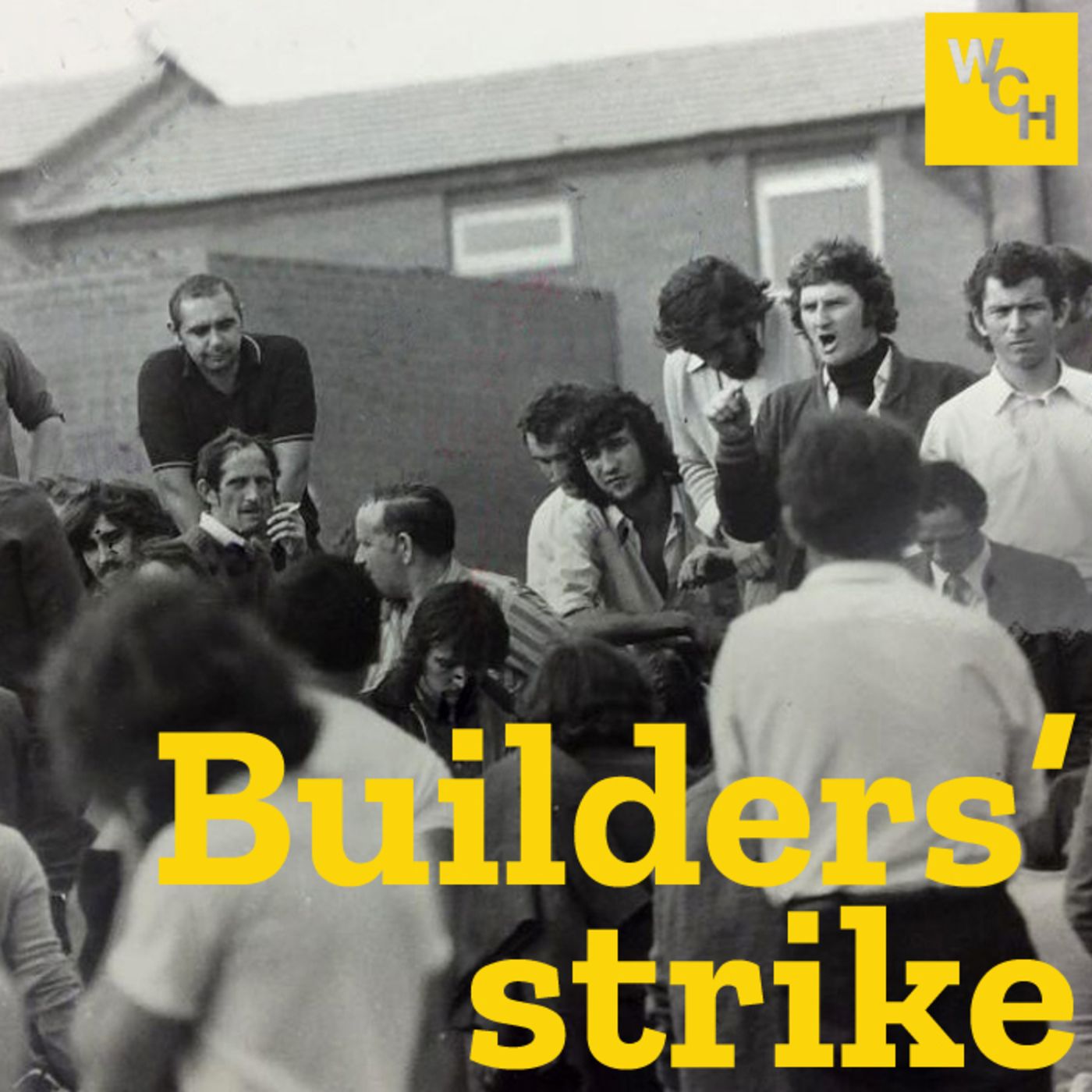
E66: Building workers’ strike w/ Ricky Tomlinson, part 2
Part 2 of our double-podcast episode to commemorate the 50th anniversary of the 1972 building workers' strike. In this episode, we speak to two participants in the strike - Tony O'Brien and the actor, Ricky Tomlinson - about how the strike ended, the framing of the Shrewsbury 24, Ricky’s experiences in prison, blacklisting, and the legacies of the 1972 strike.Full acknowledgements, photos, sources, more information and eventually a transcript on the homepage for this double episode: https://workingclasshistory.com/podcast/e65-66-building-workers-strike-w-ricky-tomlinson/Become a supporter of this podcast: https://www.spreaker.com/podcast/working-class-history--5711490/support.
38:0324/07/2022
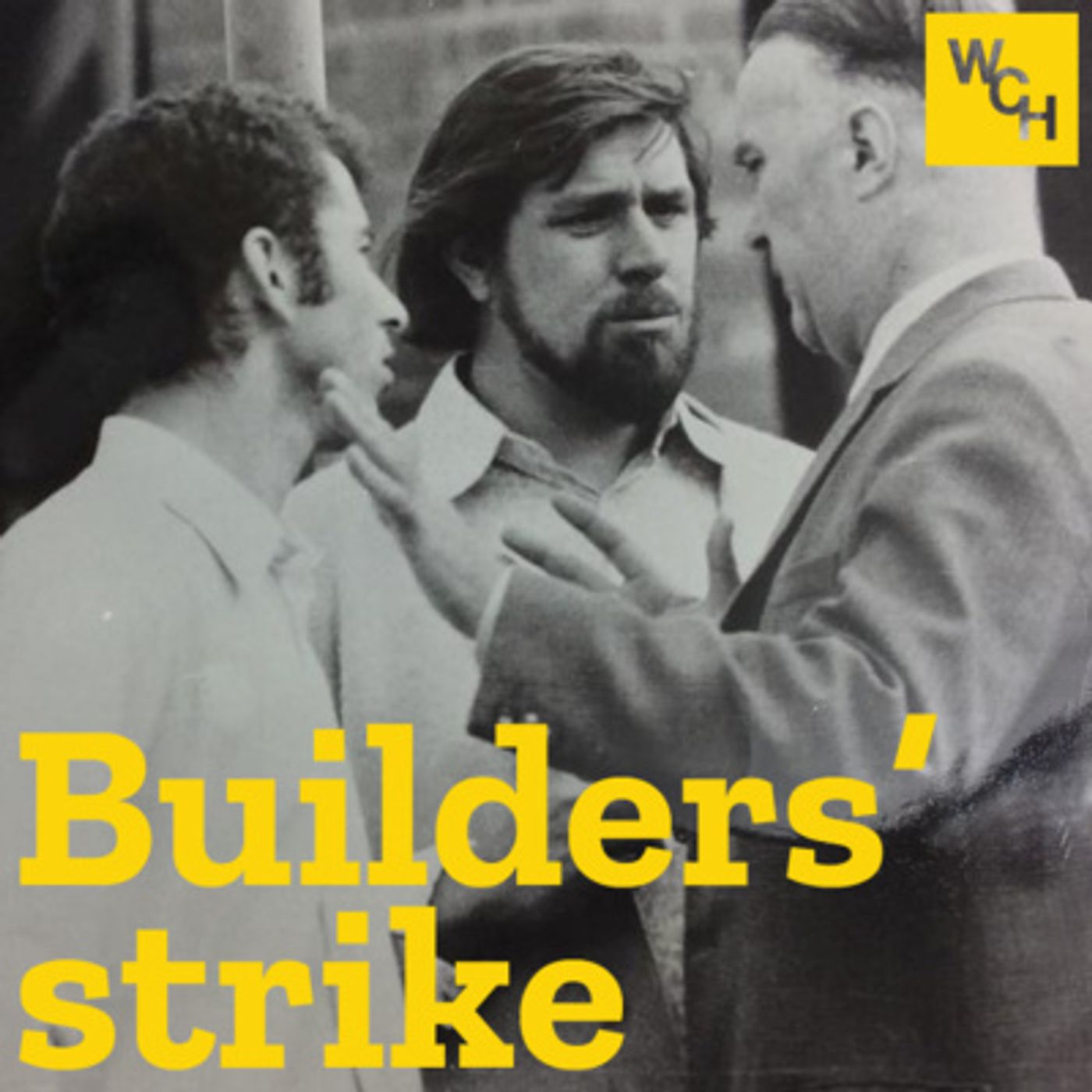
E65: Building workers’ strike w/ Ricky Tomlinson, part 1
Part 1 of our double-podcast episode to commemorate the 50th anniversary of the 1972 building workers' strike. In this episode, we speak to two participants in the strike - Tony O'Brien and the actor, Ricky Tomlinson - who talk about conditions in the building industry, how the strike started, and the flying pickets organised by the rank and file that spread it across the country.Full acknowledgements, photos, sources, more information and eventually a transcript on the homepage for this double episode: https://workingclasshistory.com/podcast/e65-66-building-workers-strike-w-ricky-tomlinson/Become a supporter of this podcast: https://www.spreaker.com/podcast/working-class-history--5711490/support.
35:2212/07/2022
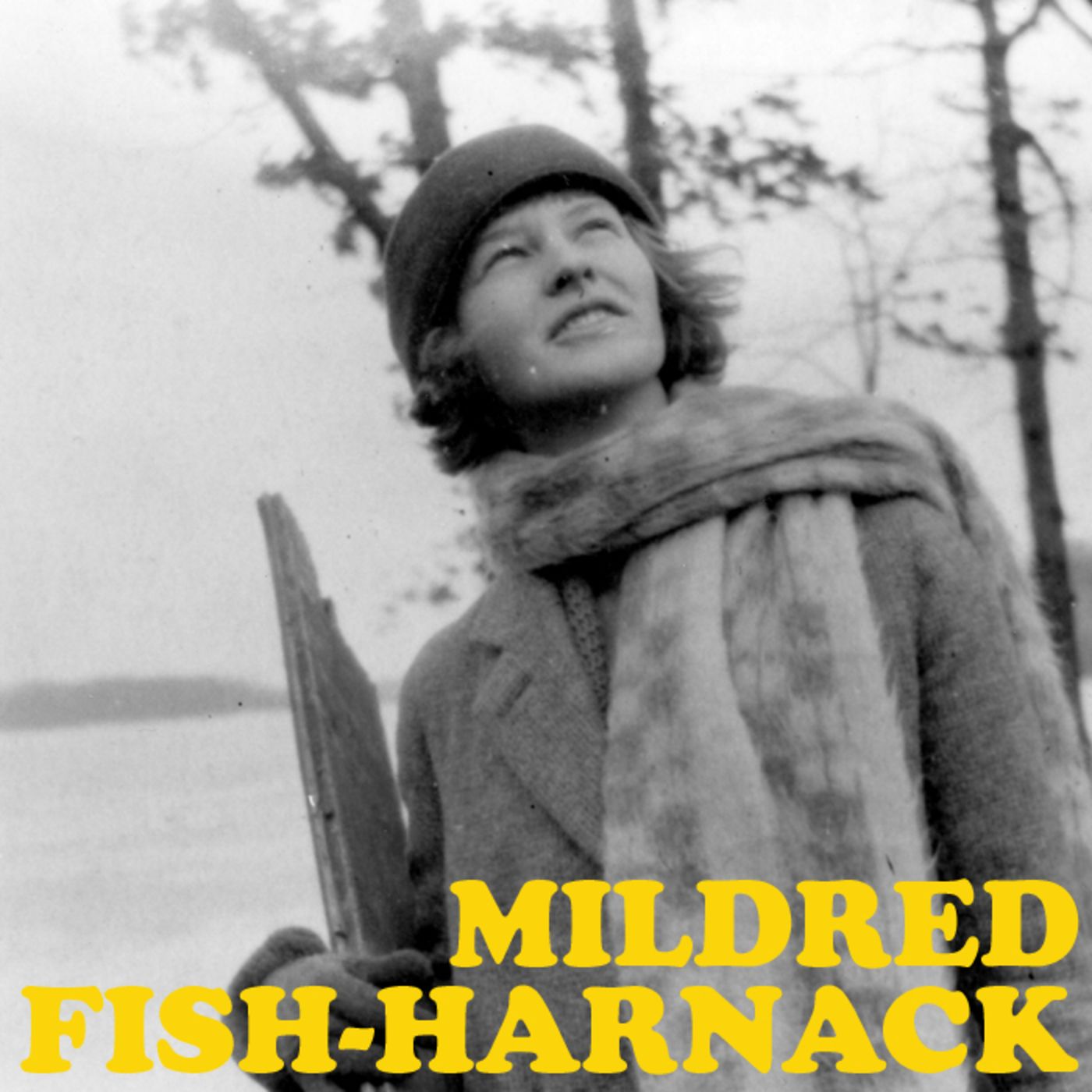
E64: Mildred Fish-Harnack, part 2
Concluding part of our double podcast episode about Mildred Fish-Harnack, the US-born woman at the centre of the underground resistance to Nazism in Berlin during World War II. In conversation with Rebecca Donner, Mildred’s great great niece and author of All the Frequent Troubles of Our Days.Our podcast is brought to you by our patreon supporters. Our supporters fund our work, and in return get exclusive early access to podcast episodes, bonus episodes, free and discounted merchandise and other content. Join us or find out more at patreon.com/workingclasshistoryIn this part we cover a terrible blunder which transpired, repression, aftermath, the response of Allied powers, and the historical legacy.Get Mildred's book here: https://bookshop.org/a/80203/9780316561693Full acknowledgements, photos, sources, more information and eventually a transcript on the homepage for this double episode: https://workingclasshistory.com/podcast/e63-64-mildred-fish-harnack/AcknowledgementsThanks to our patreon supporters for making this podcast possible. Special thanks to Stone Lawson. Episode graphic courtesy of the Donner family. Our theme tune is Bella Ciao, thanks for permission to use it from Dischi del Sole. You can purchase it here. Or stream it here. This episode was edited by Jesse French.Become a supporter of this podcast: https://www.spreaker.com/podcast/working-class-history--5711490/support.
47:4229/04/2022
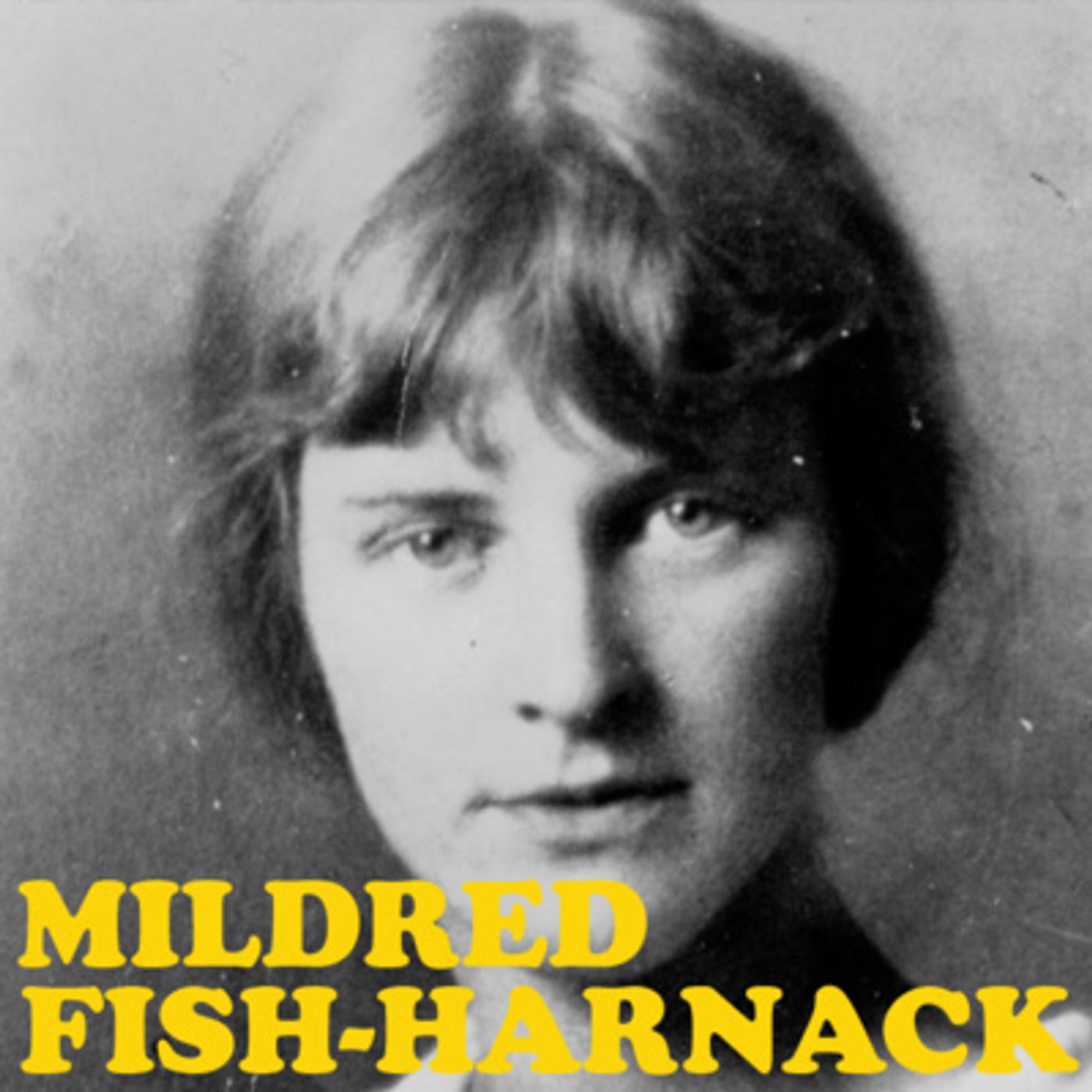
E63: Mildred Fish-Harnack, part 1
First in a double podcast episode about Mildred Fish-Harnack, the US-born woman at the centre of the underground resistance to Nazism in Berlin during World War II. In conversation with Rebecca Donner, Mildred’s great great niece and author of All the Frequent Troubles of Our Days.Our podcast is brought to you by our patreon supporters. Our supporters fund our work, and in return get exclusive early access to podcast episodes, bonus episodes, free and discounted merchandise and other content. For example, our supporters can listen to part 2 of this double episode now: https://www.patreon.com/posts/e64-mildred-fish-64573851Join us or find out more at patreon.com/workingclasshistoryIn this part we cover the background, Mildred’s early life, the Nazis’ rise to power, the resistance, and the beginnings of her involvement in international espionage.Get Mildred's book here: https://bookshop.org/a/80203/9780316561693Full acknowledgements, photos, sources, more information and eventually a transcript on the homepage for this double episode: https://workingclasshistory.com/podcast/e63-64-mildred-fish-harnack/AcknowledgementsThanks to our patreon supporters for making this podcast possible. Special thanks to Conor Canatsey, Shae, James, Ariel Gioia, Stone Lawson, and Fernando López-Ojeda.Episode graphic courtesy of the Donner family.Our theme tune is Bella Ciao, thanks for permission to use it from Dischi del Sole. You can purchase it here. Or stream it here.This episode was edited by Jesse French.Become a supporter of this podcast: https://www.spreaker.com/podcast/working-class-history--5711490/support.
40:2617/04/2022
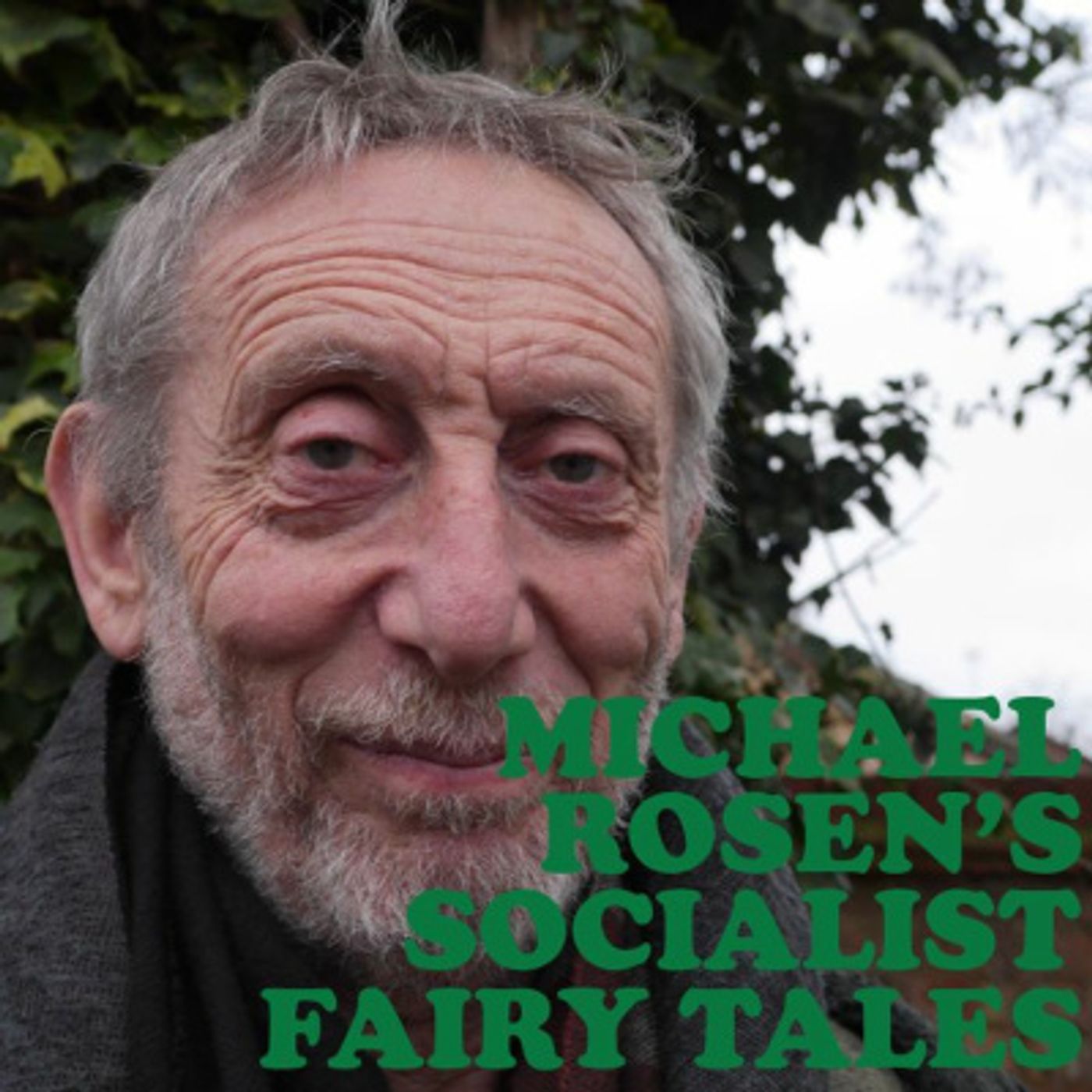
WCL E4: Michael Rosen's socialist fairy tales, part 2
Part 2 of our double-episode in which we talk to acclaimed author, poet and Professor of Children’s Literature, Michael Rosen, about his anthology, Workers’ Tales: Socialist Fairy Tales, Fables, and Allegories from Great Britain, which gathers together short stories from the labour and socialist press between 1880 and 1920.In this episode, Michael shows how popular children’s stories (like Wind in the Willows and Alice in Wonderland) are shot through with the political content of their adult authors. He also reads a story from his anthology by William Morris and explains how all culture, including children’s writing, contains within it elements of social contest.You can buy a copy of Michael's anthology here: https://bookshop.org/books/workers-tales-socialist-fairy-tales-fables-and-allegories-from-great-britain/9780691175348More info on the webpage for this episode: https://workingclasshistory.com/blog/wcl-e3-4-michael-rosens-socialist-fairy-tales/Become a supporter of this podcast: https://www.spreaker.com/podcast/working-class-history--5711490/support.
30:0630/03/2022
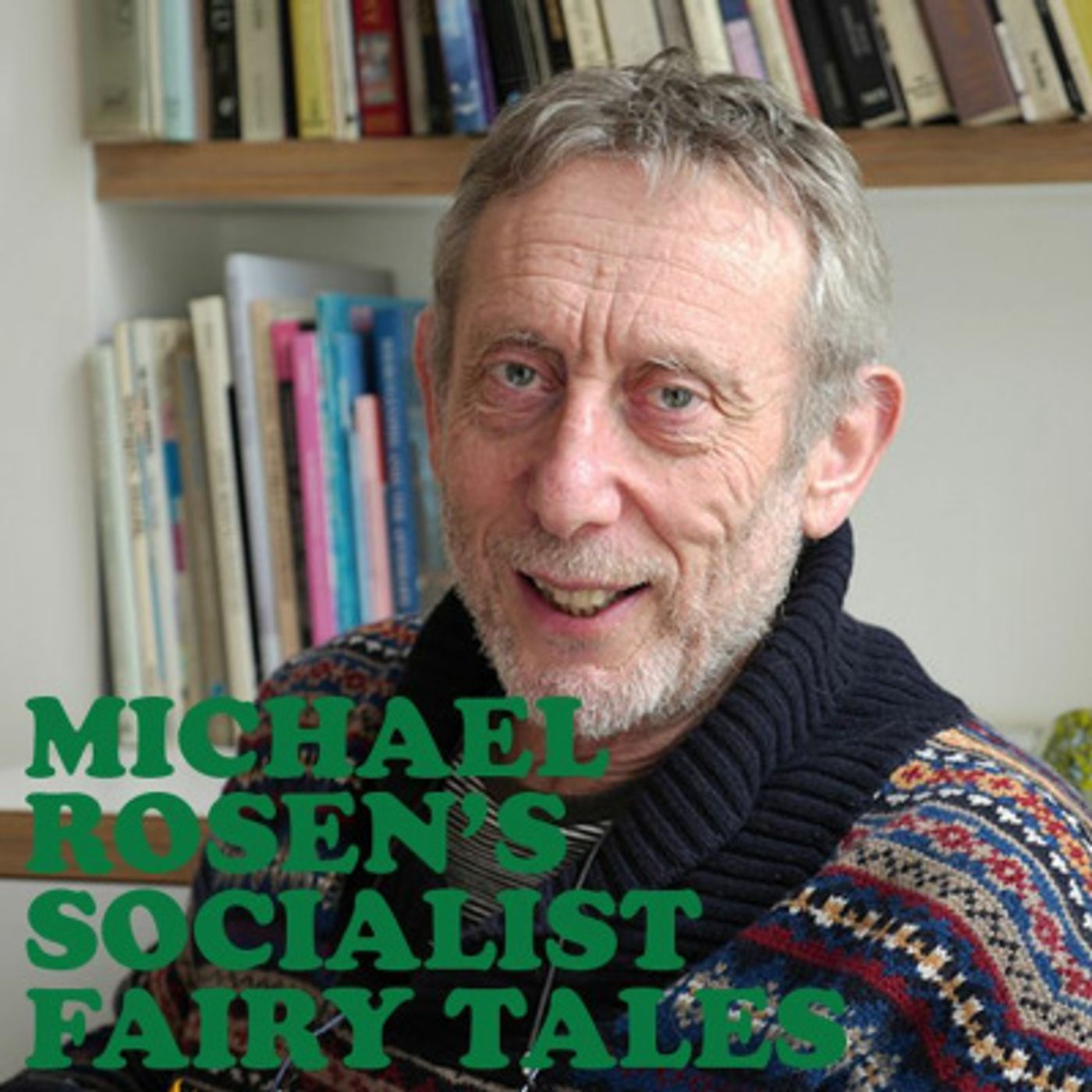
WCL E3: Michael Rosen's socialist fairy tales, part 1
A Working Class Literature podcast double-episode in which we talk to acclaimed author, poet and Professor of Children's Literature, Michael Rosen, about his anthology, Workers' Tales: Socialist Fairy Tales, Fables, and Allegories from Great Britain, which gathers together short stories from the labour and socialist press between 1880 and 1920.You can buy a copy of Michael's anthology here: https://bookshop.org/books/workers-tales-socialist-fairy-tales-fables-and-allegories-from-great-britain/9780691175348More info on the webpage for this episode: https://workingclasshistory.com/blog/wcl-e3-4-michael-rosens-socialist-fairy-tales/Become a supporter of this podcast: https://www.spreaker.com/podcast/working-class-history--5711490/support.
34:0617/03/2022
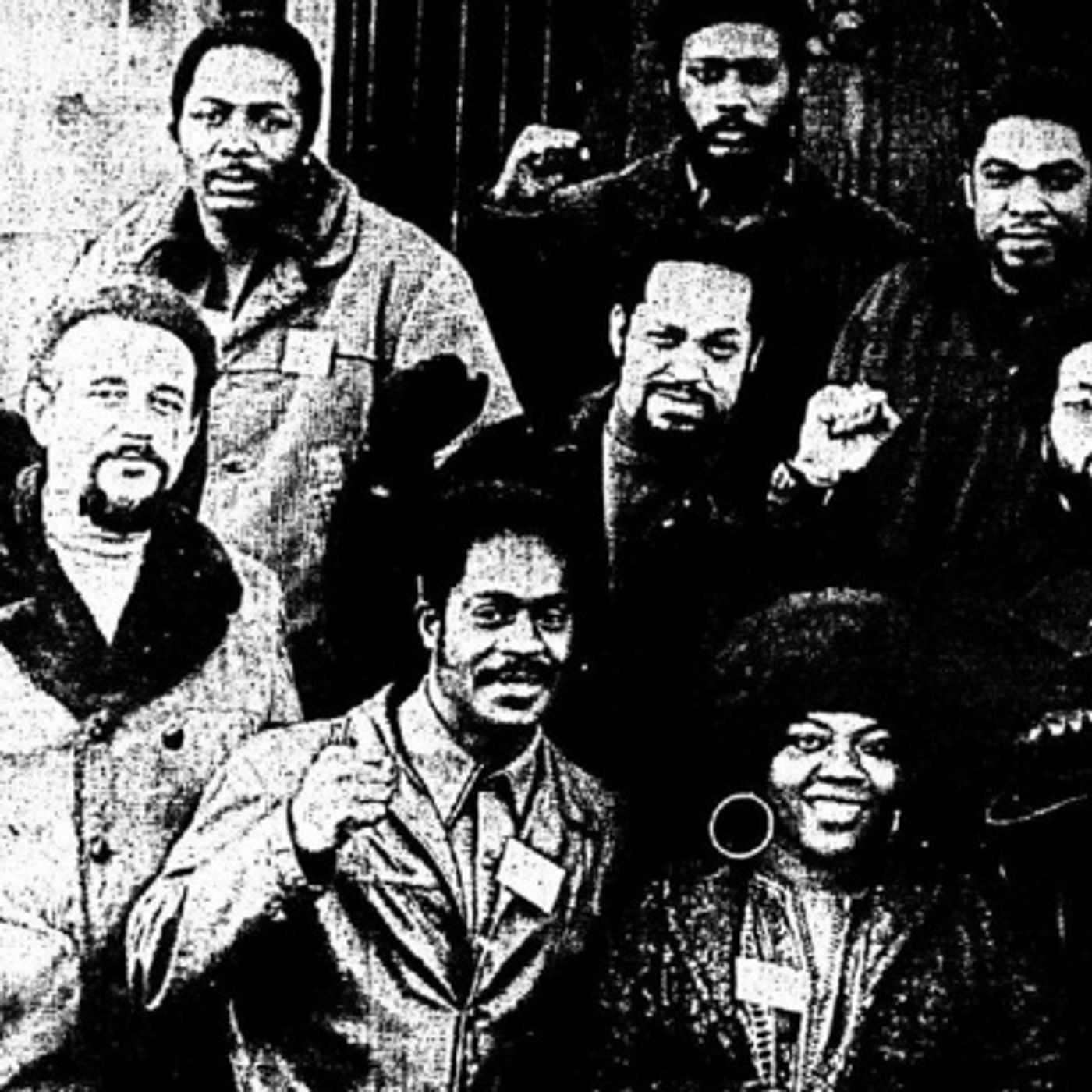
E62: League of Revolutionary Black Workers, part 2
Second of a double podcast episode about the League of Revolutionary Black Workers in Detroit in the late 60s/early 70s, in conversation with Herb Boyd, author of Black Detroit and former member of the group, and Dan Georgakas, author of Detroit I Do Mind Dying.This podcast is only possible because of support from our listeners on patreon. Join us and get access to exclusive content at https://patreon.com/workingclasshistoryThis is an improved, extended and partially re-recorded version of our podcast episode 12. We have added more audio clips from other members of the League, including General Baker, Mitch and Darryl “Waistline” Mitchell. We have also added narrative for additional detail, context and to tell the story in a more cohesive manner. Whether you listened to the original episode or not, we hope you enjoy it!Get hold of Dan and Herb's books on these links:– Dan Georgakas and Marvin Surkin, Detroit: I Do Mind Dying: A Study in Urban Revolution – https://bookshop.org/a/80203/9781608462216– Herb Boyd, Black Detroit: A People’s History of Self-Determination – https://bookshop.org/a/80203/9780062346636More information, sources, acknowledgements and more on the webpage for this episode: https://workingclasshistory.com/podcast/e61-the-league-of-revolutionary-black-workers-in-detroit/Become a supporter of this podcast: https://www.spreaker.com/podcast/working-class-history--5711490/support.
54:0907/03/2022
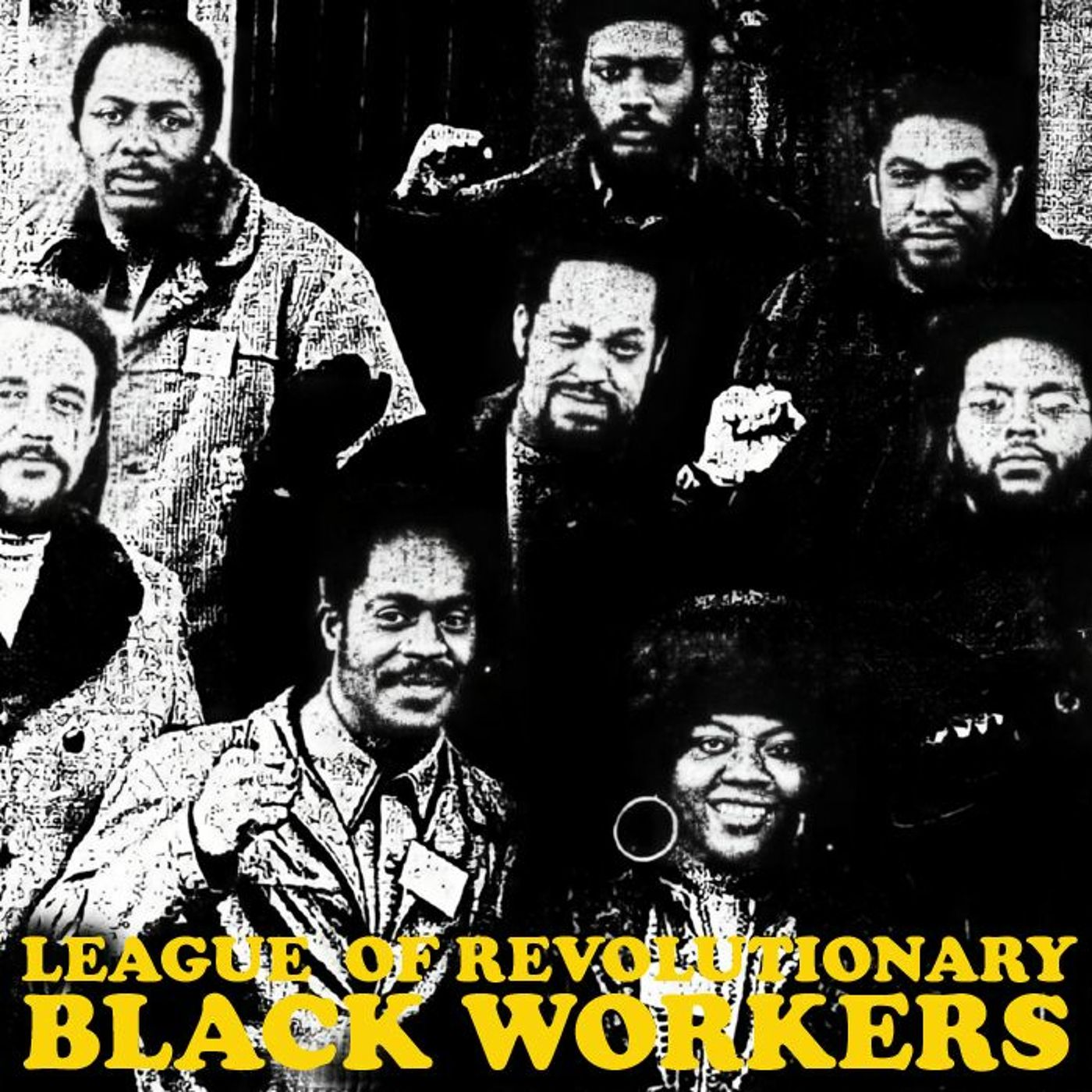
E61: The League of Revolutionary Black Workers, part 1
Double podcast episode about the League of Revolutionary Black Workers in Detroit in the late 60s/early 70s, in conversation with Herb Boyd, author of Black Detroit and former member of the group, and Dan Georgakas, author of Detroit I Do Mind Dying.This podcast is only possible because of support from our listeners on patreon. Join us and get access to exclusive content at https://patreon.com/workingclasshistoryThis is an improved, extended and partially re-recorded version of our podcast episode 12. We have added more audio clips from other members of the League, including General Baker, Mitch and Darryl “Waistline” Mitchell. We have also added narrative for additional detail, context and to tell the story in a more cohesive manner. Whether you listened to the original episode or not, we hope you enjoy it!Get hold of Dan and Herb's books on these links:– Dan Georgakas and Marvin Surkin, Detroit: I Do Mind Dying: A Study in Urban Revolution – https://bookshop.org/a/80203/9781608462216– Herb Boyd, Black Detroit: A People’s History of Self-Determination – https://bookshop.org/a/80203/9780062346636More information, sources, acknowledgements and more on the webpage for this episode: https://workingclasshistory.com/podcast/e61-the-league-of-revolutionary-black-workers-in-detroit/Become a supporter of this podcast: https://www.spreaker.com/podcast/working-class-history--5711490/support.
46:0024/02/2022
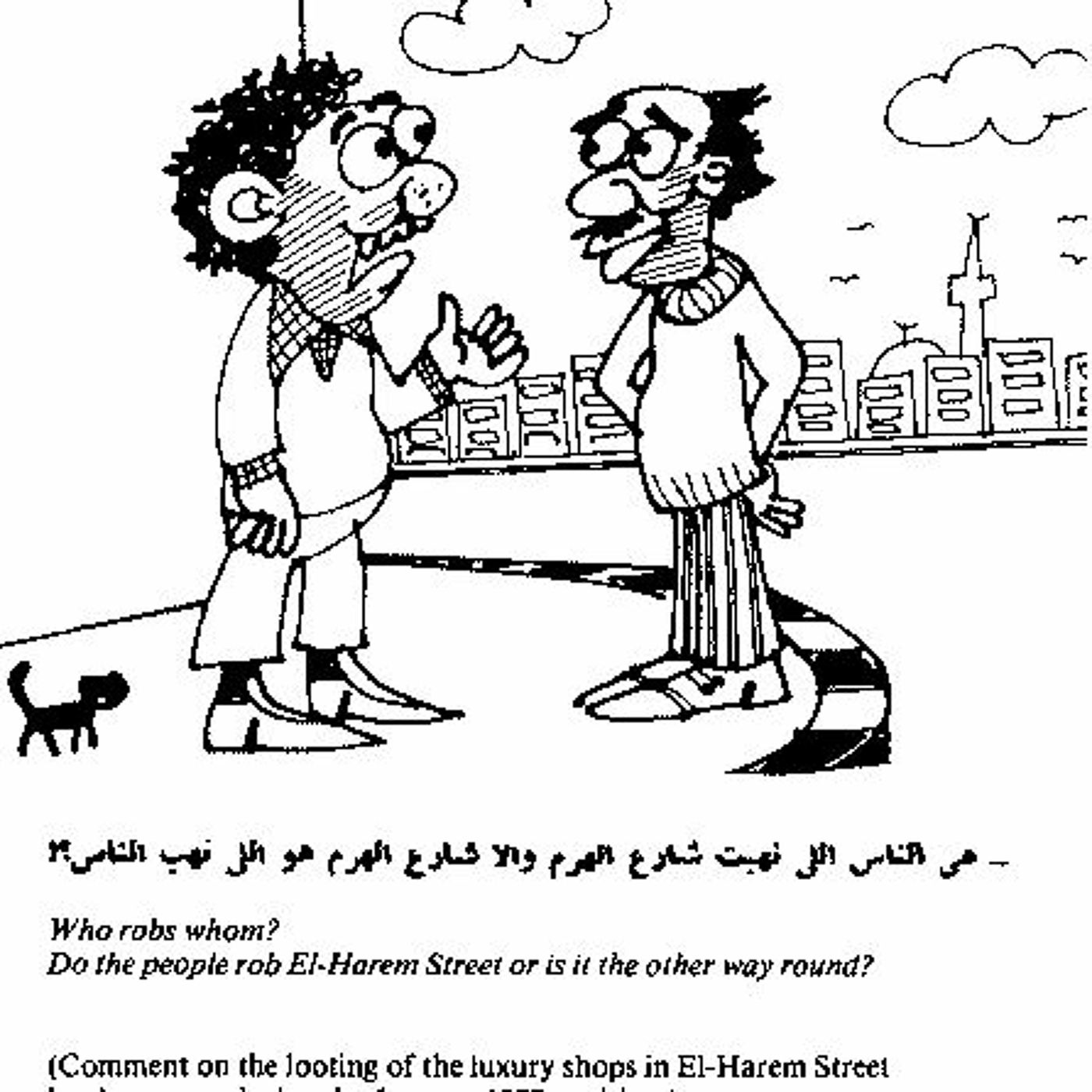
E60: The Bread Intifada, part 2
Concluding part of our double podcast episode on the 1977 Bread Intifada in Egypt. We speak with journalist and revolutionary socialist, Hossam el-Hamalawy, about the uprising and its significance today.Our podcast is brought to you by our patreon supporters. Our supporters fund our work, and in return get exclusive early access to podcast episodes, bonus episodes, free and discounted merchandise and other content. For example you can listen to part 2 of this double episode now. Join us or find out more at patreon.com/workingclasshistoryMusic used in this episode under fair use was “Build Your Palaces” by Sheikh Imam. Available to stream here. We attempted to find copyright holders but were unsuccessful; if anyone has any information about this, please email [email protected] more information on the Bread Intifada, reading Hossam’s 2001 Master’s thesis on the subject: https://arabawy.org/111742/1977/See also Lafif Lakhdar’s ‘The development of class struggle in Egypt’ in Khamsin: Journal of revolutionary socialists of the Middle-East, issue #5: https://libcom.org/library/development-class-struggle-egyptFull show notes, acknowledgements, sources, more information and eventually a transcript on the webpage for this episode: https://workingclasshistory.com/blog/e59-60-the-bread-intifada/Become a supporter of this podcast: https://www.spreaker.com/podcast/working-class-history--5711490/support.
39:0527/12/2021
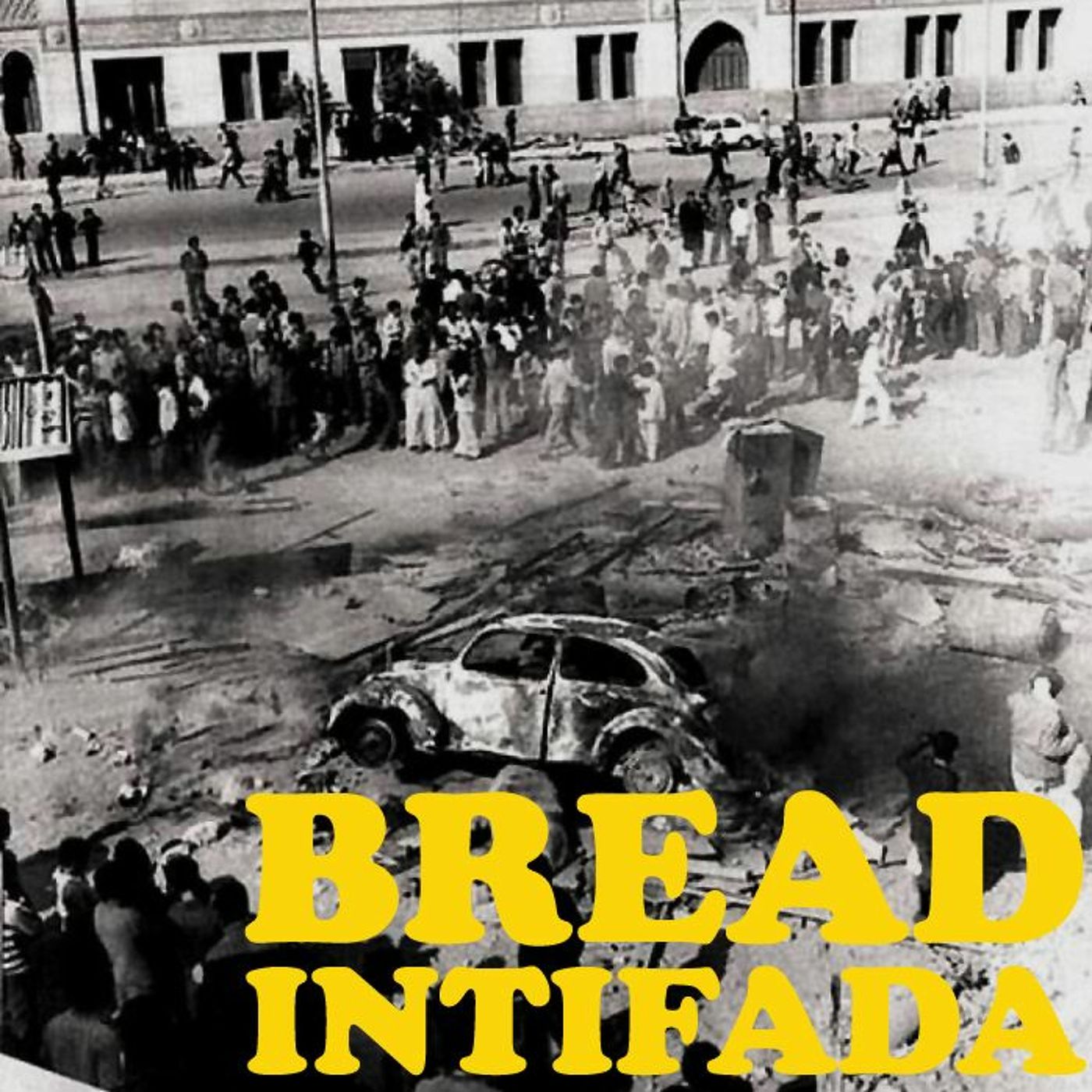
E59: The Bread Intifada, part 1
Part 1 of our double episode on the 1977 Bread Intifada in Egypt, in which hundreds of thousands of working-class Egyptians rose up against the government’s termination of food subsidies. We speak to Egyptian journalist and revolutionary socialist, Hossam el-Hamalawy, about the uprising, the decade of worker-student militancy leading up to it, and its relevance today.Our podcast is brought to you by our patreon supporters. Our supporters fund our work, and in return get exclusive early access to podcast episodes, bonus episodes, free and discounted merchandise and other content. For example you can listen to part 2 of this double episode now. Join us or find out more at patreon.com/workingclasshistoryMusic used in this episode under fair use was “Build Your Palaces” by Sheikh Imam. Available to stream here. We attempted to find copyright holders but were unsuccessful; if anyone has any information about this, please email [email protected] more information on the Bread Intifada, reading Hossam’s 2001 Master’s thesis on the subject: https://arabawy.org/111742/1977/See also Lafif Lakhdar’s ‘The development of class struggle in Egypt’ in Khamsin: Journal of revolutionary socialists of the Middle-East, issue #5: https://libcom.org/library/development-class-struggle-egyptFull acknowledgements, show notes, photos, sources and more information on the webpage for this episode here: https://workingclasshistory.com/podcast/e59-60-the-bread-intifada/Become a supporter of this podcast: https://www.spreaker.com/podcast/working-class-history--5711490/support.
27:3613/12/2021
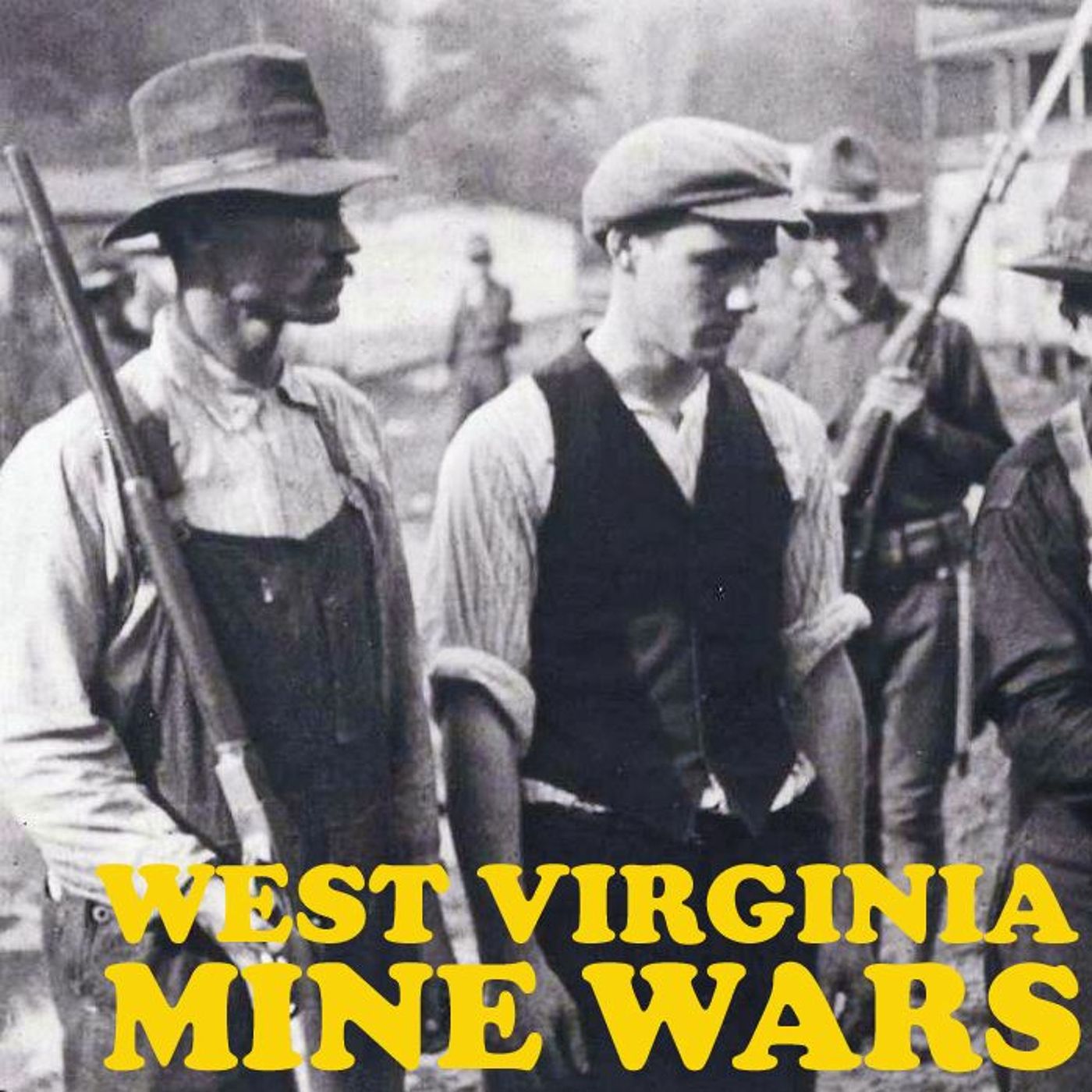
E58: West Virginia Mine Wars, part 2
Concluding part of a double podcast episode on the West Virginia mine wars 1902-1922. We speak with Catherine Moore and others from the West Virginia Mine Wars Museum, as well as some West Virginia teachers who had just been on strike about the conflicts, and how they are remembered today.Our podcast is brought to you by our patreon supporters. Our supporters fund our work, and in return get exclusive early access to podcast episodes, bonus episodes, free and discounted merchandise and other content. For example you can listen to part 2 of this double episode now. Join us or find out more at patreon.com/workingclasshistoryMusic used in these episodes is Which Side Are You On, by Florence Rees, performed by Tom Morello: The Night Watchman. Buy/stream it here: https://tommorellothenightwatchman.bandcamp.com/track/which-side-are-you-onAnd Solidarity Forever by Ralph Chaplin, performed by David Rovics.Learn more about the mine wars in these great books: https://shop.workingclasshistory.com/collections/all/west-virginia-mine-warsFull acknowledgements, show notes, photos, sources and more information on the webpage for this episode here: https://workingclasshistory.com/podcast/e57-west-virginia-mine-wars-1902-1922/Become a supporter of this podcast: https://www.spreaker.com/podcast/working-class-history--5711490/support.
33:1129/11/2021
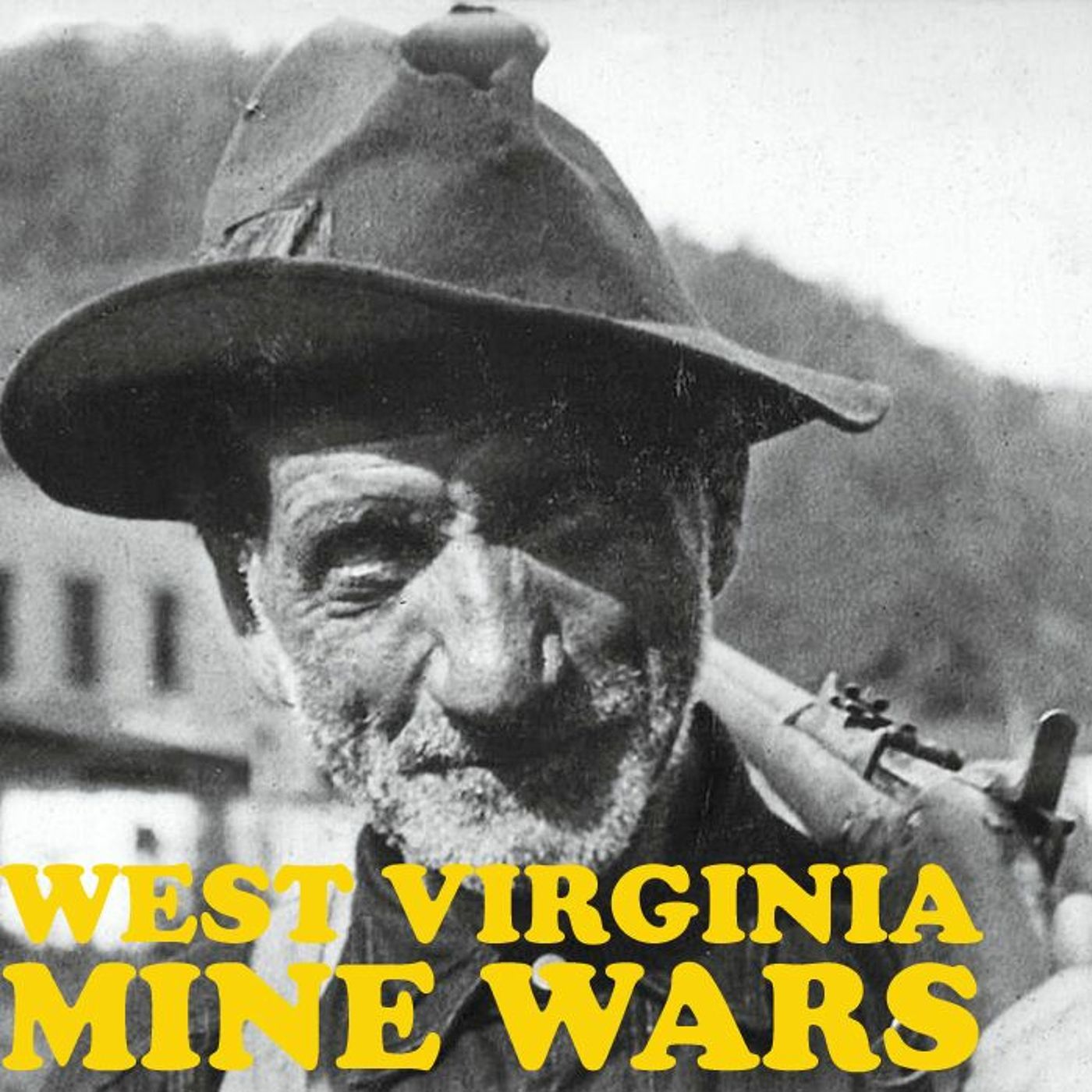
E57: West Virginia Mine Wars, part 1
Part 1 of a double podcast episode on the West Virginia mine wars 1902-1922. We speak with Catherine Moore and others from the West Virginia Mine Wars Museum, as well as some West Virginia teachers who had just been on strike about the conflicts, and how they are remembered today.Our podcast is brought to you by our patreon supporters. Our supporters fund our work, and in return get exclusive early access to podcast episodes, bonus episodes, free and discounted merchandise and other content. For example you can listen to part 2 of this double episode now. Join us or find out more at https://patreon.com/workingclasshistoryMusic used in these episodes is Which Side Are You On, by Florence Rees, performed by Tom Morello: The Night Watchman. Buy/stream it here: https://tommorellothenightwatchman.bandcamp.com/track/which-side-are-you-onAnd Solidarity Forever by Ralph Chaplin, performed by David Rovics.Learn more about the mine wars in these great books: https://shop.workingclasshistory.com/collections/all/west-virginia-mine-warsFull acknowledgements, show notes, photos, sources and more information on the webpage for this episode here: https://workingclasshistory.com/podcast/e57-west-virginia-mine-wars-1902-1922/Become a supporter of this podcast: https://www.spreaker.com/podcast/working-class-history--5711490/support.
37:5909/11/2021
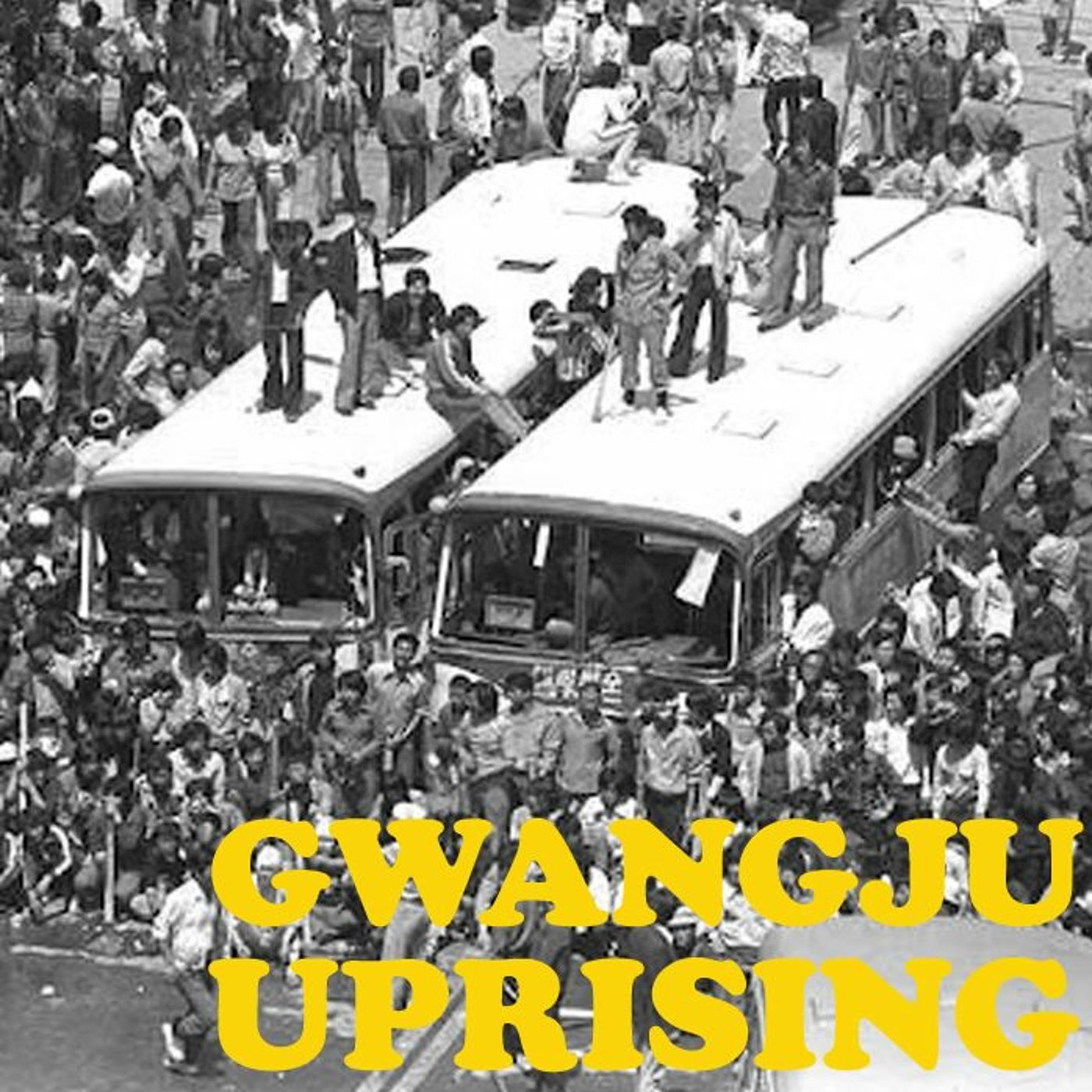
E56: Gwangju uprising, part 4
The final part of our four-part podcast miniseries about the May 18 uprising in Gwangju, South Korea, in 1980 against the US-backed military dictatorship of Chun Doo Hwan. We speak with Kim Yong Ho, David Dolinger and Jeon Yong Ho, who took part in the events, as well as researcher and lead translator of the excellent book, Gwangju Diary, Kap Su Seol.Our podcast is brought to you by our patreon supporters. Our supporters fund our work, and in return get exclusive early access to podcast episodes, bonus episodes, free and discounted merchandise and other content. For example patrons can listen to a new episode of the podcast as well as an exclusive bonus episode. Join us or find out more at https://patreon.com/workingclasshistoryThis week, we speak with our guests about the aftermath of the uprising, and its legacy in terms of later struggles, the restoration of democracy in 1987 and its repercussions today.See full information, acknowledgements, sources and a transcript here on our website: https://workingclasshistory.com/2021/06/29/e53-the-gwangju-uprising-1980/Become a supporter of this podcast: https://www.spreaker.com/podcast/working-class-history--5711490/support.
42:4125/10/2021
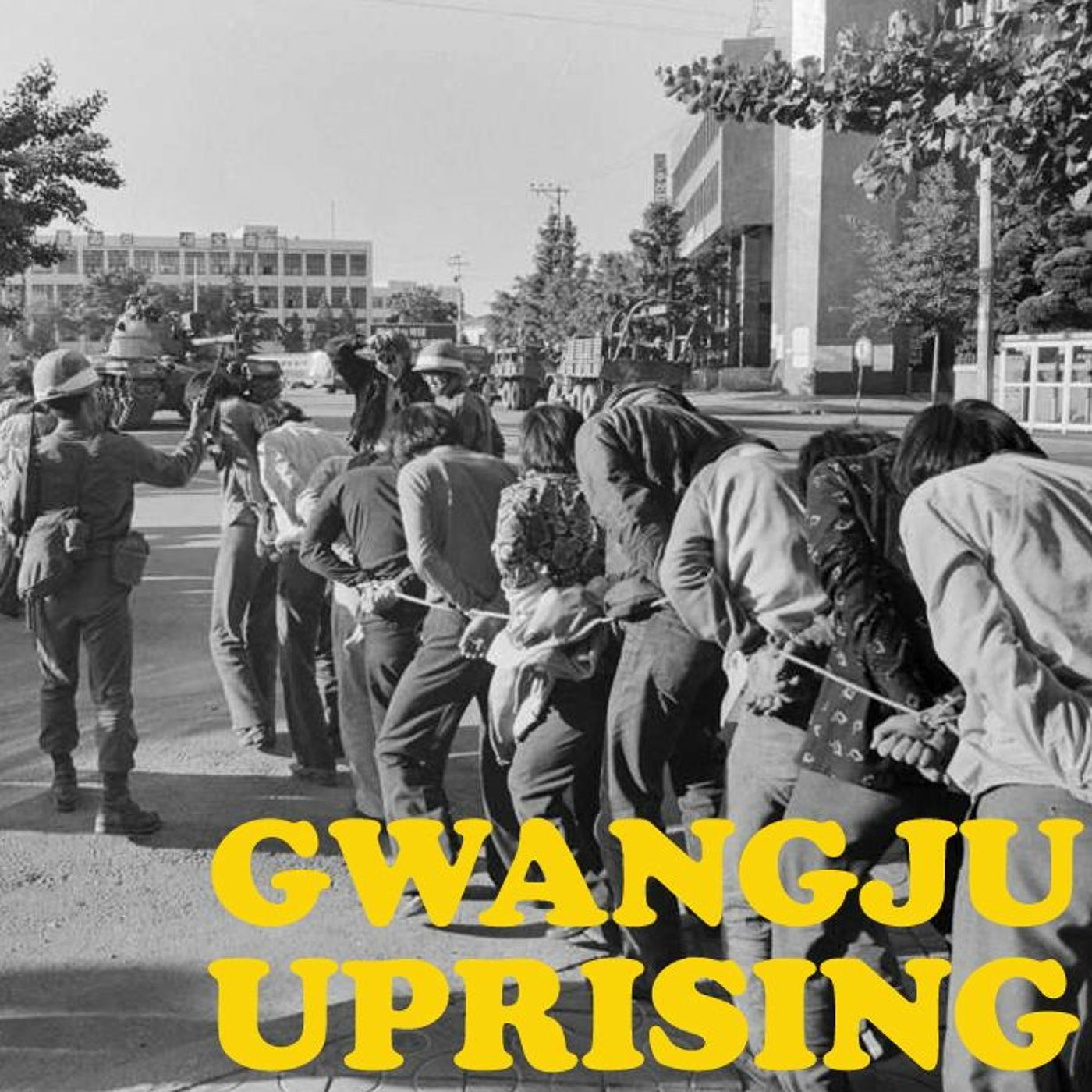
E55: Gwangju uprising, part 3
Part 3 of our four-part podcast miniseries about the May 18 uprising in Gwangju, South Korea, in 1980 against the US-backed military dictatorship of Chun Doo Hwan. We speak with Kim Yong Ho, David Dolinger and Jeon Yong Ho, who took part in the events, as well as researcher and lead translator of the excellent book, Gwangju Diary, Kap Su Seol.Our podcast is brought to you by our patreon supporters. Our supporters fund our work, and in return get exclusive early access to podcast episodes, bonus episodes, free and discounted merchandise and other content. For example patrons can listen to all 4 parts of this miniseries now as well as an exclusive bonus episode. Join us or find out more at https://patreon.com/workingclasshistoryThis week, we speak with our guests about Gwangju commune, when the city was run by as residents, and about the subsequent retaking of the city and repression by the military.See full information, acknowledgements, sources and a transcript here on our website: https://workingclasshistory.com/2021/06/29/e53-the-gwangju-uprising-1980/Become a supporter of this podcast: https://www.spreaker.com/podcast/working-class-history--5711490/support.
42:0408/10/2021
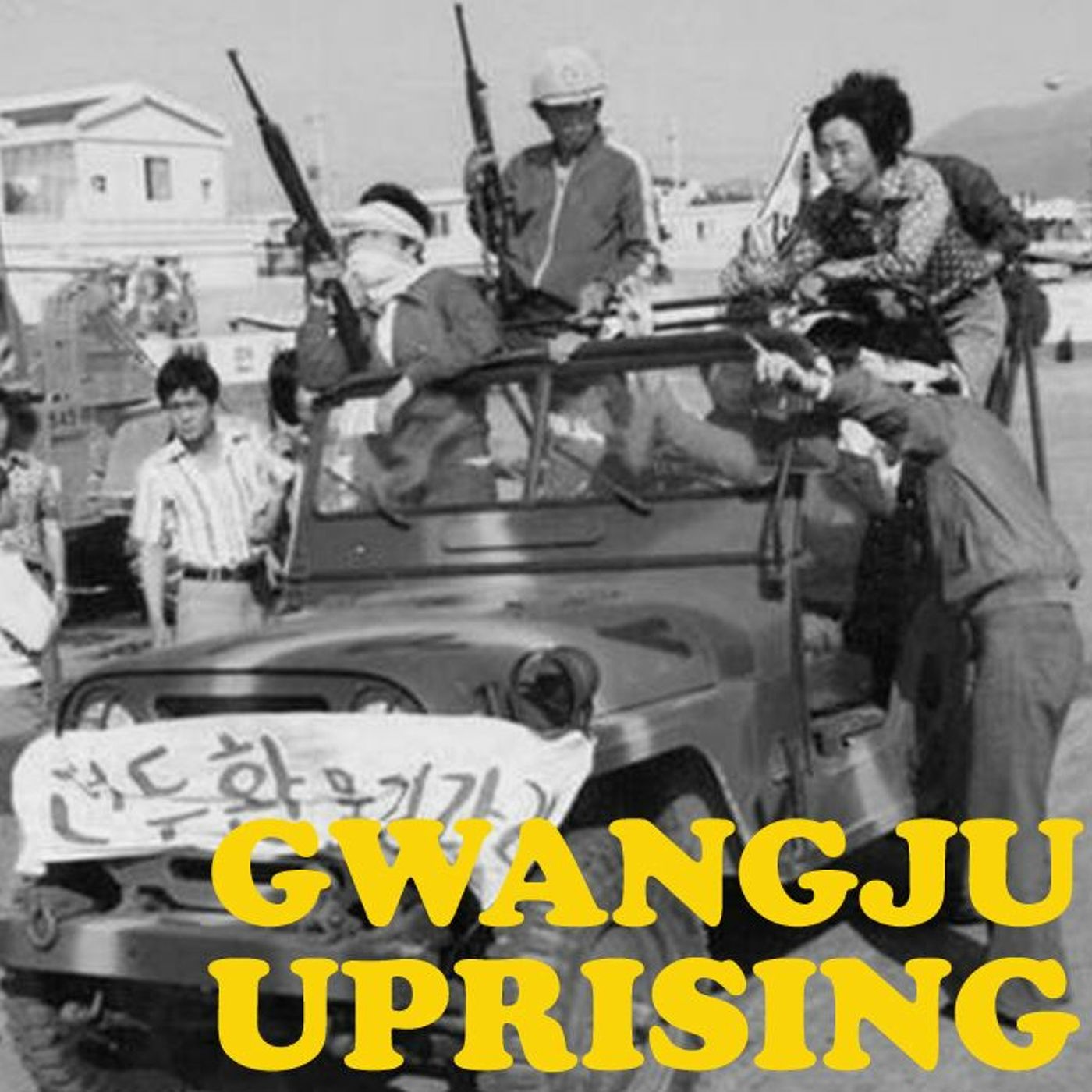
E54: Gwangju uprising, part 2
Part 2 of our four-part podcast miniseries about the May 18 uprising in Gwangju, South Korea, in 1980 against the US-backed military dictatorship of Chun Doo Hwan. We speak with Kim Yong Ho, David Dolinger and Jeon Yong Ho, who took part in the events, as well as researcher and lead translator of the excellent book, Gwangju Diary, Kap Su Seol.Our podcast is brought to you by our patreon supporters. Our supporters fund our work, and in return get exclusive early access to podcast episodes, bonus episodes, free and discounted merchandise and other content. For example patrons can listen to all 4 parts of this miniseries now as well as an exclusive bonus episode. Join us or find out more at https://patreon.com/workingclasshistory This week, we speak with our guests about the development of the uprising and its transformation into full-blown, armed insurrection.See full information, acknowledgements, sources and a transcript here on our website: https://workingclasshistory.com/2021/06/29/e53-the-gwangju-uprising-1980/Become a supporter of this podcast: https://www.spreaker.com/podcast/working-class-history--5711490/support.
37:5827/09/2021
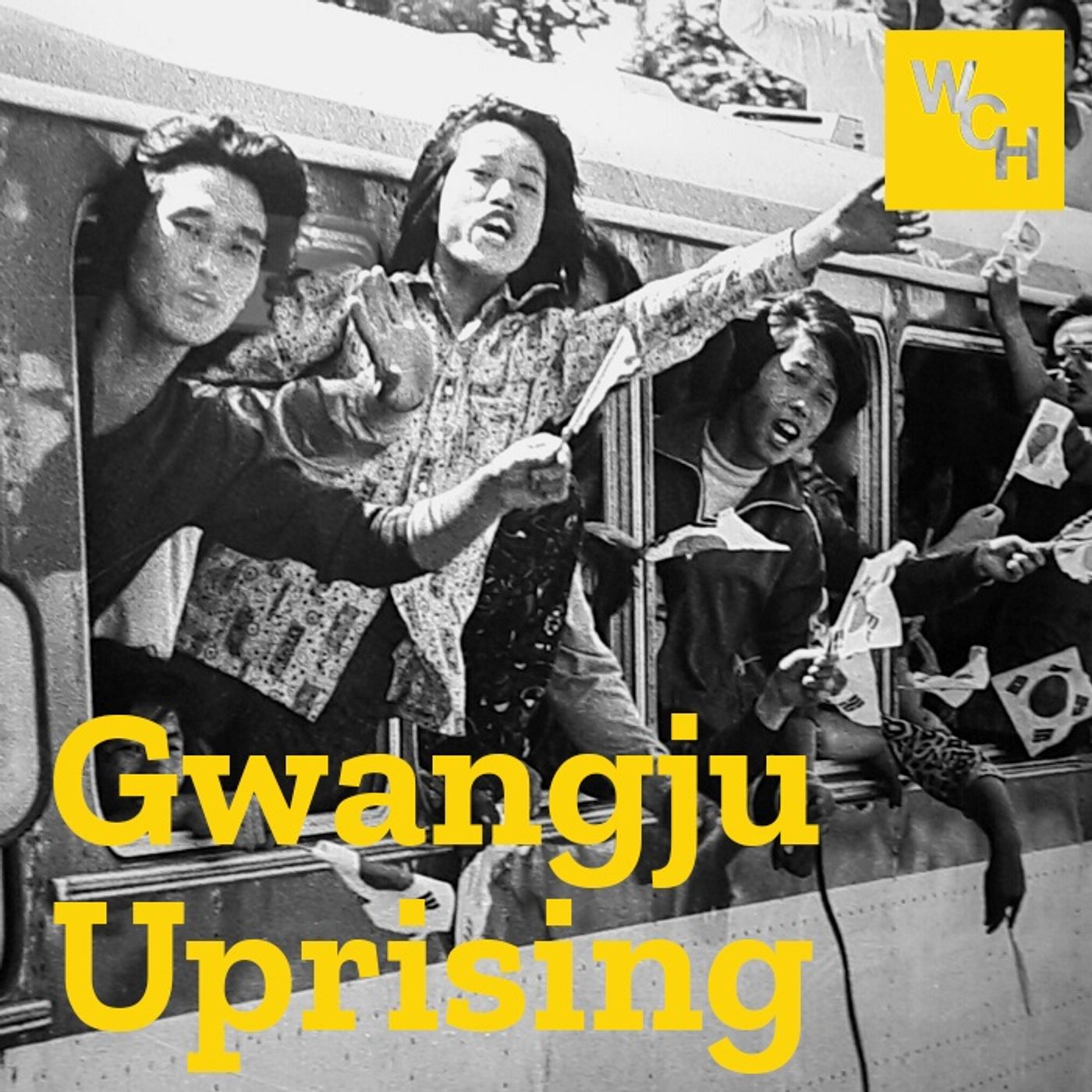
E53: Gwangju uprising, part 1
First part of our podcast miniseries about the May 18 uprising in Gwangju, South Korea, in 1980 against the US-backed military dictatorship of Chun Doo Hwan. We speak with Kim Yong Ho, David Dolinger and Jeon Yong Ho, who took part in the events, as well as researcher and lead translator of the excellent book, Gwangju Diary, Kap Su Seol.Our podcast is brought to you by our patreon supporters. Our supporters fund our work, and in return get exclusive early access to podcast episodes, bonus episodes, free and discounted merchandise and other content. For example patrons can listen to all 4 parts of this miniseries now as well as an exclusive bonus episode. Join us or find out more at https://patreon.com/workingclasshistoryIn part 1, we speak with our guests about the background to the uprising, and how it began.See full information, acknowledgements, sources and a transcript here on our website: https://workingclasshistory.com/2021/06/29/e53-the-gwangju-uprising-1980/Become a supporter of this podcast: https://www.spreaker.com/podcast/working-class-history--5711490/support.
31:2811/09/2021
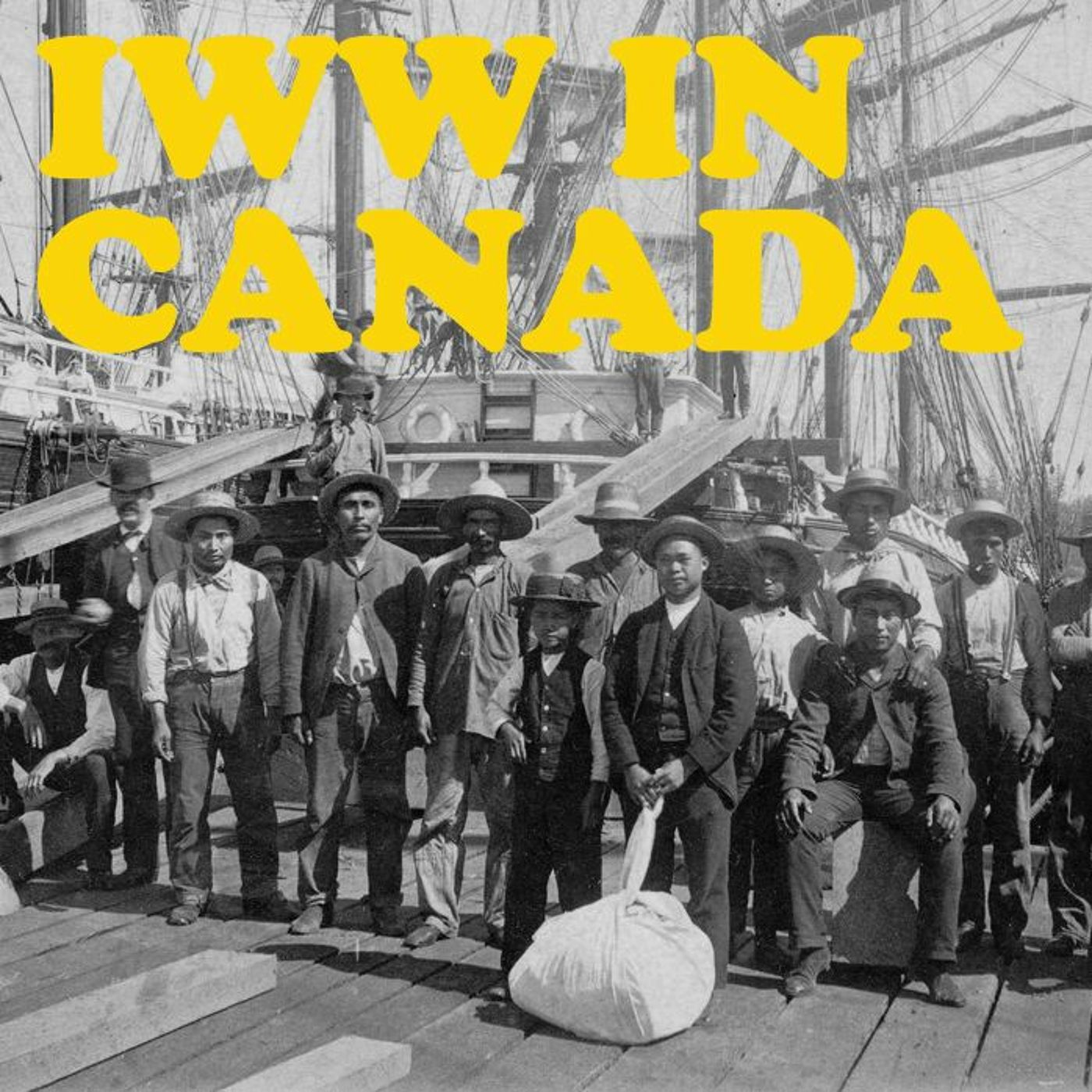
E52: The IWW in Canada
Podcast episode about the history of the revolutionary union the Industrial Workers of the World in Canada. We speak with historian and author Mark Leier about the union’s organising work amongst loggers, miners, road and railroad construction workers, First Nations dock workers and more.Our podcast is brought to you by our patreon supporters. Our supporters fund our work, and in return get exclusive early access to podcast episodes, bonus episodes, free and discounted merchandise and other content. Join us or find out more at https://patreon.com/workingclasshistoryListen to the bonus episode attached to this episode here on patreon: https://www.patreon.com/posts/e52-1-canadian-51361075Full show notes, acknowledgements, sources, links to more information and transcript on the webpage for this episode here: https://workingclasshistory.com/2021/05/17/e52-the-iww-in-canada/Become a supporter of this podcast: https://www.spreaker.com/podcast/working-class-history--5711490/support.
01:01:3318/06/2021





